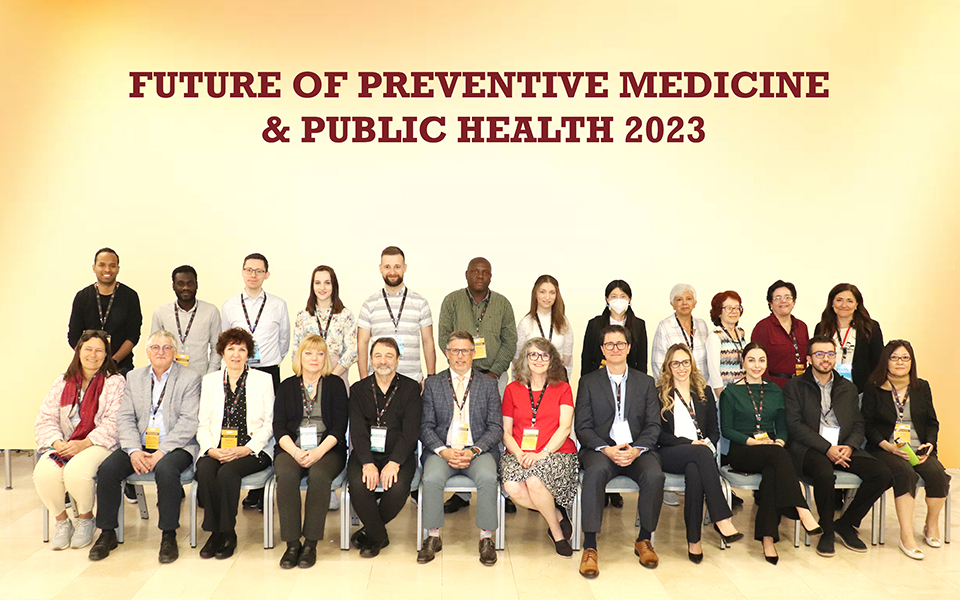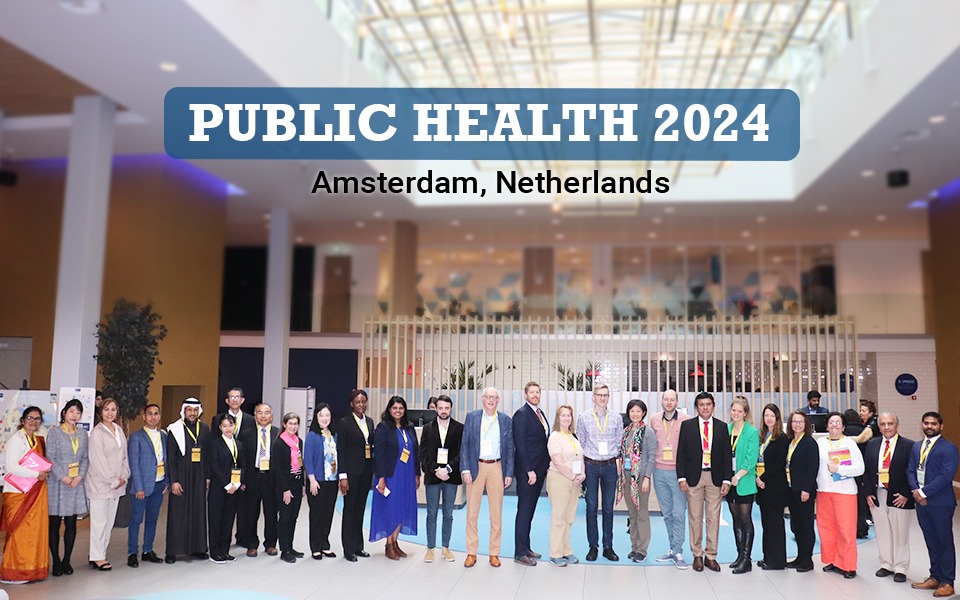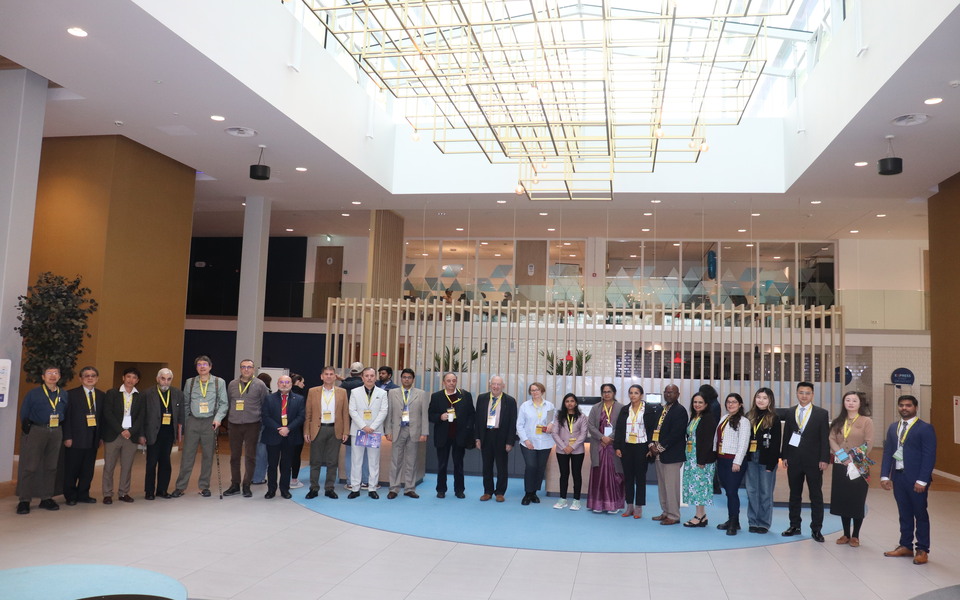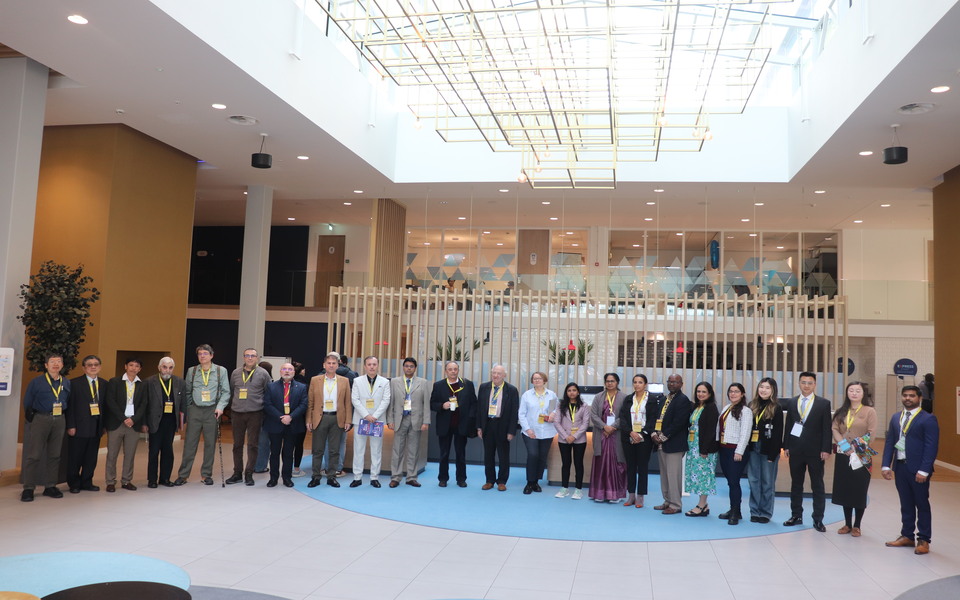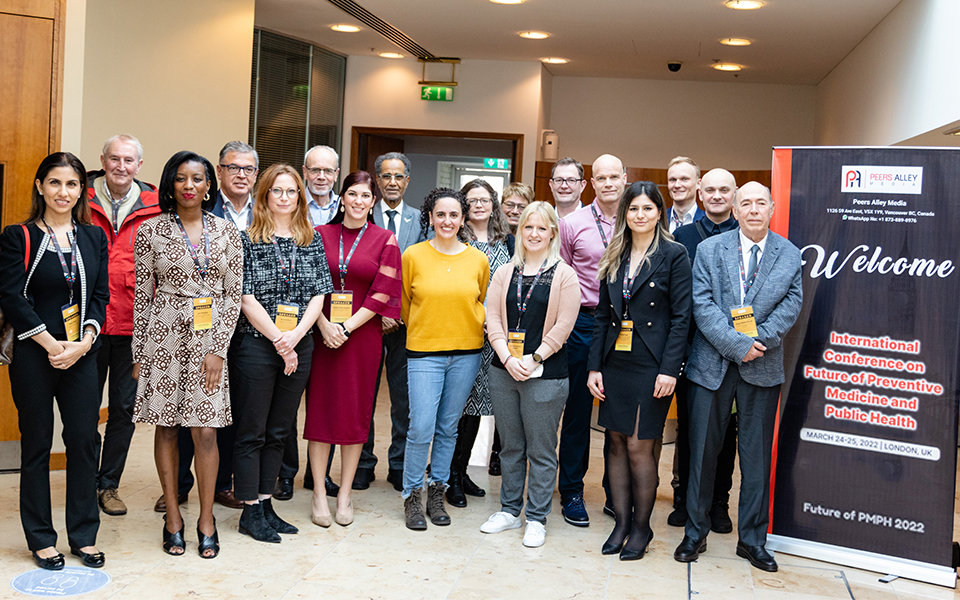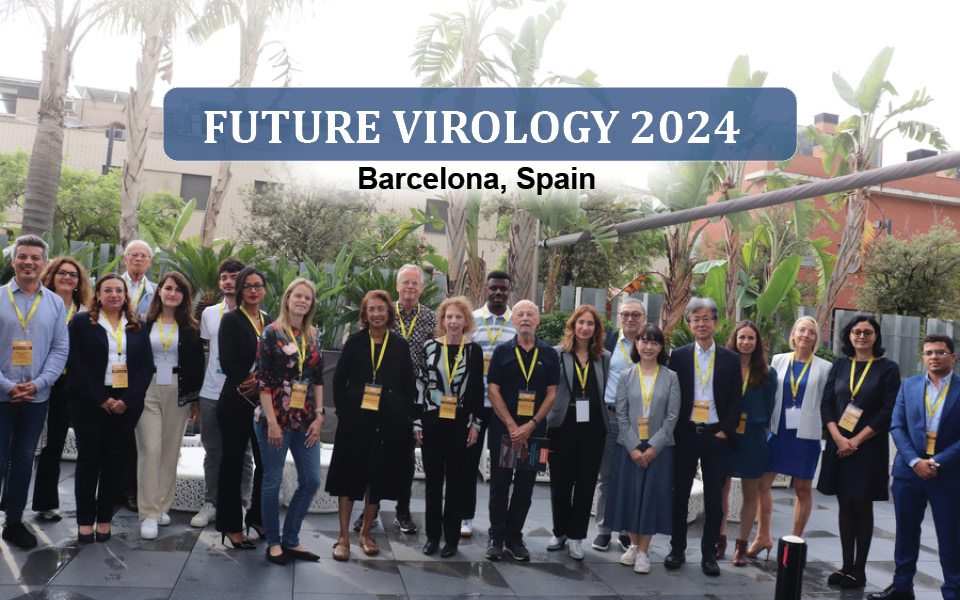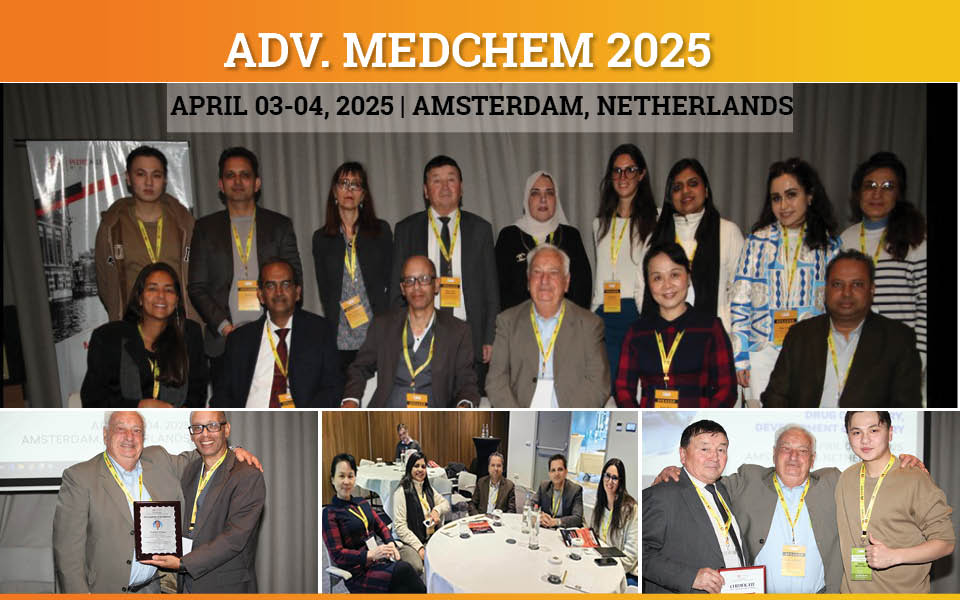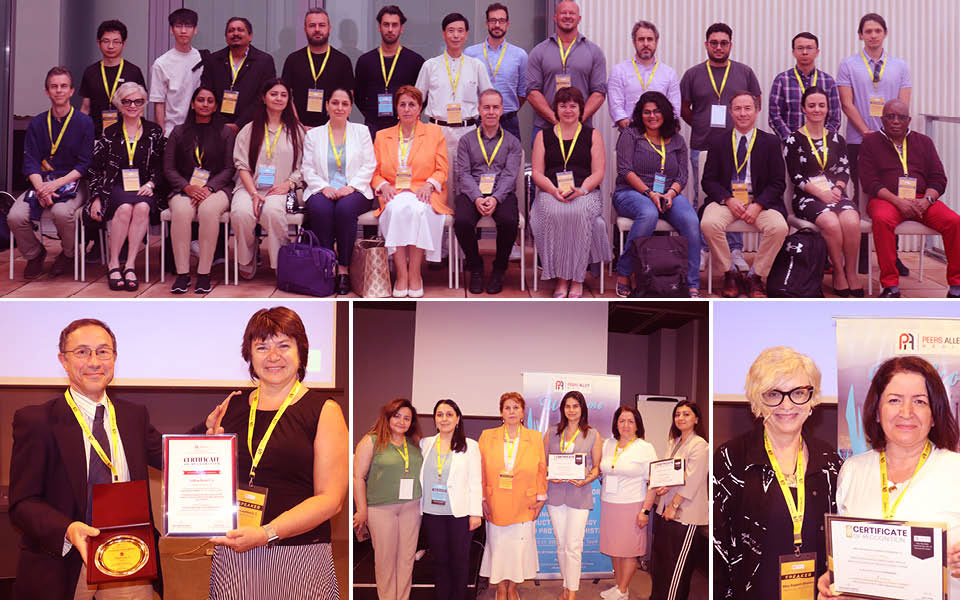
Future Of BSBE 2024
Peers Alley Media,Canada

Primary goal of attending an international conference is to present a paper to the experts and influencers. It gives you a platform to exchange your interest-related thoughts, paving the way for possible future collaborations.

Use this platform to build connections with an elite group of wise men and women to enhance your intellect. Young entrepreneurs, this is a great platform to connect with your peers.

Knowledge is Power. Knowledge teaches skills. Skills define excellence. Use this platform to become cognizant of your interest area to achieve excellence in your domain.

Attending a conference give you opportunity to get your abstract or paper published in conference proceedings

Meet and greet a myriad of industry professionals and academia experts with common interest. Every meal will be an opportunity to meet and interact with fellow researchers, attendees and experts.

Expand your professional competency and learn useful tips and tricks of your industry in our skill-building workshops.

Explore insights on recent advancements, new equipment, new techniques, and unpublished data, learn from thought-leaders and get to network with a great line up of speakers.

Our exhibits floor offers the attendees with a dynamic display of the latest products with cutting-edge technology.

Investing in you is the best investment. Peers Alley conferences give the patrons with a feeling of the serendipity of real learning, skill development in strategic workshops, networking and start-up opportunities, thus, is value for money.

Attending the conference gives you much needed break from your regular duties. It also allows you to explore new cities, culture and meet new people. You will feel energized and rejuvenated to return to the university and continue with the job after attending the conference.
Conferences are vital forum for academic researchers and business leaders. "It involves multiple presentations, interactive breakout sessions, hands-on product demonstrations and unrivalled networking opportunities".
We have invited some of the world's most sought-after keynote speakers, experts, brand ambassadors, and industry leaders to share their thoughts and ideas with our conference guests.
Register Now
Join our Advanced Pediatrics Conferences to learn from pediatricians and healthcare professionals from across the globe. Don't pass up this golden opportunity to participate in the Pediatrics in a Changing World--Global Advanced Pediatrics and Neonatology Summit with the theme “Pediatric Horizons: Exploring Cutting-Edge Innovations in Pediatrics and Neonatal Care”.
This Advanced Pediatrics Conference will provide opportunities for pediatricians, neonatologists, pediatric students, scientists, association and societies, postdoctoral medical fellows, medical training institutes, business entrepreneurs, medical software development companies, data management companies, medical colleges, hospital administrators, young researchers, residents, case managers, aspiring students, and physician assistants.
Children are frequently prone to illness and disease, and they are easily infected. As a result, no matter what, the pediatric healthcare market is thriving. Changes in lifestyle and unhealthy habits will contribute majior growth of this market. The global paediatric market is expected to grow at a compound annual growth rate (CAGR) of 4.7 percent from $92.6 billion in 2019 to $116.6 billion by 2024.
about World APNC 2025 conference
Dear Colleagues,
It is our great honor and pleasure to invite you to participate in the World Conclave on Advances in Pediatrics and Neonatal Care (World APNC 2025) which will take place in Singapore from June 19-20, 2025.
World APNC 2025 aims to promote development of clinical paediatrics, neonatal care and innovation.
Through its comprehensive scientific program led by regional and international pediatrics and neonatology experts, this event will provide participants with unparalleled insights into the most recent research advances, treatments in the field of pediatrics and neonatology. From basic science to clinical applications, the event wish to address the entire paediatric spectrum in an open-minded, and interdisciplinary approach.
The two day event includes international network of peers, high-level plenary talks, interactive sessions, educational opportunities, poster presentations, hands-on courses and workshops to catalyse and foster scientific knowledge and it also enable collaborations between different, specialised fields of Pediatrics — from bench to bedside. Delegates will also have the opportunity to learn about the latest industry innovations, network, and make new contacts with like-minded professionals.
The event objective to provides an effective forum for discussing and debating, by allowing ample time for speaker-audience discussions and it also facilitate to bridge the gap between the expansion of information and its consolidation into clinical practice.
Join us now for an enriching experience and adept insights into pediatric practise and the future. We hope to see you at the 2025 Advances in Pediatrics and Neonatal Care
Best regards,
World APNC 2025
Organizing Committee
Peers Alley Media1126 59 Ave East
V5X 1Y9, Vancouver BC, Canada

Unit of Neurorehabilitation, Italy

The Hebrew University-Hadassah Medical Centre, Israel

University of Colorado, USA

University of Padua, Italy

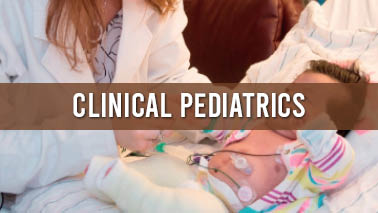
Clinical pediatrics is the branch of medicine that focuses on the health, diagnosis, treatment, and management of diseases and conditions in infants, children, and adolescents. It encompasses a wide range of healthcare services from preventive care to the management of complex and chronic illnesses in children. Here are some new research perspectives in clinical pediatrics:
Precision Medicine and Genomics: Investigate the role of genetic and genomic data in personalizing pediatric care. Research can focus on identifying genetic markers for common and rare pediatric diseases, developing tailored treatment plans, and understanding the genetic basis of drug responses in children.
Chronic Disease Management: Study new strategies for managing chronic diseases in children, such as asthma, diabetes, epilepsy, and cystic fibrosis. Research can explore innovative treatment protocols, the impact of technology (e.g., wearables, telehealth), and the integration of multidisciplinary care teams to improve long-term outcomes.
Infectious Diseases and Vaccination: Explore the epidemiology, prevention, and treatment of infectious diseases in children. Research can focus on the development of new vaccines, strategies to improve vaccination rates, and the effectiveness of antimicrobial stewardship programs in pediatric populations.
Nutrition and Growth: Investigate the impact of nutrition on growth and development in children. Research can focus on the role of specific nutrients, the prevention and treatment of pediatric obesity and malnutrition, and the long-term effects of early dietary interventions on health outcomes.
Mental Health and Behavioral Disorders: Study the prevalence, diagnosis, and treatment of mental health and behavioral disorders in children and adolescents. Research can explore the effectiveness of different therapeutic approaches, the impact of early intervention, and the integration of mental health services into primary pediatric care.
Developmental Disorders: Investigate the early detection, diagnosis, and management of developmental disorders such as autism spectrum disorder, ADHD, and learning disabilities. Research can focus on identifying early biomarkers, developing effective intervention programs, and understanding the long-term outcomes of different treatment modalities.
Health Disparities and Social Determinants of Health: Study the impact of social determinants on child health and strategies to address health disparities. Research can explore the effects of socioeconomic status, access to healthcare, and environmental factors on pediatric health outcomes, and develop interventions to promote health equity.
Adolescent Medicine: Explore the unique health needs of adolescents, including sexual and reproductive health, mental health, substance use, and risk behaviors. Research can focus on effective communication strategies, preventive care, and tailored interventions to address the specific challenges faced by this age group.
Technological Innovations: Evaluate the role of technology in improving pediatric healthcare. Research can focus on the use of telemedicine, mobile health applications, electronic health records, and artificial intelligence in enhancing diagnostic accuracy, treatment adherence, and patient engagement.
Pediatric Pharmacology: Investigate the pharmacokinetics and pharmacodynamics of medications in children. Research can focus on age-specific dosing, the safety and efficacy of pediatric medications, and the development of new pediatric formulations and drug delivery systems.
Quality of Life and Patient-Reported Outcomes: Study the impact of pediatric illnesses and treatments on quality of life and patient-reported outcomes. Research can explore ways to incorporate patient and family perspectives into care planning, develop tools to measure quality of life, and identify interventions to improve the overall well-being of pediatric patients.
End-of-Life Care and Palliative Care: Investigate approaches to palliative and end-of-life care in pediatric patients. Research can focus on improving communication with families, managing symptoms, and providing emotional and psychological support to patients and their families during challenging times.
These research perspectives aim to enhance understanding, improve diagnostic and therapeutic strategies, and optimize outcomes for children and adolescents, thereby contributing to the advancement of clinical pediatrics.
Tags
Child Abuse Conferences 2025
Clinical Pediatrics Conferences 2024
Pediatric Cardiology Conferences
Pediatric Obesity Meetings America
Pediatric Infectious Diseases Conferences
Pediatric Nutrition Conferences
Pediatrics Conferences
Pediatric Nursing Conferences Europe
Neonatal Nursing Conferences
Pediatric Ophthalmology Conferences
Pediatrics Conferences 2025
Pediatrics Conferences 2024 Europe
Pediatrics Conference 2024
Adolescent Medicine Conferences USA
Neonatal Healthcare Events

Child abuse pediatrics is a medical subspecialty focused on the diagnosis, treatment, and prevention of child abuse and neglect. Specialists in this field work to identify and address various forms of abuse, including physical abuse, sexual abuse, emotional abuse, and neglect. They collaborate with multidisciplinary teams, including social workers, law enforcement, and mental health professionals, to ensure comprehensive care for affected children and their families. Here are some new research perspectives in child abuse pediatrics:
Improved Diagnostic Tools: Develop and validate advanced diagnostic tools and techniques to accurately identify signs of abuse and neglect. Research can explore the use of biomarkers, imaging technologies, and forensic methods to improve the early detection and differentiation of abuse from other medical conditions.
Long-term Health Outcomes: Investigate the long-term physical, psychological, and social impacts of child abuse and neglect. Research can focus on understanding the chronic health conditions, mental health disorders, and social challenges that survivors of abuse may face throughout their lives.
Prevention Programs: Evaluate the effectiveness of various prevention programs and strategies aimed at reducing the incidence of child abuse and neglect. Research can explore community-based interventions, educational programs for parents and caregivers, and policy initiatives designed to protect children.
Interdisciplinary Collaboration: Study the effectiveness of multidisciplinary teams in managing cases of child abuse and neglect. Research can focus on improving communication and collaboration between healthcare providers, social services, law enforcement, and legal professionals to enhance the care and outcomes for affected children.
Trauma-Informed Care: Investigate the implementation and outcomes of trauma-informed care approaches in pediatric settings. Research can explore how trauma-informed practices can improve the identification, treatment, and support of children who have experienced abuse and neglect.
Psychosocial Interventions: Evaluate the effectiveness of various psychosocial interventions for children and families affected by abuse. Research can focus on therapeutic approaches such as cognitive-behavioral therapy (CBT), family therapy, and support groups, as well as the role of social support systems in recovery.
Role of Technology: Explore the use of technology in identifying and preventing child abuse. Research can investigate the effectiveness of telemedicine, mobile applications, and digital platforms in providing education, reporting mechanisms, and support services for at-risk children and families.
Cultural and Socioeconomic Factors: Study the impact of cultural, socioeconomic, and environmental factors on the prevalence and management of child abuse and neglect. Research can focus on identifying risk factors specific to different populations and developing culturally sensitive prevention and intervention strategies.
Legal and Policy Implications: Investigate the impact of legal and policy frameworks on child abuse reporting, investigation, and intervention. Research can focus on evaluating the effectiveness of mandatory reporting laws, child protection policies, and the role of the judicial system in safeguarding children.
Training and Education: Evaluate the effectiveness of training programs for healthcare providers, educators, and other professionals in recognizing and responding to signs of child abuse and neglect. Research can explore best practices for curriculum development, training delivery, and ongoing professional development.
Parental and Caregiver Support: Study the effectiveness of interventions aimed at supporting parents and caregivers to prevent abuse and neglect. Research can focus on programs that address parenting skills, stress management, substance abuse, and mental health issues.
Impact of COVID-19 and Other Crises: Investigate the impact of the COVID-19 pandemic and other crises on the incidence and reporting of child abuse and neglect. Research can explore how social isolation, economic stress, and changes in service delivery have affected child safety and well-being.
These research perspectives aim to improve the identification, treatment, and prevention of child abuse and neglect, ultimately enhancing the well-being and safety of children and their families.
Tags
Pediatrics Conferences 2025
Pediatrics Conference 2024
Pediatric Conferences 2024 USA
Pediatrics Conferences 2024 Europe
Pediatrics Conferences 2025
Pediatric Nutrition Conferences
Clinical Pediatrics Conferences 2024
Childhood Cancer Conferences
Pediatric Nursing Conferences Europe
Neonatology Meetings 2025
Child Psychiatry Conferences
Pediatric Infectious Diseases Conferences
Childcare Conferences USA 2025
Perinatal Medicine Conferences
Pediatric Neurology Conferences

Child trauma and pain involve the study and management of physical and psychological injuries that children experience due to various causes, including accidents, medical procedures, and abuse. This field focuses on understanding the immediate and long-term effects of trauma and pain on children and developing strategies to mitigate their impact. Here are some new research perspectives in child trauma and pain:
Neurobiological Mechanisms: Investigate the neurobiological underpinnings of trauma and pain in children. Research can focus on understanding how traumatic experiences and chronic pain alter brain structure and function, as well as identifying biomarkers that predict susceptibility and recovery.
Psychological Interventions: Evaluate the effectiveness of various psychological interventions, such as cognitive-behavioral therapy (CBT), mindfulness-based stress reduction (MBSR), and trauma-focused therapies, in treating children who have experienced trauma and chronic pain. Research can explore the best practices for different age groups and trauma types.
Impact of Early Childhood Trauma: Study the long-term effects of early childhood trauma on physical and mental health. Research can focus on how early adverse experiences influence developmental trajectories, stress responses, and the risk of developing chronic pain and psychiatric disorders.
Pain Management Techniques: Explore new and innovative pain management techniques for children, including non-pharmacological approaches like virtual reality, acupuncture, and biofeedback. Research can evaluate the efficacy, safety, and acceptability of these methods in pediatric populations.
Trauma-Informed Care Models: Develop and assess trauma-informed care models in various settings, such as hospitals, schools, and community centers. Research can focus on the implementation and outcomes of these models, including their impact on child recovery, family dynamics, and healthcare provider practices.
Family-Centered Approaches: Investigate the role of family dynamics and support in the recovery from trauma and pain. Research can explore how parental involvement, family therapy, and support groups can enhance treatment outcomes and resilience in children.
Resilience and Protective Factors: Identify factors that promote resilience and recovery in children who have experienced trauma and pain. Research can focus on individual, family, and community-level protective factors and how they can be strengthened through interventions.
Cultural and Socioeconomic Influences: Study how cultural and socioeconomic factors influence the experience and management of trauma and pain in children. Research can explore culturally sensitive approaches to care and how socioeconomic status affects access to and outcomes of treatment.
Technology and Digital Interventions: Evaluate the use of technology and digital interventions, such as mobile apps and telehealth, in the assessment and management of trauma and pain in children. Research can focus on the effectiveness, accessibility, and engagement of these tools.
Preventive Strategies: Investigate preventive strategies to reduce the incidence and impact of trauma and pain in children. Research can focus on community-based programs, policy initiatives, and educational campaigns aimed at preventing accidents, abuse, and other sources of trauma.
Integrative and Complementary Therapies: Explore the use of integrative and complementary therapies, such as yoga, massage, and dietary supplements, in managing trauma and pain in children. Research can assess the efficacy, safety, and acceptance of these therapies.
Impact of COVID-19 and Other Crises: Study the impact of the COVID-19 pandemic and other crises on child trauma and pain experiences. Research can explore how the pandemic has affected the prevalence, recognition, and treatment of trauma and pain, as well as strategies for addressing these challenges in crisis situations.
These research perspectives aim to enhance understanding, improve treatment, and develop effective prevention strategies for child trauma and pain, ultimately promoting better health outcomes and quality of life for affected children and their families.
Tags
Pediatric Surgery Conferences 2025
Neonatal Nursing Conferences
Clinical Pediatrics Congress 2025
Childcare Conferences USA 2025
Pediatrics Conferences 2025
Pediatrics Conferences 2024 Europe
Pediatric Dentistry Conferences Canada
Childhood Cancer Conferences
Pediatrics Conferences 2025
Neonatology Meetings 2025
Clinical Pediatrics Conferences 2024
Pediatric Nutrition Conferences
Adolescent Medicine Conferences USA
Pediatrics Conference 2024
Child Abuse Conferences 2025

Adolescent medicine is a specialized field of healthcare focused on the physical, psychological, and social development and well-being of adolescents, typically ranging from ages 10 to 19. This discipline addresses a wide array of health issues unique to this age group, including puberty, mental health, substance use, sexual health, and the transition to adulthood. Here are some new research perspectives in adolescent medicine:
Mental Health: Investigate the prevalence, causes, and treatment of mental health disorders such as depression, anxiety, and eating disorders in adolescents. Research can focus on early detection, the efficacy of various therapeutic approaches (e.g., cognitive-behavioral therapy, medication, mindfulness), and the impact of social media and technology on mental health.
Substance Use and Addiction: Study patterns of substance use, addiction, and their underlying factors in adolescents. Research can explore prevention strategies, the effectiveness of different intervention programs, and the impact of emerging substances like vaping and cannabis.
Sexual and Reproductive Health: Explore issues related to sexual and reproductive health, including contraceptive use, sexually transmitted infections (STIs), and gender identity. Research can focus on developing comprehensive sex education programs, improving access to reproductive health services, and understanding the needs of LGBTQ+ adolescents.
Chronic Disease Management: Investigate the management of chronic diseases in adolescents, such as asthma, diabetes, and autoimmune disorders. Research can focus on adherence to treatment regimens, the transition from pediatric to adult care, and the role of technology (e.g., mobile health apps, telemedicine) in supporting self-management.
Nutrition and Physical Activity: Study the impact of nutrition and physical activity on adolescent health, including issues related to obesity, eating disorders, and sports participation. Research can explore effective interventions for promoting healthy eating habits, increasing physical activity, and addressing body image concerns.
Sleep Health: Investigate the impact of sleep patterns and sleep disorders on adolescent health and development. Research can focus on the causes and consequences of sleep deprivation, the effectiveness of interventions to improve sleep quality, and the role of school start times.
Social Determinants of Health: Examine how social determinants, such as socioeconomic status, family dynamics, and community environment, influence adolescent health outcomes. Research can explore interventions aimed at addressing these determinants, reducing health disparities, and promoting equity.
Technology and Digital Health: Explore the use of technology and digital health tools to improve adolescent health care. Research can focus on the effectiveness of telehealth, mobile health applications, and social media interventions in providing health education, support, and services to adolescents.
Violence and Bullying: Investigate the prevalence and impact of violence, bullying, and cyberbullying on adolescent health. Research can explore prevention and intervention strategies, the role of schools and communities, and the long-term effects of exposure to violence and bullying.
Transition to Adulthood: Study the challenges and opportunities associated with the transition from adolescence to adulthood. Research can focus on preparing adolescents for adult responsibilities, supporting the transition to adult healthcare services, and addressing issues related to education, employment, and independence.
Adolescent Resilience and Coping: Investigate factors that promote resilience and effective coping mechanisms in adolescents facing various stressors and challenges. Research can focus on identifying protective factors, developing resilience-building programs, and understanding the role of family and community support.
Sexual Orientation and Gender Identity: Study the health needs and experiences of adolescents related to sexual orientation and gender identity. Research can explore the impact of societal attitudes, healthcare access, and mental health support for LGBTQ+ adolescents.
These research perspectives aim to enhance the understanding of adolescent health issues, improve the effectiveness of interventions, and promote the overall well-being and development of adolescents as they transition to adulthood.
Tags
Neonatal Nursing Conferences
Child Abuse Conferences 2025
Neonatology Meetings 2025
Pediatric Cardiology Conferences
Pediatric Nursing Conferences Europe
Pediatric Ophthalmology Conferences
Pediatric Obesity Meetings America
Pediatric Dentistry Conferences Canada
Pediatrics Conferences
Neonatal Healthcare Events
Pediatrics Conferences 2025
Perinatal Medicine Conferences
Pediatrics Conference 2024
Pediatrics Conferences Japan
Clinical Pediatrics Conferences 2024
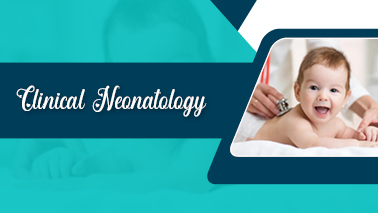
Clinical neonatology is a subspecialty of pediatrics that focuses on the medical care of newborns, particularly those who are ill or premature. It involves the diagnosis and treatment of newborns with conditions such as prematurity, birth defects, infections, and respiratory distress, as well as providing support for their growth and development. Here are some new research perspectives in clinical neonatology:
Genomics and Personalized Medicine: Investigate the role of genomics in understanding and treating neonatal conditions. Research can focus on identifying genetic markers for prematurity, congenital anomalies, and susceptibility to infections, and developing personalized treatment plans based on genetic profiles.
Neurodevelopmental Outcomes: Study the long-term neurodevelopmental outcomes of preterm and critically ill neonates. Research can explore the impact of various neonatal interventions on brain development, identify early biomarkers of neurodevelopmental disorders, and develop strategies to improve cognitive and motor outcomes.
Advanced Respiratory Support: Evaluate new techniques and technologies for respiratory support in neonates, such as high-frequency ventilation, inhaled nitric oxide, and extracorporeal membrane oxygenation (ECMO). Research can focus on optimizing these methods to reduce lung injury and improve survival rates.
Nutrition and Growth: Investigate the best practices for nutritional support in preterm and low-birth-weight infants. Research can explore the role of human milk, fortified formulas, and parenteral nutrition in promoting optimal growth and development, as well as the long-term health effects of early nutrition.
Infection Prevention and Management: Study strategies to prevent and manage infections in neonates, including the use of probiotics, antimicrobial stewardship, and infection control practices in neonatal intensive care units (NICUs). Research can also focus on the impact of maternal infections on neonatal health.
Stem Cell Therapy and Regenerative Medicine: Explore the potential of stem cell therapy and regenerative medicine in treating neonatal conditions such as bronchopulmonary dysplasia, necrotizing enterocolitis, and hypoxic-ischemic encephalopathy. Research can focus on the safety, efficacy, and ethical considerations of these emerging treatments.
Ethics and End-of-Life Care: Investigate ethical issues in neonatology, including decision-making for critically ill infants, parental involvement in care, and end-of-life care practices. Research can explore the development of guidelines and support systems to help families and healthcare providers navigate these challenging situations.
Neonatal Pain Management: Study effective pain management strategies for neonates undergoing medical procedures or experiencing chronic conditions. Research can focus on the use of pharmacological and non-pharmacological interventions, as well as the long-term effects of early pain exposure on neurodevelopment.
Long-term Follow-up and Transition to Care: Examine the long-term health and developmental outcomes of neonates after discharge from the NICU. Research can explore strategies for effective follow-up care, early intervention services, and the transition from neonatal to pediatric care.
Parental Support and Education: Investigate the best ways to support and educate parents of critically ill and preterm infants. Research can focus on interventions to reduce parental stress, improve bonding and attachment, and provide comprehensive education about their infant’s condition and care.
Health Disparities and Access to Care: Study the impact of socioeconomic status, race, and geographic location on neonatal outcomes. Research can focus on identifying barriers to care, developing interventions to reduce health disparities, and improving access to high-quality neonatal care for all populations.
Artificial Intelligence and Machine Learning: Explore the use of artificial intelligence (AI) and machine learning in neonatology for predictive analytics, diagnosis, and treatment planning. Research can focus on developing and validating AI tools to improve clinical decision-making and outcomes in the NICU.
These research perspectives aim to advance the field of clinical neonatology, improve outcomes for newborns, and provide comprehensive support for their families.
Tags
Pediatric Obesity Meetings America
Pediatrics Conferences 2025
Neonatal Nursing Conferences
Child Psychiatry Conferences
Pediatrics Conferences
Child Abuse Conferences 2025
Childcare Conferences USA 2025
Pediatric Nutrition Conferences
Adolescent Medicine Conferences USA
Pediatric Cardiology Conferences
Pediatric Dentistry Conferences Canada
Pediatric Neurology Conferences
Pediatrics Conferences Japan
Pediatric Oncology Conferences 2025
Pediatric Surgery Conferences 2025

Neonatal nursing and care focus on providing specialized nursing care to newborn infants, particularly those born prematurely, with low birth weight, or with medical complications. Neonatal nurses play a crucial role in monitoring the health of newborns, administering treatments, educating families, and collaborating with the healthcare team to optimize outcomes. Here are some new research perspectives in neonatal nursing and care:
Family-Centered Care: Investigate the impact of family-centered care models in neonatal nursing practice. Research can focus on evaluating the effectiveness of family involvement in care decisions, promoting parent-infant bonding, and supporting families through the neonatal intensive care unit (NICU) experience.
Neonatal Pain Management: Study innovative approaches to neonatal pain assessment and management. Research can explore the use of non-pharmacological interventions such as kangaroo care, sucrose solutions, and music therapy, as well as pharmacological interventions with a focus on safety and efficacy.
Neonatal Nutrition and Breastfeeding: Evaluate strategies to optimize nutrition and promote breastfeeding in neonates. Research can focus on assessing the impact of different feeding protocols, donor human milk use, fortification of breast milk, and supporting mothers in establishing breastfeeding in the NICU.
Developmental Care: Investigate the role of developmental care practices in promoting optimal growth and development in preterm and high-risk neonates. Research can explore the effects of environmental modifications, positioning techniques, sensory stimulation, and family involvement on neurodevelopmental outcomes.
Neonatal Infection Prevention: Study infection prevention strategies in the NICU, including hand hygiene practices, antibiotic stewardship, and environmental control measures. Research can focus on reducing healthcare-associated infections and improving outcomes for vulnerable neonates.
Neonatal Transport and Outreach Programs: Evaluate the effectiveness of neonatal transport services and outreach programs in improving access to specialized care for newborns in rural or underserved areas. Research can focus on outcomes such as transport time, safety, and patient outcomes following transport.
Technology and Telehealth: Explore the use of technology and telehealth in neonatal nursing practice. Research can investigate the effectiveness of telemedicine consultations, remote monitoring systems, and mobile health applications in supporting neonatal care delivery and family education.
Ethical Considerations: Investigate ethical issues in neonatal nursing, including decision-making for critically ill infants, end-of-life care, and cultural considerations in care delivery. Research can explore the perspectives of neonatal nurses, parents, and healthcare providers on ethical dilemmas in the NICU.
Neonatal Resuscitation and Emergency Care: Study advancements in neonatal resuscitation techniques and emergency care protocols. Research can focus on the use of simulation training, new resuscitation devices, and protocols for managing neonatal emergencies in various healthcare settings.
Quality Improvement and Patient Safety: Evaluate quality improvement initiatives in neonatal nursing practice to enhance patient safety and outcomes. Research can focus on implementing evidence-based practices, reducing medical errors, and improving communication among healthcare teams.
Neonatal Palliative Care: Investigate the role of neonatal palliative care in supporting families facing life-limiting conditions in their newborns. Research can focus on improving communication, symptom management, and bereavement support for families in the NICU.
Long-term Follow-up and Outcomes: Study the long-term outcomes of neonatal intensive care and nursing interventions. Research can explore neurodevelopmental outcomes, growth trajectories, and quality of life for neonates who received specialized nursing care in the NICU.
These research perspectives aim to enhance the quality of care provided by neonatal nurses, improve outcomes for newborns and their families, and contribute to the advancement of neonatal nursing practice.
Tags
Child Abuse Conferences 2025
Neonatal Nursing Conferences
Pediatric Neurology Conferences
Pediatric Nutrition Conferences
Neonatal Healthcare Events
Pediatrics Conferences Japan
Child Psychiatry Conferences
Pediatrics Conferences 2024 Asia
Pediatric Dentistry Conferences Canada
Perinatal Medicine Conferences
Childcare Conferences USA 2025
Pediatric Obesity Meetings America
Clinical Pediatrics Congress 2025
Pediatric Cardiology Conferences
Neonatology Meetings 2025

Pediatric emergency medicine focuses on providing acute medical care to children and adolescents who require urgent attention due to illness, injury, or other medical emergencies. It involves rapid assessment, diagnosis, treatment, and stabilization of pediatric patients in emergency department settings. Here are some new research perspectives in pediatric emergency medicine:
Telemedicine in Pediatric Emergencies: Investigate the use of telemedicine technologies for pediatric emergency consultations. Research can focus on the effectiveness of teletriage, teleconsultation, and telemonitoring in improving access to specialized care, reducing wait times, and optimizing resource utilization in emergency departments.
Pediatric Trauma Care: Study advancements in pediatric trauma care, including prehospital management, resuscitation techniques, and trauma team coordination. Research can focus on trauma scoring systems, early recognition of life-threatening injuries, and outcomes of pediatric trauma patients.
Pediatric Sepsis and Septic Shock: Evaluate strategies for early recognition and management of pediatric sepsis and septic shock. Research can explore biomarkers, clinical decision support tools, and protocols for timely initiation of antibiotics and fluid resuscitation in septic pediatric patients.
Pediatric Resuscitation Education: Investigate the effectiveness of pediatric resuscitation training programs for healthcare providers. Research can focus on simulation-based training, debriefing techniques, and competency assessment in pediatric resuscitation skills.
Pain Management in Pediatric Emergencies: Study optimal pain management strategies for pediatric patients in emergency settings. Research can explore the use of age-appropriate pain assessment tools, non-pharmacological interventions, and pharmacological agents for pain relief while ensuring safety and efficacy.
Pediatric Mental Health Emergencies: Explore the assessment and management of pediatric mental health emergencies, including suicide risk assessment, agitation management, and psychiatric crisis intervention. Research can focus on developing protocols for rapid psychiatric evaluation and disposition planning in emergency departments.
Pediatric Disaster Preparedness: Evaluate disaster preparedness protocols and response strategies for pediatric populations. Research can focus on triage algorithms, surge capacity planning, communication systems, and coordination of care during mass casualty incidents involving children.
Pediatric Emergency Airway Management: Investigate advancements in pediatric emergency airway management, including techniques for difficult airway access, use of supraglottic devices, and rapid sequence intubation protocols. Research can focus on improving success rates and minimizing complications in pediatric airway interventions.
Pediatric Emergency Imaging: Study the role of advanced imaging modalities in pediatric emergency diagnosis and management. Research can explore the use of point-of-care ultrasound, computed tomography (CT), magnetic resonance imaging (MRI), and other imaging techniques in pediatric emergency settings.
Pediatric Emergency Pharmacotherapy: Evaluate pharmacological interventions for common pediatric emergencies, such as asthma exacerbations, anaphylaxis, seizures, and cardiac arrhythmias. Research can focus on dosing strategies, medication safety, and outcomes of emergency pharmacotherapy in pediatric patients.
Emergency Department Utilization and Trends: Analyze trends in pediatric emergency department utilization, including patient demographics, chief complaints, acuity levels, and outcomes. Research can explore factors influencing emergency department visits, such as access to primary care, socioeconomic factors, and public health initiatives.
Health Information Technology in Pediatric Emergencies: Investigate the use of health information technology (HIT) tools, electronic health records (EHRs), and decision support systems in pediatric emergency medicine. Research can focus on integrating HIT solutions to improve clinical workflows, documentation accuracy, and patient outcomes in emergency care settings.
These research perspectives aim to enhance the quality of care, improve outcomes, and advance the field of pediatric emergency medicine, ultimately benefiting pediatric patients and their families during times of acute medical need.
Tags
Pediatric Nursing Conferences Europe
Child Abuse Conferences 2025
Adolescent Medicine Conferences USA
Perinatal Medicine Conferences
Neonatal Nursing Conferences
Pediatrics Conferences 2024 Europe
Pediatrics Conference 2024
Child Psychiatry Conferences
Pediatric Dentistry Conferences Canada
Neonatal Healthcare Events
Clinical Pediatrics Conferences 2024
Childhood Cancer Conferences
Pediatrics Conferences
Clinical Pediatrics Congress 2025
Pediatrics Conferences 2024 Asia
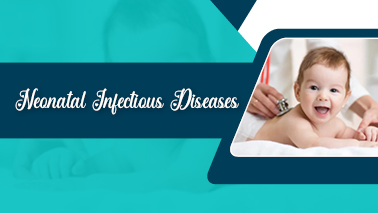
Pediatric infectious diseases focus on the diagnosis, treatment, and prevention of infectious diseases in children and adolescents. It encompasses a wide range of conditions caused by bacteria, viruses, fungi, and parasites. Here are some new research perspectives in pediatric infectious diseases:
Emerging Infectious Diseases: Investigate emerging pathogens and their impact on pediatric populations. Research can focus on novel viruses, multidrug-resistant bacteria, emerging fungal infections, and strategies for early detection, containment, and treatment.
Vaccines and Immunization: Study the development, efficacy, and safety of vaccines for pediatric infectious diseases. Research can focus on novel vaccine platforms, vaccine hesitancy, vaccine schedules, and strategies to improve vaccine coverage and effectiveness.
Antimicrobial Stewardship: Evaluate antimicrobial stewardship programs in pediatric healthcare settings. Research can explore strategies to reduce unnecessary antibiotic use, promote appropriate antibiotic prescribing, and prevent antimicrobial resistance in pediatric patients.
Vector-Borne Diseases: Investigate vector-borne diseases affecting children, such as malaria, dengue fever, Zika virus, and Lyme disease. Research can focus on vector control measures, early diagnosis, and treatment strategies to reduce the burden of these diseases in pediatric populations.
Respiratory Infections: Study respiratory infections in children, including influenza, respiratory syncytial virus (RSV), pneumonia, and tuberculosis. Research can explore diagnostic methods, treatment options, vaccination strategies, and interventions to prevent respiratory infections.
Gastrointestinal Infections: Investigate gastrointestinal infections in pediatric patients, such as rotavirus, norovirus, Clostridium difficile, and parasitic infections. Research can focus on infection control measures, antimicrobial therapy, and strategies to improve hydration and nutritional support.
Central Nervous System Infections: Study central nervous system infections in children, including meningitis, encephalitis, and brain abscesses. Research can explore diagnostic challenges, antimicrobial therapy, neuroimaging techniques, and long-term neurological outcomes.
Healthcare-Associated Infections: Evaluate healthcare-associated infections (HAIs) in pediatric settings, including catheter-related bloodstream infections, surgical site infections, and device-associated infections. Research can focus on prevention strategies, surveillance methods, and infection control protocols.
Zoonotic Infections: Investigate zoonotic infections that can affect children, such as rabies, toxoplasmosis, and tick-borne diseases. Research can explore transmission pathways, preventive measures, and management of zoonotic infections in pediatric patients.
Infectious Diseases in Immunocompromised Children: Study infectious diseases in immunocompromised children, including those with primary immunodeficiencies, cancer, organ transplantation, and HIV/AIDS. Research can focus on prevention strategies, antimicrobial prophylaxis, and treatment approaches tailored to immunocompromised patients.
Syndromic Approaches to Diagnostics: Explore syndromic approaches to infectious disease diagnostics in children. Research can focus on multiplex PCR panels, next-generation sequencing, and other molecular diagnostic techniques to identify pathogens and guide targeted therapy.
Global Health and Travel-Related Infections: Investigate global health aspects of pediatric infectious diseases, including travel-related infections, tropical diseases, and global vaccination initiatives. Research can focus on strategies to prevent importation of infections, improve access to healthcare in resource-limited settings, and address global health disparities in infectious disease burden.
These research perspectives aim to improve understanding, diagnosis, treatment, and prevention of pediatric infectious diseases, ultimately contributing to better health outcomes for children and adolescents worldwide.
Tags
Pediatric Surgery Conferences 2025
Pediatric Dentistry Conferences Canada
Pediatrics Conference 2024
Pediatric Conferences 2024 USA
Pediatric Nutrition Conferences
Pediatrics Conferences Japan
Pediatric Neurology Conferences
Pediatric Oncology Conferences 2025
Adolescent Medicine Conferences USA
Pediatric Cardiology Conferences
Neonatal Healthcare Events
Childcare Conferences USA 2025
Pediatric Obesity Meetings America
Neonatology Meetings 2025
Perinatal Medicine Conferences
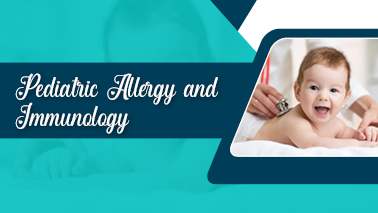
Pediatric allergy and immunology focus on the diagnosis, management, and treatment of allergies, immune system disorders, and related conditions in children. Here are some new research perspectives in pediatric allergy and immunology:
Food Allergy Prevention and Treatment: Investigate strategies for preventing food allergies and improving outcomes for children with food allergies. Research can focus on early introduction of allergenic foods, immunotherapy approaches (e.g., oral immunotherapy, sublingual immunotherapy), and novel treatments for severe allergic reactions (anaphylaxis).
Environmental Allergens and Asthma: Study the impact of environmental allergens (e.g., pollen, mold, dust mites) on pediatric asthma and allergic rhinitis. Research can explore allergen avoidance measures, allergen immunotherapy, and interventions to reduce asthma exacerbations triggered by environmental factors.
Allergic Rhinitis and Sinus Disorders: Investigate treatments for allergic rhinitis, sinusitis, and nasal polyposis in pediatric patients. Research can focus on intranasal corticosteroids, antihistamines, allergen desensitization, and surgical interventions for refractory cases.
Atopic Dermatitis Management: Evaluate new approaches to managing atopic dermatitis (eczema) in children. Research can focus on topical therapies, moisturizers, barrier repair treatments, immunomodulators, and lifestyle interventions to reduce disease severity and improve quality of life.
Drug Allergies and Adverse Reactions: Study drug allergies and adverse drug reactions in pediatric patients. Research can explore diagnostic methods (e.g., skin testing, drug provocation tests), risk factors for drug allergies, and strategies for safe medication use in allergic individuals.
Immunodeficiency Disorders: Investigate primary and secondary immunodeficiency disorders in children. Research can focus on early diagnosis, immunoglobulin replacement therapy, hematopoietic stem cell transplantation, and gene therapy for severe immunodeficiencies.
Allergic Sensitization and Microbiome: Explore the role of the gut microbiome, environmental exposures, and early life factors in allergic sensitization and immune development. Research can investigate the impact of microbial diversity, diet, antibiotics, and probiotics on allergy risk in children.
Eosinophilic Disorders: Evaluate eosinophilic disorders, including eosinophilic esophagitis, gastritis, and colitis, in pediatric patients. Research can focus on dietary management, elimination diets, pharmacological therapies, and endoscopic interventions for eosinophilic gastrointestinal diseases.
Allergy Testing and Diagnostic Tools: Study advancements in allergy testing and diagnostic tools for pediatric patients. Research can explore novel allergen-specific IgE tests, component-resolved diagnostics, basophil activation tests, and point-of-care testing options for rapid allergy diagnosis.
Precision Medicine in Allergy and Immunology: Investigate the use of precision medicine approaches, such as biomarkers, genetic testing, and personalized treatment plans, in pediatric allergy and immunology. Research can focus on identifying subtypes of allergic diseases, predicting treatment responses, and optimizing therapeutic outcomes.
Impact of Climate Change on Allergies: Examine the impact of climate change on pediatric allergies and immunological disorders. Research can explore changing allergen seasons, air pollution effects on respiratory allergies, and strategies for mitigating environmental factors that contribute to allergic diseases.
Psychosocial Impact of Allergies: Evaluate the psychosocial impact of allergies and immune disorders on children and their families. Research can focus on quality of life assessments, mental health outcomes, coping strategies, and interventions to address the emotional and social aspects of living with allergic conditions.
These research perspectives aim to improve understanding, diagnosis, management, and outcomes of pediatric allergies and immune disorders, ultimately benefiting the health and well-being of children and adolescents affected by these conditions.
Tags
Clinical Pediatrics Congress 2025
Childcare Conferences USA 2025
Pediatric Surgery Conferences 2025
Pediatrics Conference 2024
Adolescent Medicine Conferences USA
Pediatrics Conferences 2024 Europe
Pediatric Dentistry Conferences Canada
Pediatrics Conferences 2025
Neonatal Nursing Conferences
Pediatrics Conferences
Childhood Cancer Conferences
Clinical Pediatrics Conferences 2024
Pediatric Ophthalmology Conferences
Pediatric Infectious Diseases Conferences
Child Abuse Conferences 2025
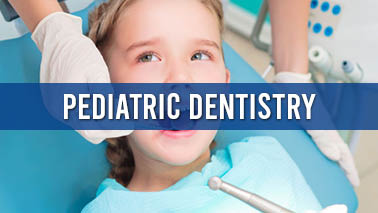
Pediatric dentistry focuses on the oral health and dental care of infants, children, and adolescents. It involves preventive measures, diagnosis, treatment, and education to promote healthy dental habits and ensure proper oral development. Here are some new research perspectives in pediatric dentistry:
Early Childhood Caries Prevention: Investigate novel approaches to prevent early childhood caries (ECC), also known as baby bottle tooth decay. Research can focus on interventions such as fluoride varnish application, dental sealants, oral hygiene education for parents, and early dental visits for infants.
Behavior Management Techniques: Study effective behavior management techniques for pediatric dental patients, including non-pharmacological methods (e.g., tell-show-do, positive reinforcement, distraction techniques) and pharmacological approaches (e.g., nitrous oxide, conscious sedation) for anxious or uncooperative children.
Dental Biomaterials and Restorative Techniques: Evaluate new dental biomaterials and restorative techniques for pediatric patients. Research can focus on biocompatible materials, minimally invasive approaches (e.g., atraumatic restorative treatment), and esthetic restorations (e.g., tooth-colored fillings) for primary and permanent teeth.
Orthodontic and Growth Considerations: Investigate orthodontic considerations and growth patterns in pediatric dental patients. Research can explore early orthodontic intervention, interceptive orthodontics, orthopedic appliances, and the impact of oral habits (e.g., thumb sucking, tongue thrusting) on dental development.
Oral Health Promotion in Schools and Communities: Study community-based oral health promotion programs in schools and communities. Research can focus on school-based dental sealant programs, oral health education campaigns, and collaborations with community organizations to improve access to dental care for underserved populations.
Digital Dentistry and Telehealth: Explore the use of digital dentistry technologies and telehealth in pediatric dental practice. Research can investigate teledentistry platforms for remote consultations, digital imaging techniques (e.g., intraoral scanners, cone-beam computed tomography), and 3D printing for dental prosthetics and appliances.
Interdisciplinary Care and Collaboration: Evaluate interdisciplinary care models and collaboration with other healthcare professionals. Research can focus on integrated care for children with complex medical conditions, dental-medical collaboration in addressing systemic health issues, and shared decision-making with patients and families.
Preventive Oral Health Interventions: Investigate innovative preventive interventions for oral health problems in pediatric patients, such as dental caries risk assessment, dietary counseling, fluoridation programs, and antimicrobial agents (e.g., silver diamine fluoride) for caries prevention and arrest.
Pediatric Oral Surgery and Trauma Management: Study surgical interventions and trauma management in pediatric dental patients. Research can explore topics such as dental extractions, space maintenance, management of dental avulsion and luxation injuries, and surgical management of oral pathology in children.
Dental Anomalies and Developmental Disorders: Investigate dental anomalies and developmental disorders affecting pediatric patients. Research can focus on conditions such as ectodermal dysplasia, cleft lip and palate, dental fluorosis, hypodontia, and supernumerary teeth, including diagnosis, management, and long-term outcomes.
Health Equity and Access to Dental Care: Examine disparities in oral health outcomes and access to dental care among pediatric populations. Research can focus on barriers to care (e.g., financial, geographic, cultural), strategies to improve dental access for vulnerable populations, and culturally competent care delivery.
Long-term Oral Health Outcomes and Quality of Life: Evaluate the long-term oral health outcomes and quality of life of pediatric dental patients. Research can explore the impact of early dental interventions, orthodontic treatments, and preventive measures on oral health, function, aesthetics, and psychosocial well-being into adulthood.
These research perspectives aim to advance the field of pediatric dentistry, improve oral health outcomes for children and adolescents, and promote lifelong dental habits and well-being.
Tags
Pediatrics Conferences 2024 Asia
Pediatric Conferences 2024 USA
Pediatric Nursing Conferences Europe
Perinatal Medicine Conferences
Pediatric Neurology Conferences
Pediatric Obesity Meetings America
Pediatrics Conferences Japan
Pediatrics Conferences
Neonatology Meetings 2025
Adolescent Medicine Conferences USA
Pediatrics Conference 2024
Clinical Pediatrics Conferences 2024
Child Abuse Conferences 2025
Pediatrics Conferences 2025
Pediatric Infectious Diseases Conferences
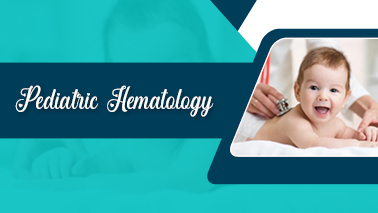
Pediatric hematology is a specialized branch of medicine focused on the diagnosis, treatment, and management of blood disorders and disorders of the hematopoietic system in children and adolescents. Here are some new research perspectives in pediatric hematology:
Genetic Basis of Hematological Disorders: Investigate the genetic mutations, polymorphisms, and molecular pathways underlying pediatric hematological disorders, including inherited anemias (e.g., sickle cell disease, thalassemia), bleeding disorders (e.g., hemophilia, von Willebrand disease), and hematologic malignancies (e.g., leukemia, lymphoma). Research can focus on disease mechanisms, genotype-phenotype correlations, and personalized treatment approaches based on genetic profiling.
Stem Cell Transplantation and Cellular Therapies: Advance research in hematopoietic stem cell transplantation (HSCT) for pediatric patients with inherited and acquired hematologic disorders, such as aplastic anemia, leukemia, and immune deficiencies. Investigate novel approaches to HSCT, including haploidentical transplantation, cord blood transplantation, and gene-modified cell therapies, to improve transplant outcomes and reduce complications.
Thrombosis and Hemostasis: Explore the pathophysiology, risk factors, and management of thrombotic disorders and hemostatic abnormalities in children, including venous thromboembolism (VTE), thrombophilia, and coagulation factor deficiencies. Research can focus on thromboprophylaxis strategies, anticoagulant therapies, and long-term outcomes in pediatric patients with thrombotic events.
Immune Hematology and Hematologic Autoimmune Disorders: Investigate immune-mediated hematologic disorders in children, such as immune thrombocytopenia (ITP), autoimmune hemolytic anemia (AIHA), and autoimmune neutropenia. Research can address immunomodulatory therapies, immune tolerance induction strategies, and biomarkers for predicting disease progression and treatment response.
Pediatric Hematologic Oncology: Advance research in pediatric hematologic malignancies, including acute lymphoblastic leukemia (ALL), acute myeloid leukemia (AML), lymphomas, and myeloproliferative neoplasms. Explore novel targeted therapies, immunotherapy approaches (e.g., chimeric antigen receptor T-cell therapy), minimal residual disease monitoring, and supportive care interventions to improve survival rates and reduce treatment-related toxicities.
Quality of Life and Survivorship: Evaluate long-term outcomes, quality of life, and psychosocial well-being of pediatric hematology patients, including survivors of hematologic malignancies and HSCT recipients. Research can address late effects of treatment, survivorship care plans, transition to adult healthcare, and supportive services for families and caregivers.
These research perspectives aim to advance knowledge, improve diagnostic and therapeutic strategies, optimize outcomes, and enhance the overall care of children and adolescents with hematologic disorders, contributing to the field of pediatric hematology.
Tags
Pediatric Nutrition Conferences
Childcare Conferences USA 2025
Neonatal Nursing Conferences
Pediatrics Conferences 2025
Pediatric Nursing Conferences Europe
Pediatric Cardiology Conferences
Pediatric Ophthalmology Conferences
Pediatric Obesity Meetings America
Pediatric Infectious Diseases Conferences
Child Psychiatry Conferences
Pediatric Dentistry Conferences Canada
Pediatrics Conferences Japan
Childhood Cancer Conferences
Clinical Pediatrics Conferences 2024
Pediatric Oncology Conferences 2025
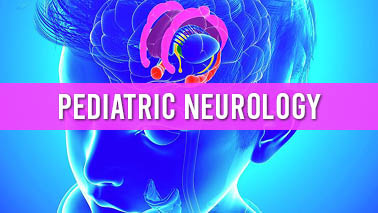
Pediatric neurology is a medical specialty focused on the diagnosis, treatment, and management of neurological disorders in infants, children, and adolescents. Here are some new research perspectives in pediatric neurology:
Neurodevelopmental Disorders: Investigate the etiology, early detection, and intervention strategies for neurodevelopmental disorders in children, such as autism spectrum disorder (ASD), attention-deficit/hyperactivity disorder (ADHD), intellectual disabilities, and developmental delays. Research can focus on genetic factors, neuroimaging biomarkers, early intervention programs, and personalized treatment approaches.
Epilepsy and Seizure Disorders: Advance understanding of epilepsy syndromes, seizure classification, and treatment options in pediatric patients. Research can explore novel antiepileptic drugs, seizure prediction algorithms, non-pharmacological therapies (e.g., ketogenic diet, neurostimulation), and long-term outcomes in children with epilepsy.
Neuromuscular Disorders: Investigate genetic and acquired neuromuscular disorders in children, including muscular dystrophies, spinal muscular atrophy (SMA), myasthenia gravis, and neuropathies. Research can focus on disease mechanisms, biomarkers for disease progression, gene therapies, and supportive care interventions (e.g., physical therapy, respiratory support).
Pediatric Stroke and Cerebrovascular Disorders: Explore the epidemiology, risk factors, and management of pediatric stroke, arteriovenous malformations (AVMs), and other cerebrovascular disorders. Research can address acute stroke interventions, neuroimaging modalities, stroke prevention strategies, and long-term neurorehabilitation outcomes in children with cerebrovascular events.
Neuroimmunology and Autoimmune Disorders: Investigate autoimmune-mediated neurological disorders in children, such as multiple sclerosis (MS), acute disseminated encephalomyelitis (ADEM), and autoimmune encephalopathies. Research can focus on immune biomarkers, immunomodulatory therapies, and neuroinflammatory mechanisms underlying pediatric autoimmune conditions.
Neurogenetics and Precision Medicine: Utilize advances in neurogenetics, whole exome sequencing, and precision medicine approaches to tailor treatments for children with rare neurological disorders and genetic syndromes. Research can explore genotype-phenotype correlations, therapeutic targets, gene editing technologies, and patient-specific outcomes in pediatric neurology.
These research perspectives aim to advance knowledge, improve diagnostic accuracy, optimize treatment strategies, and enhance outcomes for children and adolescents with neurological disorders, contributing to the field of pediatric neurology.
Tags
Pediatric Cardiology Conferences
Childcare Conferences USA 2025
Neonatal Healthcare Events
Adolescent Medicine Conferences USA
Pediatric Surgery Conferences 2025
Child Abuse Conferences 2025
Pediatric Infectious Diseases Conferences
Pediatric Dentistry Conferences Canada
Neonatology Meetings 2025
Pediatrics Conferences 2024 Asia
Clinical Pediatrics Congress 2025
Pediatric Neurology Conferences
Pediatrics Conferences 2025
Neonatal Nursing Conferences
Perinatal Medicine Conferences

Pediatric nutrition and obesity are interconnected areas focusing on the dietary needs, nutritional status, and weight management of children and adolescents. Here are some new research perspectives in pediatric nutrition and obesity:
Early Nutrition and Development: Investigate the impact of early nutrition, including breastfeeding, complementary feeding practices, and micronutrient supplementation, on growth, cognitive development, and long-term health outcomes in infants and young children. Research can explore optimal feeding strategies, nutrient requirements, and the role of gut microbiota in early life programming.
Nutrition and Immune Function: Explore the relationship between nutrition and immune function in pediatric populations, including the role of nutrients (e.g., vitamins, minerals, omega-3 fatty acids) in modulating immune responses, reducing inflammation, and preventing infections. Research can also investigate nutritional interventions for immune-mediated disorders and allergies in children.
Obesity Prevention and Intervention: Develop and evaluate obesity prevention programs targeting children and adolescents, including school-based interventions, community outreach initiatives, and family-centered approaches. Research can focus on promoting healthy eating habits, physical activity promotion, screen time reduction, and behavioral changes to prevent obesity and related comorbidities.
Nutritional Management of Chronic Diseases: Investigate nutritional interventions for managing chronic diseases in pediatric patients, such as diabetes mellitus, cystic fibrosis, inflammatory bowel disease (IBD), and food allergies. Research can address personalized nutrition plans, dietary modifications, nutritional supplements, and monitoring strategies to optimize health outcomes and quality of life.
Nutritional Challenges in Special Populations: Examine nutritional challenges and interventions in special pediatric populations, including premature infants, children with neurodevelopmental disorders (e.g., autism spectrum disorder), genetic syndromes, and metabolic disorders (e.g., phenylketonuria, mitochondrial disorders). Research can focus on tailored nutritional approaches, feeding difficulties, and growth monitoring in these populations.
Nutrition Education and Health Literacy: Evaluate the effectiveness of nutrition education programs, health literacy initiatives, and multimedia resources for children, parents, caregivers, and healthcare providers. Research can assess knowledge acquisition, behavior change, dietary adherence, and long-term sustainability of nutrition interventions in diverse pediatric populations.
These research perspectives aim to enhance understanding, inform evidence-based practice, and promote healthy nutrition and weight management strategies for children and adolescents, contributing to the field of pediatric nutrition and obesity.
Tags
Pediatrics Conferences Japan
Neonatology Meetings 2025
Pediatrics Conferences 2024 Europe
Pediatrics Conferences
Childhood Cancer Conferences
Pediatrics Conferences 2025
Childcare Conferences USA 2025
Neonatal Healthcare Events
Pediatric Oncology Conferences 2025
Pediatric Cardiology Conferences
Clinical Pediatrics Congress 2025
Child Abuse Conferences 2025
Clinical Pediatrics Conferences 2024
Pediatric Infectious Diseases Conferences
Pediatric Ophthalmology Conferences

Pediatric oncology is a medical specialty focused on the diagnosis, treatment, and management of cancer in children and adolescents. Here are some new research perspectives in pediatric oncology:
Precision Medicine and Targeted Therapies: Explore the use of precision medicine approaches, including genomic profiling, molecular diagnostics, and targeted therapies, in the treatment of pediatric cancers. Research can focus on identifying actionable genetic mutations, developing novel targeted agents, and optimizing treatment regimens for individual patients based on their tumor biology.
Immunotherapy Advancements: Investigate advancements in immunotherapy for pediatric cancers, including chimeric antigen receptor (CAR) T-cell therapy, immune checkpoint inhibitors, and adoptive cell therapies. Research can address immunotherapy efficacy, safety profiles, mechanisms of resistance, and combination strategies to enhance anti-tumor immune responses in children and adolescents.
Cancer Survivorship and Late Effects: Evaluate long-term outcomes, survivorship care models, and late effects of cancer treatment in pediatric cancer survivors. Research can focus on monitoring late effects (e.g., cardiotoxicity, neurocognitive impairments, secondary malignancies), optimizing survivorship care plans, and addressing psychosocial and quality-of-life concerns in survivors and their families.
Pediatric Brain Tumors: Advance research in pediatric brain tumors, including gliomas, medulloblastomas, ependymomas, and rare brain tumors. Research can focus on molecular subtyping, tumor microenvironment interactions, targeted therapies (e.g., BRAF inhibitors), neurosurgical innovations, and radiation therapy techniques to improve outcomes and reduce treatment-related toxicities.
Drug Development and Clinical Trials: Facilitate pediatric oncology drug development through preclinical studies, early-phase clinical trials, and innovative trial designs (e.g., basket trials, adaptive trials). Research can address challenges in pediatric drug approvals, regulatory pathways, patient recruitment, and international collaboration to accelerate the availability of effective therapies for childhood cancers.
Psychosocial Support and Palliative Care: Enhance psychosocial support services, palliative care interventions, and end-of-life care for children with cancer and their families. Research can focus on symptom management, communication strategies, bereavement support, advance care planning, and ethical considerations in pediatric oncology.
These research perspectives aim to improve outcomes, reduce treatment-related toxicities, enhance quality of life, and advance the field of pediatric oncology, ultimately benefiting children and adolescents diagnosed with cancer and their families.
Tags
Child Psychiatry Conferences
Neonatal Healthcare Events
Pediatrics Conferences
Pediatric Neurology Conferences
Childhood Cancer Conferences
Pediatrics Conferences 2025
Pediatric Ophthalmology Conferences
Pediatrics Conferences 2024 Asia
Pediatric Nursing Conferences Europe
Child Abuse Conferences 2025
Pediatrics Conferences 2024 Europe
Pediatric Conferences 2024 USA
Pediatric Nutrition Conferences
Pediatric Cardiology Conferences
Pediatric Surgery Conferences 2025
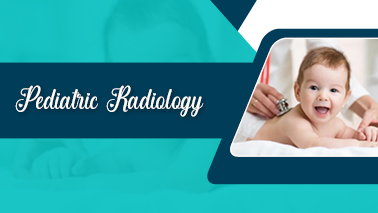
Pediatric radiology is a subspecialty within radiology that focuses on the imaging and interpretation of medical conditions in infants, children, and adolescents. It encompasses a wide range of imaging modalities, including X-rays, ultrasound, computed tomography (CT), magnetic resonance imaging (MRI), and nuclear medicine techniques, tailored to the unique anatomical and physiological characteristics of pediatric patients.
Here are some new research perspectives in pediatric radiology:
Reducing Radiation Dose in Pediatric Imaging: Minimizing radiation exposure is a primary concern in pediatric radiology due to children's increased sensitivity to ionizing radiation and the potential long-term risks of cumulative exposure. Research can focus on optimizing imaging protocols and developing low-dose radiation techniques for various modalities, including CT and fluoroscopy, without compromising diagnostic accuracy. This may involve innovations in image reconstruction algorithms, dose modulation strategies, and alternative imaging modalities with lower radiation doses, such as MRI or ultrasound.
Advanced Imaging Techniques for Pediatric Neuroimaging: Neuroimaging plays a crucial role in diagnosing and monitoring neurological conditions in children. Research efforts can explore advanced imaging techniques, such as functional MRI (fMRI), diffusion tensor imaging (DTI), and magnetic resonance spectroscopy (MRS), for assessing brain development, identifying biomarkers of neurodevelopmental disorders, and predicting treatment outcomes. Additionally, incorporating artificial intelligence (AI) algorithms for automated image analysis and pattern recognition may enhance the efficiency and accuracy of pediatric neuroimaging interpretation.
Pediatric Cardiovascular Imaging: Cardiovascular imaging is essential for evaluating congenital heart defects, acquired heart diseases, and vascular abnormalities in children. Research can focus on refining imaging protocols and techniques for cardiac MRI, CT angiography, and echocardiography to improve diagnostic accuracy, assess cardiac function and hemodynamics, and guide therapeutic interventions, such as catheter-based interventions or surgical planning. Furthermore, investigating novel imaging biomarkers and quantitative imaging metrics may aid in risk stratification and prognostication for pediatric cardiac patients.
Imaging in Pediatric Oncology: Radiological imaging plays a crucial role in the diagnosis, staging, and surveillance of pediatric oncological conditions, including solid tumors, leukemia, and lymphoma. Research can explore the utility of advanced imaging modalities, such as positron emission tomography (PET), PET-MRI fusion imaging, and molecular imaging probes, for detecting primary tumors, evaluating treatment response, and detecting early signs of recurrence. Additionally, developing imaging-based biomarkers of tumor biology and treatment response may facilitate personalized treatment strategies and improve patient outcomes in pediatric oncology.
Interventional Pediatric Radiology: Interventional radiology procedures offer minimally invasive diagnostic and therapeutic options for a wide range of pediatric conditions, including vascular anomalies, congenital malformations, and oncological interventions. Research can focus on refining techniques and devices for pediatric interventional procedures, optimizing patient selection criteria, and evaluating long-term outcomes and safety profiles. Additionally, investigating novel image-guided therapies, such as targeted drug delivery systems or thermal ablation techniques, may expand the therapeutic armamentarium in pediatric interventional radiology.
Multimodal Imaging Integration and Fusion: Integrating information from multiple imaging modalities and fusing imaging datasets can provide comprehensive anatomical and functional information for diagnostic decision-making in pediatric radiology. Research can explore innovative approaches for multimodal imaging fusion, such as combining anatomical MRI with functional MRI or incorporating molecular imaging data into anatomical imaging datasets. Furthermore, developing advanced visualization techniques and interactive imaging tools may facilitate collaborative interpretation and enhance diagnostic accuracy in pediatric imaging.
By addressing these research perspectives, pediatric radiologists can advance the field of pediatric imaging, improve diagnostic accuracy, optimize imaging protocols, and ultimately enhance patient care and outcomes for children with various medical conditions.
Tags
Pediatrics Conferences 2025
Pediatrics Conferences 2024 Asia
Pediatric Conferences 2024 USA
Pediatric Ophthalmology Conferences
Pediatric Nursing Conferences Europe
Pediatric Dentistry Conferences Canada
Neonatal Healthcare Events
Pediatrics Conferences 2025
Pediatric Infectious Diseases Conferences
Pediatrics Conferences
Childhood Cancer Conferences
Clinical Pediatrics Congress 2025
Perinatal Medicine Conferences
Pediatric Neurology Conferences
Pediatric Oncology Conferences 2025

Pediatric surgery is a specialized field of medicine focused on the surgical treatment of infants, children, and adolescents. Pediatric surgeons undergo extensive training to provide surgical care for a wide range of conditions unique to pediatric patients, including congenital anomalies, traumatic injuries, neoplastic diseases, and acquired surgical conditions.
Here are some new research perspectives in pediatric surgery:
Precision Surgery for Congenital Anomalies: Advancements in genomic medicine and precision surgery techniques offer opportunities to tailor surgical interventions based on individual patients' genetic profiles and anatomical variations. Research can focus on identifying genetic markers associated with congenital anomalies, predicting disease severity and prognosis, and optimizing surgical treatment strategies to achieve better outcomes with reduced morbidity and long-term complications.
Development of Pediatric Surgical Robotics: Robotic-assisted surgery has shown promise in improving surgical precision, dexterity, and visualization in adult patients. Research efforts can explore the adaptation and development of robotic surgical platforms specifically for pediatric surgery, considering the unique anatomical challenges, smaller operating spaces, and patient safety concerns in pediatric populations. Robotic-assisted techniques may enhance the feasibility and safety of minimally invasive procedures in children, leading to shorter hospital stays and faster recovery times.
Innovations in Fetal Surgery: Fetal surgery involves interventions performed in utero to treat congenital anomalies or conditions that may lead to significant morbidity or mortality if left untreated until after birth. Research can focus on refining fetal surgical techniques, enhancing prenatal imaging modalities for accurate diagnosis and patient selection, and evaluating the long-term outcomes and neurodevelopmental effects of fetal interventions. Additionally, exploring novel approaches such as gene therapy and stem cell-based therapies for in utero treatment of genetic disorders holds promise for improving outcomes in high-risk pregnancies.
Optimizing Perioperative Care and Pain Management: Perioperative care plays a crucial role in ensuring optimal outcomes and reducing perioperative complications in pediatric surgical patients. Research can investigate strategies to optimize perioperative pain management, minimize anesthesia-related risks, and improve postoperative recovery and rehabilitation. This may include evaluating the efficacy and safety of regional anesthesia techniques, enhanced recovery protocols, and multimodal pain management strategies tailored to the unique physiological and developmental needs of pediatric patients.
Advancements in Tissue Engineering and Regenerative Medicine: Tissue engineering and regenerative medicine hold potential for developing innovative approaches to repair and regenerate damaged tissues and organs in pediatric surgical patients. Research can explore bioengineering techniques, biomaterials, and cell-based therapies for tissue reconstruction, organ replacement, and wound healing in pediatric surgery. Regenerative medicine approaches may offer alternatives to traditional surgical interventions and improve functional outcomes in children with congenital defects or traumatic injuries.
Global Surgery and Access to Pediatric Surgical Care: Access to pediatric surgical care remains limited in many low- and middle-income countries, leading to significant disparities in surgical outcomes and pediatric mortality rates worldwide. Research can focus on addressing barriers to access, improving surgical infrastructure, training local healthcare providers, and implementing cost-effective, context-appropriate surgical interventions in resource-limited settings. Collaborative research partnerships and innovative healthcare delivery models may help expand access to essential pediatric surgical services and reduce the burden of surgical disease in underserved populations.
By addressing these research perspectives, pediatric surgeons can advance the field of pediatric surgery, improve surgical outcomes, and enhance the quality of care for pediatric surgical patients worldwide.
Tags
Pediatric Neurology Conferences
Pediatrics Conferences 2025
Pediatric Oncology Conferences 2025
Pediatric Obesity Meetings America
Neonatal Healthcare Events
Pediatrics Conference 2024
Neonatal Nursing Conferences
Adolescent Medicine Conferences USA
Child Psychiatry Conferences
Pediatrics Conferences 2025
Pediatric Nutrition Conferences
Childhood Cancer Conferences
Pediatric Dentistry Conferences Canada
Perinatal Medicine Conferences
Neonatology Meetings 2025

Pediatric primary care is a branch of medicine focused on providing comprehensive healthcare services to children from birth through adolescence. Pediatric primary care providers, including pediatricians, family physicians, and nurse practitioners, play a vital role in promoting children's health, preventing illness, managing chronic conditions, and addressing developmental and behavioral concerns.
Here are some new research perspectives in pediatric primary care:
Telemedicine and Remote Care Delivery: Telemedicine has gained prominence as a means of delivering healthcare services remotely, particularly in light of the COVID-19 pandemic. Research can focus on evaluating the effectiveness, safety, and patient satisfaction with telemedicine interventions in pediatric primary care. This includes assessing the feasibility of virtual well-child visits, remote monitoring of chronic conditions, teleconsultations for developmental and behavioral concerns, and tele-education for caregivers on child health topics.
Health Equity and Access to Care: Disparities in healthcare access and outcomes persist among pediatric populations, particularly among marginalized and underserved communities. Research efforts can investigate the social determinants of health, structural barriers to care, and interventions to promote health equity in pediatric primary care. This includes evaluating the impact of community health worker programs, school-based health centers, and mobile health clinics on access to care, health outcomes, and healthcare utilization among vulnerable pediatric populations.
Population Health Management and Preventive Care: Population health management strategies aim to improve health outcomes and reduce healthcare costs by proactively addressing the healthcare needs of specific patient populations. Research can explore innovative approaches to population health management in pediatric primary care, including risk stratification tools, predictive analytics, and care coordination models. This includes identifying high-risk pediatric populations, implementing targeted interventions for preventive care, and assessing the impact on health outcomes and healthcare utilization.
Integrated Behavioral Health Services: Addressing the behavioral and mental health needs of children and adolescents is integral to pediatric primary care. Research can focus on integrating behavioral health services into pediatric primary care settings, such as screening for behavioral and emotional concerns, providing brief interventions and counseling, and facilitating referrals to mental health specialists when needed. Evaluating the effectiveness of integrated behavioral health models, collaborative care approaches, and early intervention strategies can improve access to timely mental health services and enhance outcomes for pediatric patients.
Precision Medicine and Personalized Care: Precision medicine approaches aim to tailor healthcare interventions based on individual patients' genetic, environmental, and lifestyle factors. Research can explore the application of precision medicine in pediatric primary care, including genomic screening for genetic conditions, pharmacogenomic testing for medication management, and personalized risk assessment for chronic diseases. Integrating precision medicine into routine clinical practice may improve diagnostic accuracy, treatment efficacy, and patient outcomes in pediatric primary care.
Health Information Technology and Digital Health Innovations: Health information technology (HIT) and digital health innovations have the potential to transform pediatric primary care delivery and improve patient outcomes. Research can focus on leveraging HIT solutions, such as electronic health records (EHRs), clinical decision support systems, and patient portals, to enhance care coordination, communication, and patient engagement in pediatric primary care. Additionally, exploring the use of mobile health apps, wearable devices, and remote monitoring technologies can empower families to actively participate in their child's healthcare management and promote self-management of chronic conditions.
By addressing these research perspectives, pediatric primary care providers can advance the field, improve health outcomes for children and adolescents, and promote health equity in pediatric populations.
Tags
Pediatrics Conferences Japan
Pediatrics Conferences 2025
Perinatal Medicine Conferences
Childcare Conferences USA 2025
Pediatric Nursing Conferences Europe
Pediatrics Conference 2024
Pediatric Obesity Meetings America
Neonatal Nursing Conferences
Pediatric Conferences 2024 USA
Pediatric Neurology Conferences
Clinical Pediatrics Conferences 2024
Pediatric Oncology Conferences 2025
Pediatric Nutrition Conferences
Pediatric Infectious Diseases Conferences
Child Abuse Conferences 2025

Perinatology, also known as maternal-fetal medicine, is a subspecialty of obstetrics and gynecology focused on managing high-risk pregnancies and addressing maternal and fetal health concerns before, during, and after childbirth. Perinatologists specialize in diagnosing and managing complications that may arise during pregnancy, labor, and delivery, as well as providing care for newborns with complex medical conditions.
Here are some new research perspectives in perinatology:
Prenatal Screening and Diagnostic Testing: Research can focus on improving prenatal screening and diagnostic techniques for detecting fetal anomalies, genetic disorders, and maternal complications. This includes evaluating the accuracy and efficacy of non-invasive prenatal testing (NIPT), cell-free DNA testing, and advanced imaging modalities such as fetal MRI and 3D/4D ultrasound. Additionally, exploring novel biomarkers and molecular techniques for early detection of pregnancy-related complications, such as preeclampsia and gestational diabetes, may facilitate timely interventions and improve maternal and fetal outcomes.
Fetal Therapy and Interventional Procedures: Fetal therapy involves interventions performed in utero to treat fetal anomalies or conditions that may lead to significant morbidity or mortality if left untreated until after birth. Research efforts can focus on refining fetal surgical techniques, developing minimally invasive procedures, and investigating novel therapeutic interventions, such as fetal stem cell transplantation, gene therapy, and in utero pharmacological treatments. Evaluating the safety, efficacy, and long-term outcomes of fetal interventions may advance the field of perinatology and improve outcomes for high-risk pregnancies and neonates.
Maternal Immunization and Infectious Disease Prevention: Maternal immunization offers an effective strategy for preventing infectious diseases and protecting both mothers and infants during pregnancy and the postpartum period. Research can explore the safety and efficacy of maternal vaccines for preventing common infectious diseases, such as influenza, pertussis, and COVID-19, in pregnant women and their newborns. Additionally, investigating the impact of maternal vaccination on maternal-fetal immune responses, antibody transfer across the placenta, and long-term protection against infectious diseases in infancy may inform vaccination recommendations and public health policies.
Maternal Health and Pregnancy Complications: Maternal health and pregnancy-related complications, such as maternal obesity, gestational diabetes, hypertensive disorders, and preterm birth, have significant implications for maternal and fetal outcomes. Research can focus on identifying modifiable risk factors, biomarkers, and predictive models for early detection and prevention of pregnancy complications. This includes investigating the impact of lifestyle interventions, nutritional supplementation, and personalized risk assessment strategies on reducing the incidence of adverse pregnancy outcomes and improving maternal-fetal health.
Maternal Mental Health and Psychosocial Well-being: Maternal mental health plays a critical role in pregnancy outcomes, maternal-fetal bonding, and infant development. Research can explore the prevalence, risk factors, and impact of maternal mental health disorders, such as depression, anxiety, and post-traumatic stress disorder (PTSD), during pregnancy and the postpartum period. Additionally, evaluating the effectiveness of psychotherapeutic interventions, peer support programs, and integrated perinatal mental health services in improving maternal well-being, birth outcomes, and child development outcomes may enhance comprehensive perinatal care delivery.
Health Disparities and Equity in Perinatal Care: Disparities in perinatal health outcomes persist among racial and ethnic minority groups, socioeconomically disadvantaged populations, and rural communities. Research efforts can investigate the root causes of perinatal health disparities, including structural racism, social determinants of health, and healthcare access barriers. Implementing culturally competent care models, community-based interventions, and policy initiatives to address systemic inequities and promote health equity in perinatal care delivery may reduce disparities in maternal-fetal health outcomes and improve access to high-quality care for underserved populations.
By addressing these research perspectives, perinatologists and maternal-fetal medicine specialists can advance the field of perinatology, improve maternal and fetal outcomes, and promote health equity in perinatal care delivery.
Tags
Neonatology Meetings 2025
Pediatric Cardiology Conferences
Pediatric Ophthalmology Conferences
Pediatric Surgery Conferences 2025
Child Psychiatry Conferences
Pediatric Conferences 2024 USA
Pediatric Obesity Meetings America
Pediatric Nursing Conferences Europe
Neonatal Nursing Conferences
Pediatrics Conferences 2025
Pediatric Neurology Conferences
Pediatrics Conferences 2024 Europe
Childhood Cancer Conferences
Pediatric Nutrition Conferences
Childcare Conferences USA 2025

Pediatric cardiology is a specialized branch of medicine focused on diagnosing, treating, and managing heart conditions in infants, children, and adolescents. It encompasses congenital heart defects, acquired heart diseases, and arrhythmias. Here are some new research perspectives in pediatric cardiology:
Genetics and Genomics: Investigate the genetic basis of congenital heart defects and inherited cardiomyopathies. Research can focus on identifying novel genetic mutations, understanding the role of epigenetics, and developing personalized medicine approaches to tailor treatments based on individual genetic profiles.
Fetal Cardiology: Advance the understanding of fetal heart development and the diagnosis and management of fetal cardiac conditions. Research can explore the impact of in utero interventions, maternal health, and environmental factors on fetal cardiac development and outcomes.
Cardiovascular Imaging: Develop and evaluate advanced imaging techniques, such as 3D echocardiography, cardiac MRI, and CT angiography, for better diagnosis and management of pediatric heart conditions. Research can focus on improving the accuracy, safety, and accessibility of these imaging modalities.
Heart Failure and Cardiomyopathies: Investigate the pathophysiology, early detection, and treatment of heart failure and cardiomyopathies in children. Research can explore novel pharmacological agents, mechanical circulatory support devices, and gene therapies to improve outcomes and quality of life.
Congenital Heart Disease (CHD) Surgery and Interventions: Evaluate surgical techniques and interventional cardiology procedures for congenital heart defects. Research can focus on minimally invasive approaches, outcomes of hybrid procedures, and long-term follow-up of surgically repaired CHD patients.
Arrhythmias and Electrophysiology: Study the mechanisms, diagnosis, and treatment of pediatric arrhythmias. Research can explore the efficacy and safety of antiarrhythmic drugs, catheter ablation techniques, and implantable devices such as pacemakers and defibrillators in children.
Cardiac Rehabilitation and Exercise Physiology: Investigate the benefits of cardiac rehabilitation and structured exercise programs for children with heart disease. Research can focus on developing age-appropriate protocols, understanding the impact on physical and psychological well-being, and improving adherence to exercise regimens.
Neurodevelopmental Outcomes: Study the neurodevelopmental and psychosocial outcomes of children with congenital and acquired heart diseases. Research can explore the impact of early cardiac interventions, long-term cognitive and behavioral outcomes, and strategies to support the developmental needs of these patients.
Telemedicine and Digital Health: Evaluate the use of telemedicine and digital health tools in pediatric cardiology. Research can focus on the effectiveness of remote monitoring, virtual consultations, and mobile health applications for managing chronic heart conditions and improving patient engagement.
Health Disparities and Access to Care: Investigate disparities in access to pediatric cardiac care based on socioeconomic status, geographic location, and race/ethnicity. Research can focus on identifying barriers to care, developing community outreach programs, and advocating for policy changes to promote equitable access to cardiac services.
Long-term Outcomes and Transition of Care: Study the long-term outcomes of pediatric cardiac patients as they transition to adult care. Research can explore the development of transition programs, the impact of lifelong cardiac surveillance, and the management of adult congenital heart disease (ACHD) patients.
These research perspectives aim to enhance understanding, improve diagnostic and therapeutic strategies, and optimize outcomes for children with heart conditions, contributing to the advancement of pediatric cardiology.
Tags
Pediatric Ophthalmology Conferences
Pediatrics Conferences 2024 Europe
Pediatric Conferences 2024 USA
Pediatrics Conferences
Pediatric Oncology Conferences 2025
Pediatric Cardiology Conferences
Pediatric Neurology Conferences
Childhood Cancer Conferences
Pediatrics Conferences 2025
Pediatrics Conferences 2025
Pediatrics Conference 2024
Pediatric Surgery Conferences 2025
Neonatal Nursing Conferences
Childcare Conferences USA 2025
Pediatric Dentistry Conferences Canada

Medical toxicology is a specialized field of medicine that deals with the diagnosis, management, and prevention of poisoning and adverse effects of drugs, chemicals, toxins, and environmental hazards. Here are some new research perspectives in medical toxicology:
Emerging Toxicological Agents: Investigate the toxicity profiles and health effects of emerging toxicological agents, such as new recreational drugs, synthetic opioids, novel psychoactive substances, and environmental pollutants. Research can focus on understanding mechanisms of toxicity, clinical presentations, and management strategies.
Toxicological Effects of Climate Change: Study the impact of climate change on toxicological exposures and health outcomes. Research can explore changes in environmental contaminants, heat-related illnesses, vector-borne diseases, and ecological shifts affecting human toxicology.
Pediatric Toxicology: Evaluate toxicological issues specific to pediatric populations, including accidental ingestions, childhood poisonings, and exposure to household products, medications, and environmental toxins. Research can focus on prevention strategies, antidote efficacy, and management guidelines for pediatric toxic exposures.
Drug-Drug Interactions and Toxicity: Investigate drug-drug interactions that can lead to toxic effects, including pharmacokinetic interactions, synergistic drug effects, and adverse reactions. Research can explore predictive models, drug interaction databases, and strategies to minimize polypharmacy risks.
Toxicological Effects of Natural Products: Study the toxicological effects of herbal supplements, dietary supplements, and natural products. Research can explore safety profiles, adulteration risks, toxic contaminants, and potential interactions with medications and other substances.
Environmental Toxicology and Public Health: Evaluate the impact of environmental toxins on public health, including air pollution, water contaminants, heavy metals, pesticides, and industrial chemicals. Research can focus on epidemiological studies, biomonitoring, risk assessment, and policy interventions to reduce environmental exposures.
Toxicokinetics and Biomarkers: Investigate toxicokinetic properties of toxicants, including absorption, distribution, metabolism, and excretion (ADME). Research can explore biomarkers of exposure, toxicity, and susceptibility, as well as biomonitoring techniques for assessing toxicant levels in biological samples.
Toxicological Risk Communication: Study effective communication strategies for toxicological risk information to healthcare professionals, patients, public health agencies, and policymakers. Research can explore risk perception, health literacy, communication tools, and decision-making frameworks in toxicology.
Occupational Toxicology and Workplace Exposures: Evaluate occupational toxicological hazards, including exposure to industrial chemicals, solvents, heavy metals, and hazardous materials. Research can focus on risk assessment, workplace monitoring, protective measures, and occupational health policies.
Toxicological Effects of Nanomaterials: Investigate the toxicity profiles and health effects of nanomaterials used in consumer products, healthcare applications, and industrial processes. Research can explore nanotoxicology, nanoparticle interactions with biological systems, and safety considerations for nanotechnology.
Toxicological Effects of Electronic Cigarettes and Vaping Products: Study the toxicological effects of electronic cigarettes (e-cigarettes), vaping devices, and related products. Research can explore chemical constituents, respiratory toxicity, cardiovascular effects, and long-term health risks associated with vaping.
Toxicological Data Integration and Big Data Analytics: Explore data integration approaches and big data analytics in toxicology research. Research can focus on data mining, machine learning algorithms, predictive modeling, and computational toxicology tools for analyzing large-scale toxicological datasets and identifying patterns of toxicity.
These research perspectives aim to advance the understanding of toxicological hazards, improve diagnostic and management strategies for toxic exposures, and promote public health interventions to reduce toxicological risks and improve safety for individuals and communities.
Tags
Child Abuse Conferences 2025
Pediatrics Conferences 2024 Asia
Childhood Cancer Conferences
Pediatric Dentistry Conferences Canada
Pediatric Obesity Meetings America
Pediatric Infectious Diseases Conferences
Perinatal Medicine Conferences
Neonatology Meetings 2025
Adolescent Medicine Conferences USA
Pediatrics Conferences 2024 Europe
Clinical Pediatrics Congress 2025
Pediatric Surgery Conferences 2025
Pediatric Ophthalmology Conferences
Pediatric Neurology Conferences
Pediatrics Conferences 2025

Pediatric dermatology is a specialized branch of dermatology that focuses on the diagnosis, treatment, and management of skin, hair, and nail disorders in infants, children, and adolescents. Here are some new research perspectives in pediatric dermatology:
Genetic Skin Disorders: Investigate the genetic basis and molecular mechanisms underlying pediatric skin disorders such as epidermolysis bullosa, ichthyosis, and neurofibromatosis. Research can focus on gene therapy approaches, genetic counseling, and personalized treatment strategies based on genetic profiling.
Atopic Dermatitis and Eczema: Explore the pathophysiology, environmental triggers, and immune dysregulation in atopic dermatitis. Research can investigate novel topical and systemic therapies, the role of microbiome modulation, and long-term management strategies to improve quality of life and reduce flares in affected children.
Infantile Hemangiomas and Vascular Anomalies: Study the natural history, genetic factors, and treatment options for infantile hemangiomas and other vascular anomalies. Research can focus on the efficacy and safety of beta-blockers like propranolol, laser therapies, and surgical interventions, as well as the identification of biomarkers for predicting treatment response.
Pediatric Psoriasis: Advance understanding of pediatric psoriasis, including its genetic predisposition, immune pathways, and environmental triggers. Research can explore biologic therapies, new topical treatments, and the psychosocial impact of psoriasis on children and adolescents.
Skin Infections and Infestations: Investigate the epidemiology, prevention, and treatment of common skin infections and infestations in children, such as impetigo, fungal infections, scabies, and head lice. Research can focus on antibiotic resistance, novel antimicrobial agents, and public health strategies for infection control.
Acne and Related Disorders: Explore the hormonal, genetic, and environmental factors contributing to acne in children and adolescents. Research can investigate new topical and systemic treatments, the impact of diet and lifestyle on acne, and the psychosocial effects of acne on young patients.
Cutaneous Manifestations of Systemic Diseases: Study the skin manifestations of systemic diseases, such as lupus, juvenile dermatomyositis, and Kawasaki disease, in pediatric patients. Research can focus on early diagnosis, monitoring disease activity, and the role of dermatologists in multidisciplinary care teams.
Pigmentary Disorders: Investigate the causes, diagnosis, and treatment of pigmentary disorders such as vitiligo, hyperpigmentation, and albinism in children. Research can explore the genetic basis, novel therapies (e.g., JAK inhibitors for vitiligo), and psychosocial support for affected patients.
Teledermatology and Digital Health: Evaluate the use of teledermatology and digital health tools in pediatric dermatology. Research can focus on the effectiveness of teleconsultations, mobile applications for skin disease management, and the integration of artificial intelligence for diagnostic support.
Quality of Life and Psychosocial Impact: Study the impact of chronic skin conditions on the quality of life and psychosocial well-being of pediatric patients and their families. Research can explore interventions to support mental health, improve self-esteem, and enhance adherence to treatment regimens.
These research perspectives aim to advance knowledge, improve diagnostic accuracy, develop innovative treatments, and enhance the overall care and quality of life for children and adolescents with dermatological conditions, contributing to the field of pediatric dermatology.
Tags
Pediatric Obesity Meetings America
Pediatric Infectious Diseases Conferences
Childhood Cancer Conferences
Child Psychiatry Conferences
Pediatric Neurology Conferences
Pediatric Oncology Conferences 2025
Neonatal Healthcare Events
Pediatric Dentistry Conferences Canada
Pediatrics Conferences 2025
Pediatrics Conferences 2024 Asia
Childcare Conferences USA 2025
Pediatric Nutrition Conferences
Pediatric Cardiology Conferences
Pediatrics Conference 2024
Adolescent Medicine Conferences USA

Pediatric critical care is a medical specialty that focuses on the diagnosis, treatment, and management of life-threatening conditions in infants, children, and adolescents. It involves intensive monitoring and advanced medical interventions to support vital organ functions in critically ill patients. Here are some new research perspectives in pediatric critical care:
Sepsis and Septic Shock: Investigate the pathophysiology, early detection, and management of sepsis and septic shock in pediatric patients. Research can focus on the use of biomarkers for early diagnosis, precision medicine approaches to tailor therapies, and the development of novel immunomodulatory treatments to improve outcomes.
Acute Respiratory Distress Syndrome (ARDS): Advance understanding of pediatric ARDS, including its risk factors, progression, and treatment. Research can explore ventilatory strategies, the role of extracorporeal membrane oxygenation (ECMO), and the potential benefits of novel therapies such as surfactant replacement, prone positioning, and anti-inflammatory agents.
Trauma and Neurocritical Care: Explore the management of traumatic brain injury (TBI) and spinal cord injuries in children. Research can focus on neuroprotective strategies, advanced neuroimaging techniques, biomarkers of brain injury, and rehabilitation protocols to enhance recovery and minimize long-term deficits.
Cardiovascular Support and Monitoring: Investigate advanced cardiovascular support techniques, such as ECMO, ventricular assist devices (VADs), and advanced hemodynamic monitoring, in pediatric patients with severe cardiac dysfunction. Research can also address the optimization of fluid management, inotropic support, and resuscitation strategies in critically ill children.
Infections and Antimicrobial Stewardship: Study the epidemiology, prevention, and treatment of healthcare-associated infections (HAIs) in pediatric intensive care units (PICUs). Research can focus on antimicrobial stewardship programs, infection control practices, and the development of rapid diagnostic tests to guide targeted antimicrobial therapy.
Nutrition and Metabolism in Critical Illness: Explore the impact of critical illness on nutrition and metabolism in pediatric patients. Research can investigate optimal nutritional strategies, the role of metabolic monitoring, and the effects of early enteral and parenteral nutrition on outcomes in critically ill children.
Sedation, Analgesia, and Delirium: Investigate the best practices for sedation, analgesia, and delirium management in the PICU. Research can focus on the use of sedation protocols, non-pharmacological interventions, delirium prevention strategies, and the long-term neurocognitive effects of sedation and analgesia in critically ill children.
Post-Intensive Care Syndrome (PICS): Study the long-term physical, cognitive, and psychological effects of critical illness and PICU stay, known as post-intensive care syndrome (PICS), in pediatric patients. Research can focus on identifying risk factors, developing follow-up care programs, and implementing rehabilitation strategies to improve quality of life after PICU discharge.
Ethics and End-of-Life Care: Explore ethical considerations and best practices in end-of-life care for pediatric patients in the PICU. Research can address decision-making processes, communication with families, palliative care integration, and support systems for healthcare providers and families dealing with end-of-life issues.
These research perspectives aim to improve understanding, advance treatment strategies, optimize patient outcomes, and enhance the overall care of critically ill children, contributing to the field of pediatric critical care.
Tags
Pediatric Obesity Meetings America
Pediatric Infectious Diseases Conferences
Pediatrics Conferences 2025
Childcare Conferences USA 2025
Neonatology Meetings 2025
Child Abuse Conferences 2025
Pediatrics Conference 2024
Perinatal Medicine Conferences
Clinical Pediatrics Congress 2025
Neonatal Nursing Conferences
Clinical Pediatrics Conferences 2024
Pediatric Oncology Conferences 2025
Pediatrics Conferences 2025
Childhood Cancer Conferences
Pediatric Ophthalmology Conferences
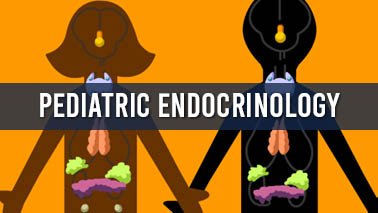
Pediatric endocrinology is a medical specialty focused on the diagnosis, treatment, and management of hormonal disorders in children and adolescents. Hormones play a crucial role in growth, development, metabolism, and overall health, and pediatric endocrinologists work to address a wide range of conditions related to hormone imbalances.
Here are some new research perspectives in pediatric endocrinology:
Genetics and Endocrine Disorders: Investigate the genetic basis of various pediatric endocrine disorders, including congenital adrenal hyperplasia, growth hormone deficiencies, and thyroid disorders. Research in this area can lead to better understanding of disease mechanisms, identification of novel genetic markers, and development of targeted therapies.
Obesity and Metabolic Health: Explore the complex interplay between genetics, environment, and lifestyle factors in childhood obesity and metabolic syndrome. Research can focus on early interventions, personalized nutrition and exercise programs, and novel pharmacological approaches to improve metabolic health and prevent long-term complications.
Neuroendocrinology and Brain Development: Study the impact of hormonal dysregulation on brain development and function in children with endocrine disorders such as hypothyroidism, precocious puberty, and diabetes insipidus. Research can examine neuroimaging techniques, cognitive assessments, and behavioral interventions to optimize neurodevelopmental outcomes.
Endocrine Disruptors and Environmental Health: Investigate the effects of endocrine-disrupting chemicals (EDCs) on pediatric endocrine health and development. Research can focus on identifying common EDCs, evaluating their impact on hormone systems, and developing strategies to reduce exposure and mitigate health risks in children.
Transition Care and Long-Term Outcomes: Explore transitional care models for adolescents with chronic endocrine conditions, such as diabetes mellitus, hypothyroidism, and adrenal insufficiency. Research can address healthcare continuity, self-management skills, psychosocial support, and long-term outcomes into adulthood.
Precision Medicine and Therapeutic Innovations: Utilize precision medicine approaches, including biomarker profiling, pharmacogenomics, and targeted therapies, to optimize treatment outcomes in pediatric endocrinology. Research can focus on individualized treatment plans, novel drug delivery systems, and gene-editing technologies for inherited endocrine disorders.
These research perspectives aim to advance knowledge, improve diagnostic capabilities, refine treatment strategies, and enhance the overall care of children and adolescents with endocrine disorders, contributing to the field of pediatric endocrinology.
Tags
Pediatric Ophthalmology Conferences
Pediatric Surgery Conferences 2025
Clinical Pediatrics Congress 2025
Neonatal Nursing Conferences
Child Abuse Conferences 2025
Pediatric Conferences 2024 USA
Pediatric Neurology Conferences
Pediatric Dentistry Conferences Canada
Clinical Pediatrics Conferences 2024
Adolescent Medicine Conferences USA
Pediatric Cardiology Conferences
Child Psychiatry Conferences
Pediatrics Conferences 2025
Pediatrics Conferences 2024 Asia
Pediatric Nutrition Conferences
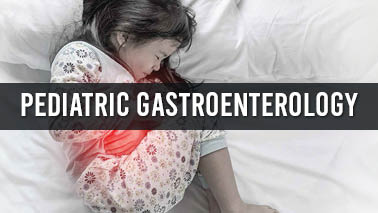
Pediatric gastroenterology is a medical specialty that focuses on the diagnosis, treatment, and management of digestive system disorders in infants, children, and adolescents. This field encompasses a wide range of conditions affecting the gastrointestinal tract, liver, pancreas, and related organs. Here are some new research perspectives in pediatric gastroenterology:
Microbiome and Gut Health: Investigate the role of the gut microbiome in pediatric gastrointestinal disorders, such as inflammatory bowel disease (IBD), irritable bowel syndrome (IBS), and food allergies. Research can focus on microbiota composition, microbial metabolites, gut-brain axis interactions, and the impact of microbiome modulation on disease outcomes and treatment responses.
Nutritional Therapies and Dietary Interventions: Evaluate the efficacy and safety of specialized nutritional therapies, including exclusive enteral nutrition (EEN), elemental diets, and specific carbohydrate diets, in managing pediatric gastrointestinal conditions. Research can also explore the role of dietary modifications, probiotics, prebiotics, and nutritional supplements in optimizing gut health and mucosal healing.
Pediatric Inflammatory Bowel Disease (IBD): Advance understanding of the pathophysiology, natural history, and disease progression of pediatric IBD, including Crohn's disease and ulcerative colitis. Research can focus on disease biomarkers, personalized treatment algorithms, early intervention strategies, and long-term outcomes in children and adolescents with IBD.
Liver Diseases in Children: Investigate the etiology, risk factors, and management of liver diseases in pediatric patients, such as non-alcoholic fatty liver disease (NAFLD), autoimmune hepatitis, viral hepatitis, and metabolic liver disorders. Research can address liver fibrosis assessment, hepatic complications of obesity and metabolic syndrome, and novel therapeutic approaches.
Functional Gastrointestinal Disorders (FGIDs): Explore the pathophysiology, diagnostic criteria, and treatment options for pediatric FGIDs, including functional abdominal pain, functional dyspepsia, and functional constipation. Research can focus on symptom-based assessments, multidisciplinary interventions, and psychosocial factors influencing FGID outcomes.
Endoscopy and Minimally Invasive Procedures: Evaluate the safety, efficacy, and outcomes of endoscopic procedures, such as upper gastrointestinal endoscopy, colonoscopy, and endoscopic retrograde cholangiopancreatography (ERCP), in pediatric patients. Research can also explore advancements in endoscopic imaging, therapeutic interventions, and sedation protocols for children undergoing endoscopy.
These research perspectives aim to advance knowledge, improve diagnostic accuracy, enhance treatment strategies, and optimize outcomes for pediatric patients with gastrointestinal and liver disorders, contributing to the field of pediatric gastroenterology.
Tags
Pediatrics Conferences 2024 Asia
Neonatal Healthcare Events
Pediatric Conferences 2024 USA
Pediatrics Conferences
Pediatric Nursing Conferences Europe
Clinical Pediatrics Conferences 2024
Child Abuse Conferences 2025
Pediatric Ophthalmology Conferences
Perinatal Medicine Conferences
Pediatric Infectious Diseases Conferences
Pediatric Dentistry Conferences Canada
Neonatal Nursing Conferences
Pediatric Surgery Conferences 2025
Pediatrics Conferences Japan
Pediatric Oncology Conferences 2025

Pediatric gynecology is a specialized field within gynecology that deals with the medical and surgical care of female infants, children, and adolescents with gynecological issues. Here are some potential research perspectives in pediatric gynecology:
Developmental Disorders of the Genital Tract: Investigate the etiology, natural history, and management of congenital anomalies and developmental disorders affecting the female reproductive system, such as vaginal agenesis, Müllerian duct anomalies, and cloacal malformations. Research can focus on early diagnosis, surgical interventions, and long-term outcomes in affected individuals.
Menstrual Disorders and Pubertal Health: Explore the causes, evaluation, and treatment of menstrual disorders in adolescent girls, including irregular periods, heavy bleeding (menorrhagia), absent menstruation (amenorrhea), and dysmenorrhea (painful periods). Research can also address pubertal development, hormonal regulation, and psychosocial aspects of puberty in pediatric gynecology.
Reproductive Endocrinology and Fertility Preservation: Investigate reproductive endocrine disorders in pediatric patients, such as polycystic ovary syndrome (PCOS), ovarian insufficiency, and hyperandrogenism. Research can focus on hormonal profiling, fertility preservation options, and reproductive health counseling for adolescents with chronic conditions or undergoing medical treatments that may impact fertility.
Pelvic Pain and Endometriosis: Advance understanding of pelvic pain disorders, including endometriosis, in adolescent girls. Research can explore diagnostic criteria, imaging modalities, medical management options (e.g., hormonal therapies, pain management), and surgical interventions for managing endometriosis-related symptoms and improving quality of life.
Sexual and Reproductive Health Education: Evaluate the effectiveness of sexual education programs, menstrual health initiatives, and reproductive health counseling in schools and healthcare settings for promoting awareness, empowerment, and healthy behaviors among adolescent girls. Research can also address cultural considerations, barriers to access, and inclusivity in pediatric gynecological care.
Minimally Invasive Gynecological Surgery: Investigate the safety, outcomes, and indications for minimally invasive surgical techniques, such as laparoscopy and hysteroscopy, in pediatric gynecology. Research can focus on surgical training, patient outcomes, complications, and long-term follow-up in children and adolescents undergoing gynecological procedures.
These research perspectives aim to improve understanding, diagnostic capabilities, treatment options, and outcomes in pediatric gynecology, ultimately enhancing the quality of care for young female patients with gynecological conditions.
Tags
Pediatrics Conferences Japan
Pediatric Nursing Conferences Europe
Pediatric Infectious Diseases Conferences
Pediatric Oncology Conferences 2025
Pediatrics Conferences
Pediatric Ophthalmology Conferences
Neonatal Nursing Conferences
Clinical Pediatrics Congress 2025
Pediatric Cardiology Conferences
Pediatric Surgery Conferences 2025
Child Abuse Conferences 2025
Pediatric Obesity Meetings America
Neonatology Meetings 2025
Pediatric Dentistry Conferences Canada
Childhood Cancer Conferences
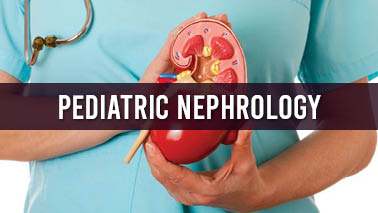
Pediatric nephrology is a medical specialty focused on the diagnosis, treatment, and management of kidney disorders and diseases in children and adolescents. Here are some new research perspectives in pediatric nephrology:
Genetics and Kidney Diseases: Investigate the genetic basis of pediatric kidney diseases, including congenital anomalies of the kidney and urinary tract (CAKUT), inherited nephropathies (e.g., Alport syndrome, polycystic kidney disease), and glomerular disorders (e.g., nephrotic syndrome, glomerulonephritis). Research can focus on genetic testing, disease mechanisms, genotype-phenotype correlations, and targeted therapies.
Acute Kidney Injury (AKI) and Renal Replacement Therapy: Advance understanding of AKI in children, including risk factors, early detection strategies, and management approaches. Research can explore the use of biomarkers, renal imaging techniques, fluid management protocols, and renal replacement therapies (e.g., hemodialysis, peritoneal dialysis, continuous renal replacement therapy) in pediatric AKI patients.
Chronic Kidney Disease (CKD) Management: Evaluate strategies for managing CKD in pediatric patients, including disease progression monitoring, blood pressure control, mineral and bone disorder management, and nutritional support. Research can focus on preserving kidney function, delaying progression to end-stage renal disease (ESRD), and improving quality of life for children with CKD.
Pediatric Renal Transplantation: Investigate outcomes and complications of kidney transplantation in children and adolescents, including immunosuppressive regimens, graft survival rates, rejection episodes, and long-term renal function. Research can address donor selection criteria, surgical techniques, post-transplant care, and immunological monitoring in pediatric transplant recipients.
Hereditary Renal Disorders and Genetic Counseling: Explore the role of genetic counseling and testing in families with hereditary kidney diseases, such as autosomal dominant polycystic kidney disease (ADPKD), cystinosis, and renal tubular disorders. Research can assess the impact of genetic information on family planning, risk assessment, and disease management decisions.
Renal Health in Pediatric Special Populations: Investigate renal health issues in special pediatric populations, such as premature infants, children with neurodevelopmental disorders, and those with complex medical conditions (e.g., congenital heart disease, cystic fibrosis). Research can focus on nephrotoxicity prevention, renal function monitoring, and tailored interventions for specific patient groups.
These research perspectives aim to advance knowledge, improve diagnostic capabilities, optimize treatment strategies, and enhance outcomes for children and adolescents with kidney disorders, contributing to the field of pediatric nephrology.
Tags
Pediatric Infectious Diseases Conferences
Neonatal Nursing Conferences
Childcare Conferences USA 2025
Clinical Pediatrics Congress 2025
Pediatric Nutrition Conferences
Adolescent Medicine Conferences USA
Child Psychiatry Conferences
Neonatology Meetings 2025
Pediatric Cardiology Conferences
Clinical Pediatrics Conferences 2024
Perinatal Medicine Conferences
Pediatric Dentistry Conferences Canada
Pediatric Conferences 2024 USA
Childhood Cancer Conferences
Pediatrics Conferences 2025

Pediatric nursing is a specialized area of nursing that focuses on providing healthcare services to infants, children, and adolescents. Here are some new research perspectives in pediatric nursing:
Family-Centered Care: Investigate the impact of family-centered care models on pediatric patients and their families. Research can focus on communication strategies, shared decision-making processes, family support interventions, and the integration of cultural and psychosocial factors into pediatric nursing practice.
Pain Management: Advance research in pediatric pain assessment and management, including pain scales, non-pharmacological interventions (e.g., distraction techniques, music therapy), pharmacological therapies (e.g., analgesics, sedatives), and pain relief protocols for different age groups and conditions.
Neonatal Nursing: Explore advancements in neonatal nursing care, including neonatal intensive care unit (NICU) practices, neonatal resuscitation techniques, developmental care approaches, and support for families of premature and critically ill newborns.
Chronic Illness Management: Investigate nursing interventions and care coordination strategies for children and adolescents with chronic illnesses, such as asthma, diabetes, cystic fibrosis, and congenital heart defects. Research can focus on self-management skills, adherence to treatment regimens, and transition to adult healthcare services.
Technology and Innovation in Nursing: Evaluate the use of technology and digital health tools in pediatric nursing practice, including electronic health records (EHRs), telehealth platforms, remote monitoring devices, and mobile applications for patient education and engagement.
Mental Health and Psychosocial Support: Address mental health needs and psychosocial challenges in pediatric patients, including anxiety, depression, trauma, and behavioral disorders. Research can explore mental health screening tools, psychotherapeutic interventions, collaborative care models, and stigma reduction strategies in pediatric nursing settings.
Health Promotion and Prevention: Develop and evaluate nursing interventions for promoting health, preventing diseases, and addressing social determinants of health in children and families. Research can focus on immunization programs, nutrition education, injury prevention, and health education initiatives in schools and communities.
These research perspectives aim to enhance nursing practice, improve patient outcomes, and contribute to the advancement of pediatric healthcare delivery.
Tags
Neonatal Healthcare Events
Child Psychiatry Conferences
Pediatric Infectious Diseases Conferences
Perinatal Medicine Conferences
Adolescent Medicine Conferences USA
Childhood Cancer Conferences
Neonatology Meetings 2025
Pediatrics Conferences
Pediatric Neurology Conferences
Pediatric Nursing Conferences Europe
Pediatrics Conference 2024
Pediatric Conferences 2024 USA
Pediatrics Conferences Japan
Pediatric Oncology Conferences 2025
Pediatric Obesity Meetings America
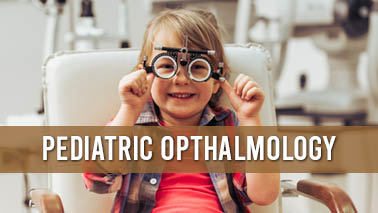
Pediatric ophthalmology is a specialized branch of ophthalmology that focuses on the diagnosis, treatment, and management of eye disorders and visual development issues in infants, children, and adolescents. Here are some new research perspectives in pediatric ophthalmology:
Genetic Eye Disorders: Investigate the genetic basis of pediatric eye disorders such as congenital cataracts, retinoblastoma, retinitis pigmentosa, and Leber congenital amaurosis. Research can focus on gene therapy, genetic screening, and personalized treatment approaches tailored to specific genetic mutations.
Amblyopia and Strabismus: Explore new methods for diagnosing and treating amblyopia ("lazy eye") and strabismus (misalignment of the eyes). Research can include the development of novel occlusion therapies, pharmacological treatments, vision therapy, and advancements in surgical techniques.
Pediatric Glaucoma: Study the causes, early detection, and management of pediatric glaucoma. Research can focus on improving diagnostic tools, developing minimally invasive surgical techniques, and investigating the long-term efficacy and safety of various treatment options, including new medications.
Retinopathy of Prematurity (ROP): Investigate the risk factors, prevention strategies, and treatment options for retinopathy of prematurity. Research can explore the role of oxygen regulation, early screening programs, laser therapy, anti-VEGF (vascular endothelial growth factor) treatments, and the long-term visual outcomes for premature infants.
Visual Development and Neuro-ophthalmology: Study the normal and abnormal development of vision and the neurological control of eye movements in children. Research can focus on understanding visual pathway disorders, cortical visual impairment, and the impact of neurological conditions on vision.
Ocular Infections and Inflammations: Investigate the epidemiology, prevention, and treatment of ocular infections and inflammatory conditions such as conjunctivitis, uveitis, and keratitis in children. Research can include the development of novel antimicrobial agents, immunomodulatory therapies, and vaccination strategies.
Innovations in Pediatric Eye Surgery: Explore advancements in pediatric eye surgery, including techniques for cataract extraction, corneal transplants, and retinal surgeries. Research can focus on improving surgical outcomes, reducing complications, and enhancing recovery processes for pediatric patients.
Pediatric Ocular Oncology: Study the diagnosis, treatment, and long-term outcomes of ocular tumors in children, such as retinoblastoma and rhabdomyosarcoma. Research can explore the use of targeted therapies, immunotherapy, and advanced imaging techniques for early detection and treatment monitoring.
Teleophthalmology and Digital Health: Evaluate the use of teleophthalmology and digital health tools in pediatric ophthalmology. Research can focus on the effectiveness of teleconsultations, mobile applications for vision screening, and artificial intelligence algorithms for diagnosing eye conditions in children.
Quality of Life and Psychosocial Impact: Investigate the impact of eye disorders on the quality of life and psychosocial well-being of pediatric patients and their families. Research can focus on interventions to support mental health, educational accommodations, and strategies to improve adherence to treatment regimens.
These research perspectives aim to enhance understanding, improve diagnostic and therapeutic strategies, and optimize outcomes for children and adolescents with eye disorders, contributing to the advancement of pediatric ophthalmology.
Tags
Pediatrics Conferences 2025
Clinical Pediatrics Congress 2025
Pediatric Ophthalmology Conferences
Clinical Pediatrics Conferences 2024
Childcare Conferences USA 2025
Pediatric Conferences 2024 USA
Pediatric Neurology Conferences
Pediatric Infectious Diseases Conferences
Pediatrics Conferences 2025
Pediatric Cardiology Conferences
Child Abuse Conferences 2025
Child Psychiatry Conferences
Pediatrics Conferences 2024 Asia
Pediatric Nursing Conferences Europe
Neonatal Nursing Conferences
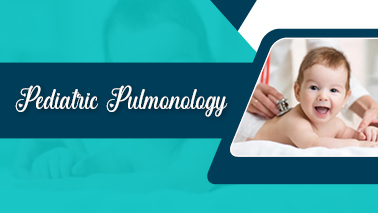
Pediatric pulmonology is a medical specialty focused on the diagnosis, treatment, and management of respiratory disorders in children, ranging from common conditions like asthma and pneumonia to more complex diseases such as cystic fibrosis, bronchopulmonary dysplasia, and congenital lung abnormalities.
Here are some new research perspectives in pediatric pulmonology:
Precision Medicine in Asthma Management: Asthma is a heterogeneous condition with various phenotypes and triggers. Research can focus on identifying biomarkers and genetic factors associated with different asthma phenotypes to develop personalized treatment approaches. This could lead to targeted therapies tailored to individual patients, potentially reducing exacerbations and improving long-term outcomes.
Early Diagnosis and Intervention for Bronchopulmonary Dysplasia (BPD): BPD is a common complication of premature birth and prolonged mechanical ventilation in neonates. Research efforts could center around early detection methods and interventions to prevent or mitigate the development of BPD. This may include exploring novel respiratory support strategies, pharmacological interventions, or stem cell therapies aimed at promoting lung development and reducing inflammation in preterm infants.
Management of Pediatric Sleep-disordered Breathing: Sleep-disordered breathing (SDB), including conditions like obstructive sleep apnea (OSA), can have significant implications for children's health and development. Research can focus on optimizing diagnostic tools and treatment modalities for pediatric SDB, including the role of adenotonsillectomy, continuous positive airway pressure (CPAP) therapy, and emerging interventions such as myofunctional therapy or oral appliances.
Environmental Factors and Respiratory Health: Investigating the impact of environmental factors, such as air pollution, allergens, and tobacco smoke exposure, on pediatric respiratory health is crucial. Research can explore the mechanisms underlying the association between environmental exposures and respiratory diseases in children, as well as strategies to mitigate these risks through public health interventions, indoor air quality improvements, and lifestyle modifications.
Novel Therapies for Cystic Fibrosis (CF): CF is a genetic disorder characterized by dysfunction of the respiratory and digestive systems. Research in pediatric pulmonology can focus on developing and evaluating new therapeutic approaches for CF, including gene-editing techniques, CFTR modulators, and anti-inflammatory agents. Improving treatments for CF has the potential to significantly enhance the quality of life and life expectancy for affected children.
Long-term Respiratory Outcomes in Premature Infants: Preterm birth is associated with an increased risk of respiratory complications in childhood and beyond. Research can investigate the long-term respiratory outcomes of preterm infants, including lung function abnormalities, respiratory infections, and the development of chronic lung diseases in adulthood. Understanding these sequelae is essential for implementing early interventions and optimizing long-term respiratory health in this vulnerable population.
Telemedicine and Remote Monitoring: Telemedicine has emerged as a valuable tool for delivering healthcare services remotely, particularly in underserved or rural areas. Research can explore the feasibility and effectiveness of telemedicine for pediatric pulmonary care, including remote monitoring of respiratory symptoms, teleconsultations for disease management, and tele-rehabilitation programs for children with chronic respiratory conditions.
By addressing these research perspectives, pediatric pulmonologists can advance our understanding of respiratory diseases in children and develop innovative strategies to improve diagnosis, treatment, and long-term outcomes for affected patients.
Tags
Clinical Pediatrics Conferences 2024
Perinatal Medicine Conferences
Pediatrics Conferences 2024 Europe
Pediatrics Conferences 2025
Pediatric Neurology Conferences
Pediatric Oncology Conferences 2025
Childhood Cancer Conferences
Pediatrics Conferences Japan
Childcare Conferences USA 2025
Pediatric Surgery Conferences 2025
Neonatology Meetings 2025
Adolescent Medicine Conferences USA
Pediatrics Conferences
Neonatal Healthcare Events
Clinical Pediatrics Congress 2025
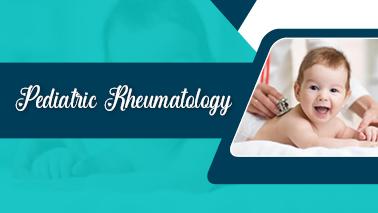
Pediatric rheumatology is a medical specialty focused on the diagnosis, treatment, and management of autoimmune and inflammatory disorders affecting the joints, muscles, bones, and connective tissues in children and adolescents. Here are some new research perspectives in pediatric rheumatology:
Genetics and Pathogenesis: Investigate the genetic basis and pathophysiology of pediatric rheumatic diseases, including juvenile idiopathic arthritis (JIA), systemic lupus erythematosus (SLE), juvenile dermatomyositis (JDM), and vasculitides. Research can focus on identifying disease susceptibility genes, immune dysregulation mechanisms, and biomarkers for disease activity and prognosis.
Biomarkers and Precision Medicine: Explore the utility of biomarkers, including autoantibodies, cytokines, and imaging markers, in predicting disease outcomes, guiding treatment decisions, and monitoring therapeutic responses in pediatric rheumatology. Research can also investigate personalized medicine approaches, including targeted therapies and immunomodulatory agents, based on individual patient characteristics and disease profiles.
Transition Care and Long-term Outcomes: Address transition care models for adolescents with rheumatic diseases, focusing on continuity of care, self-management skills, psychosocial support, and education about disease management and treatment adherence. Research can also evaluate long-term outcomes, including joint damage, disability, quality of life, and cardiovascular risks in adult survivors of pediatric rheumatic conditions.
Innovations in Treatment Modalities: Investigate novel treatment modalities and therapeutic interventions for pediatric rheumatic diseases, such as biologic agents, small molecule inhibitors, gene therapies, and cell-based therapies. Research can also explore combination therapies, drug repurposing strategies, and drug delivery systems to optimize efficacy and safety profiles in pediatric patients.
Digital Health and Telemedicine: Evaluate the use of digital health technologies, telemedicine platforms, and mobile applications in pediatric rheumatology care. Research can focus on remote monitoring of disease activity, teleconsultations, virtual multidisciplinary clinics, patient education tools, and tele-rehabilitation programs for children with rheumatic conditions.
Environmental Factors and Disease Modifiers: Investigate environmental factors, such as infections, microbiome composition, diet, and lifestyle, as potential disease modifiers or triggers in pediatric rheumatology. Research can also explore the impact of environmental exposures on disease susceptibility, flares, and treatment responses in children and adolescents with rheumatic diseases.
These research perspectives aim to advance knowledge, improve diagnostic accuracy, optimize treatment strategies, and enhance outcomes for children and adolescents with rheumatic disorders, contributing to the field of pediatric rheumatology.
Tags
Perinatal Medicine Conferences
Pediatric Obesity Meetings America
Pediatric Neurology Conferences
Pediatric Cardiology Conferences
Clinical Pediatrics Congress 2025
Childcare Conferences USA 2025
Pediatric Ophthalmology Conferences
Pediatric Nursing Conferences Europe
Neonatal Nursing Conferences
Child Abuse Conferences 2025
Pediatric Surgery Conferences 2025
Pediatrics Conferences 2025
Pediatric Nutrition Conferences
Pediatrics Conferences Japan
Pediatrics Conferences

Pediatric urology is a subspecialty of medicine dedicated to the diagnosis, treatment, and management of urological conditions in children, from infancy through adolescence. These conditions involve the urinary tract (kidneys, ureters, bladder, and urethra) and genital organs (testes, penis, and scrotum). Pediatric urologists are trained to address a wide range of congenital anomalies, developmental disorders, traumatic injuries, and acquired diseases affecting the genitourinary system in pediatric patients.
Here are some new research perspectives in pediatric urology:
Genetic and Molecular Basis of Pediatric Urological Disorders: Advances in genomic medicine and molecular biology offer opportunities to better understand the genetic and molecular basis of pediatric urological conditions. Research can focus on identifying genetic mutations, epigenetic modifications, and signaling pathways underlying congenital anomalies such as hypospadias, cryptorchidism, vesicoureteral reflux (VUR), and congenital renal anomalies. Elucidating the molecular mechanisms of disease pathogenesis may lead to novel diagnostic biomarkers, targeted therapies, and gene-based interventions for pediatric urological disorders.
Early Detection and Intervention for Urological Anomalies: Early detection and intervention are crucial for optimizing outcomes in children with urological anomalies. Research efforts can explore innovative screening protocols, imaging modalities, and diagnostic biomarkers for early detection of conditions such as posterior urethral valves, hydronephrosis, and undescended testes. Implementing early intervention strategies, including prenatal counseling, neonatal screening programs, and minimally invasive surgical techniques, may help prevent long-term complications and improve functional outcomes in pediatric patients with urological anomalies.
Regenerative Medicine and Tissue Engineering in Urology: Regenerative medicine and tissue engineering hold promise for developing bioengineered solutions to repair and regenerate damaged or dysfunctional tissues in the genitourinary system. Research can explore tissue engineering approaches to reconstruct urinary tract structures, bladder augmentation, urethral replacement, and organ transplantation in pediatric urology. Utilizing biomaterial scaffolds, stem cell-based therapies, and gene editing technologies may offer alternatives to traditional surgical interventions and improve long-term outcomes in children with complex urological conditions.
Optimizing Minimally Invasive Techniques in Pediatric Urology: Minimally invasive surgical techniques, including laparoscopy and robotic-assisted surgery, have become increasingly prevalent in pediatric urology due to their benefits of reduced surgical trauma, shorter hospital stays, and faster recovery times. Research can focus on refining and optimizing minimally invasive approaches for common pediatric urological procedures, such as pyeloplasty, nephrectomy, ureteral reimplantation, and orchidopexy. Investigating outcomes, complications, and learning curves associated with minimally invasive techniques in pediatric patients can guide surgical decision-making and enhance surgical training and proficiency in pediatric urology.
Psycho-Social Impact and Quality of Life in Pediatric Urology: Pediatric urological conditions can have a significant psycho-social impact on children and their families, affecting self-esteem, body image, social functioning, and quality of life. Research can explore the psychosocial determinants of health-related quality of life, emotional well-being, and coping mechanisms in children with urological disorders, as well as the experiences and support needs of their caregivers. Developing integrated psychosocial support programs, peer support networks, and patient-centered interventions may enhance resilience, adaptation, and overall well-being for pediatric urology patients and their families.
Health Services Research and Healthcare Delivery Models: Health services research in pediatric urology encompasses studies on healthcare access, utilization, quality, and outcomes, with the goal of improving healthcare delivery and patient outcomes. Research can investigate disparities in access to pediatric urological care, barriers to timely diagnosis and treatment, and variations in clinical practice and resource utilization. Implementing innovative healthcare delivery models, telemedicine services, and multidisciplinary care coordination may improve access to specialized pediatric urological services and enhance the quality and efficiency of care for pediatric urology patients.
By addressing these research perspectives, pediatric urologists can advance the understanding of pediatric urological disorders, develop innovative diagnostic and therapeutic strategies, optimize surgical outcomes, and improve the quality of care for pediatric patients with urological conditions.
Tags
Pediatric Surgery Conferences 2025
Pediatrics Conferences 2025
Neonatal Nursing Conferences
Childhood Cancer Conferences
Perinatal Medicine Conferences
Pediatrics Conference 2024
Pediatric Dentistry Conferences Canada
Child Psychiatry Conferences
Pediatrics Conferences
Pediatric Ophthalmology Conferences
Pediatric Infectious Diseases Conferences
Pediatric Nursing Conferences Europe
Pediatric Oncology Conferences 2025
Neonatal Healthcare Events
Child Abuse Conferences 2025
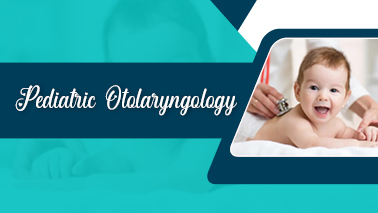
Pediatric otolaryngology is a subspecialty of medicine focused on the diagnosis, treatment, and management of ear, nose, throat (ENT), head, and neck disorders in children. Also known as pediatric ENT or pediatric otolaryngology-head and neck surgery, this field addresses a wide range of conditions unique to pediatric patients, including congenital anomalies, infectious diseases, inflammatory disorders, airway obstructions, hearing loss, and head and neck tumors.
Here are some new research perspectives in pediatric otolaryngology:
Genetic and Molecular Basis of Pediatric ENT Disorders: Advances in genetics and molecular biology offer opportunities to better understand the genetic and molecular basis of pediatric ENT disorders. Research can focus on identifying genetic mutations, epigenetic modifications, and signaling pathways underlying congenital anomalies such as cleft lip and palate, choanal atresia, congenital hearing loss, and craniofacial syndromes. Elucidating the molecular mechanisms of disease pathogenesis may lead to early diagnosis, personalized treatment strategies, and targeted therapeutic interventions for pediatric ENT disorders.
Innovative Imaging Modalities for Pediatric ENT Evaluation: Imaging plays a crucial role in the diagnosis, treatment planning, and follow-up of pediatric ENT disorders. Research efforts can explore innovative imaging modalities, such as three-dimensional (3D) imaging, functional MRI, optical coherence tomography (OCT), and dynamic airway imaging techniques, for comprehensive evaluation of pediatric airway, middle ear, and sinonasal anatomy and function. Utilizing advanced imaging technologies may improve diagnostic accuracy, surgical planning, and outcomes in children with complex ENT conditions.
Minimally Invasive and Endoscopic Techniques in Pediatric ENT Surgery: Minimally invasive and endoscopic surgical techniques have transformed the field of pediatric otolaryngology by offering less invasive alternatives to traditional open procedures. Research can focus on optimizing and expanding the applications of endoscopic surgery for pediatric ENT conditions, including endoscopic sinus surgery, endoscopic ear surgery, and endoscopic airway reconstruction. Investigating outcomes, complications, and learning curves associated with minimally invasive techniques in pediatric patients can guide surgical decision-making and enhance surgical training and proficiency in pediatric otolaryngology.
Management of Pediatric Hearing Loss and Auditory Rehabilitation: Hearing loss is a common pediatric ENT disorder with significant implications for speech and language development, social interaction, and academic performance. Research can explore innovative approaches to the management of pediatric hearing loss, including cochlear implantation, auditory brainstem implantation, bone conduction devices, and auditory rehabilitation strategies. Evaluating outcomes, long-term auditory development, and quality of life in children with hearing loss may inform evidence-based practice and improve patient-centered care in pediatric otolaryngology.
Prevention and Treatment of Pediatric Upper Airway Disorders: Pediatric upper airway disorders, such as obstructive sleep apnea (OSA), laryngomalacia, and vocal cord dysfunction, can have significant morbidity and impact on quality of life in children. Research can investigate novel strategies for the prevention, early detection, and treatment of pediatric upper airway disorders, including lifestyle interventions, myofunctional therapy, pharmacological agents, and surgical interventions. Implementing multidisciplinary approaches, including collaboration with sleep medicine specialists, speech-language pathologists, and pediatric pulmonologists, may optimize outcomes and improve long-term respiratory health in children with upper airway disorders.
Patient-reported Outcomes and Quality of Life in Pediatric ENT: Pediatric ENT disorders can have a profound impact on children's quality of life, emotional well-being, and social functioning, as well as their families' functioning and coping mechanisms. Research can explore patient-reported outcomes, health-related quality of life measures, and psychosocial factors influencing treatment decision-making and outcomes in pediatric ENT patients. Developing patient-centered interventions, support programs, and educational resources may enhance resilience, adaptation, and overall well-being for pediatric otolaryngology patients and their families.
By addressing these research perspectives, pediatric otolaryngologists can advance the understanding of pediatric ENT disorders, develop innovative diagnostic and therapeutic strategies, optimize surgical outcomes, and improve the quality of care for pediatric patients with ENT conditions.
Tags
Pediatric Neurology Conferences
Childcare Conferences USA 2025
Pediatrics Conferences 2025
Pediatric Nutrition Conferences
Pediatrics Conference 2024
Pediatrics Conferences 2024 Europe
Neonatal Nursing Conferences
Neonatal Healthcare Events
Pediatric Oncology Conferences 2025
Clinical Pediatrics Congress 2025
Neonatology Meetings 2025
Adolescent Medicine Conferences USA
Pediatric Dentistry Conferences Canada
Pediatric Obesity Meetings America
Clinical Pediatrics Conferences 2024

Physical Medicine and Rehabilitation (PM&R), also known as physiatry, is a medical specialty focused on restoring and maximizing functional abilities and quality of life for individuals with disabilities, injuries, or chronic medical conditions. Here are some new research perspectives in Physical Medicine and Rehabilitation:
Neurorehabilitation and Brain Injury: Investigate innovative neurorehabilitation techniques for individuals with traumatic brain injury (TBI), stroke, spinal cord injury (SCI), and neurological disorders. Research can focus on neuroplasticity, motor learning principles, robotics, virtual reality, and brain-computer interfaces for enhancing recovery and function.
Musculoskeletal Rehabilitation: Study advancements in musculoskeletal rehabilitation for conditions such as osteoarthritis, rheumatoid arthritis, musculoskeletal injuries, and orthopedic surgeries. Research can explore exercise interventions, biomechanics, orthotic and prosthetic devices, regenerative therapies, and pain management strategies.
Pain Management and Chronic Pain: Evaluate multidisciplinary approaches to pain management and rehabilitation for individuals with chronic pain syndromes, fibromyalgia, complex regional pain syndrome (CRPS), and neuropathic pain. Research can focus on integrative pain management programs, non-pharmacological interventions, and novel pain therapies.
Spasticity Management and Botulinum Toxin: Investigate the use of botulinum toxin injections for spasticity management in conditions such as cerebral palsy, stroke, multiple sclerosis (MS), and spinal cord injuries. Research can explore optimal injection techniques, dosing protocols, long-term outcomes, and patient-reported outcomes.
Cardiopulmonary Rehabilitation: Study cardiopulmonary rehabilitation programs for individuals with heart disease, chronic obstructive pulmonary disease (COPD), pulmonary fibrosis, and other cardiopulmonary conditions. Research can focus on exercise training, respiratory therapy, oxygen therapy, and psychosocial support for cardiopulmonary patients.
Cancer Rehabilitation: Evaluate comprehensive cancer rehabilitation programs for individuals undergoing cancer treatment, surgery, or survivorship. Research can explore the role of physical therapy, occupational therapy, speech-language pathology, lymphedema management, and supportive care services in improving functional outcomes and quality of life for cancer patients.
Pediatric Rehabilitation: Investigate pediatric rehabilitation interventions for children with developmental disabilities, cerebral palsy, genetic disorders, and pediatric injuries. Research can focus on early intervention programs, family-centered care, school-based therapies, and transition to adulthood for pediatric patients.
Technology-Assisted Rehabilitation: Explore the use of technology-assisted rehabilitation tools and devices, such as exoskeletons, wearable sensors, mobile applications, and telehealth platforms. Research can focus on usability, effectiveness, cost-effectiveness, and patient satisfaction with technology-based rehabilitation interventions.
Functional Assessment and Outcome Measures: Study functional assessment tools and outcome measures for evaluating rehabilitation outcomes. Research can explore standardized assessments, patient-reported outcome measures (PROMs), activity monitors, and quality of life measures in rehabilitation research and practice.
Aging and Geriatric Rehabilitation: Evaluate rehabilitation approaches for older adults with age-related conditions, falls, frailty, and cognitive impairments. Research can focus on geriatric rehabilitation models, fall prevention programs, home-based rehabilitation, and interventions to promote independence and mobility in older populations.
Health Equity and Access to Rehabilitation Services: Examine disparities in access to rehabilitation services, healthcare utilization patterns, and outcomes among diverse populations. Research can explore barriers to care, cultural competency in rehabilitation, telemedicine solutions, and interventions to address health disparities in rehabilitation.
Occupational Rehabilitation and Return to Work: Investigate vocational rehabilitation programs, work-related interventions, and return-to-work strategies for individuals with disabilities or injuries. Research can focus on job accommodations, workplace ergonomics, vocational training, and vocational counseling to facilitate successful employment outcomes.
These research perspectives aim to advance the field of Physical Medicine and Rehabilitation, improve outcomes for individuals with disabilities and chronic conditions, and promote evidence-based practice and innovation in rehabilitation care.
Tags
Neonatal Nursing Conferences
Pediatric Oncology Conferences 2025
Childhood Cancer Conferences
Adolescent Medicine Conferences USA
Clinical Pediatrics Congress 2025
Pediatric Cardiology Conferences
Pediatrics Conferences 2025
Pediatrics Conferences
Pediatric Surgery Conferences 2025
Pediatrics Conferences 2024 Asia
Pediatric Infectious Diseases Conferences
Child Psychiatry Conferences
Pediatric Nutrition Conferences
Pediatrics Conferences Japan
Child Abuse Conferences 2025

Sleep Medicine is a specialized branch of medicine dedicated to the diagnosis, treatment, and management of sleep disorders. It addresses a variety of conditions that affect sleep quality, duration, and patterns, including insomnia, sleep apnea, restless legs syndrome, narcolepsy, circadian rhythm disorders, parasomnias, and hypersomnias. Sleep medicine aims to improve sleep health, which is vital for overall well-being and functioning.
Sleep specialists often collaborate with experts in pulmonology, neurology, psychiatry, psychology, and other fields to provide comprehensive care. They use various diagnostic tools like polysomnography (sleep studies), actigraphy, and home sleep tests to assess sleep disorders and develop personalized treatment plans.
New Research Prospects in Sleep Medicine
Personalized Sleep Medicine
Genomics and Epigenetics: Researching the genetic and epigenetic basis of sleep disorders can lead to personalized treatment plans. Understanding how individual genetic variations affect sleep can help tailor interventions more effectively.
Pharmacogenomics: Investigating how genetic differences influence responses to sleep medications can optimize pharmacological treatments, reducing side effects and increasing efficacy.
Innovative Sleep Technologies
Wearable Sleep Monitors: The development of advanced wearable devices that accurately track sleep patterns, heart rate, and other physiological parameters can revolutionize sleep monitoring. These devices provide continuous, real-time data that can be used for both clinical and research purposes.
Smart Home Integration: Integrating sleep monitoring with smart home systems to adjust environmental factors like lighting, temperature, and noise based on real-time sleep data can improve sleep quality.
Neurobiological Insights
Advanced Neuroimaging: Using technologies like functional MRI (fMRI) and PET scans to study brain activity during different sleep stages can provide deeper insights into the neural mechanisms underlying sleep and its disorders.
Sleep and Brain Health: Exploring the role of sleep in neurodegenerative diseases such as Alzheimer's and Parkinson's disease. Understanding how sleep impacts brain health and the progression of these diseases could lead to early interventions.
Impact of Sleep on Physical Health
Cardiometabolic Research: Investigating the links between sleep disorders and cardiometabolic diseases like hypertension, diabetes, and obesity. This research can inform preventive measures and treatments that address both sleep and metabolic health.
Immune Function and Sleep: Studying how sleep affects immune function and the body's response to infections and chronic diseases. Understanding this relationship can lead to new strategies for enhancing immune health through improved sleep.
Mental Health and Sleep
Bidirectional Relationships: Researching the two-way relationship between sleep and mental health disorders such as depression, anxiety, and PTSD. Understanding these interactions can improve integrated treatment approaches for both sleep and mental health.
Interventional Studies: Developing and testing new therapeutic interventions, including cognitive-behavioral therapy for insomnia (CBT-I) and other non-pharmacological approaches, to enhance mental health outcomes through better sleep.
Sleep Across the Lifespan
Pediatric Sleep Disorders: Investigating sleep disorders in children and adolescents, focusing on developmental impacts and long-term outcomes. Research can lead to early interventions that improve both sleep and developmental trajectories.
Aging and Sleep: Studying sleep patterns and disorders in older adults to address issues like insomnia, fragmented sleep, and the impact of age-related changes on sleep quality. This research can help develop targeted interventions for the elderly population.
Environmental and Behavioral Interventions
Circadian Rhythm Optimization: Researching how environmental factors such as light exposure, meal timing, and physical activity can be manipulated to optimize circadian rhythms and improve sleep health.
Behavioral Therapies: Expanding the scope of behavioral therapies like CBT-I to include digital delivery methods, making them more accessible and scalable. Research can focus on the effectiveness of these methods in diverse populations and settings.
These research perspectives aim to underscore the dynamic and expanding nature of sleep medicine, which holds significant potential to impact overall health and quality of life. Current and future research prospects include personalized medicine, innovative technologies, neurobiological studies, and the exploration of sleep's impact on both physical and mental health. These advancements promise to improve diagnostic accuracy, treatment efficacy, and preventive strategies, ultimately enhancing sleep health for individuals across all age groups.
Tags
Pediatric Neurology Conferences
Pediatric Dentistry Conferences Canada
Pediatric Oncology Conferences 2025
Pediatric Cardiology Conferences
Child Abuse Conferences 2025
Clinical Pediatrics Congress 2025
Pediatrics Conferences Japan
Neonatal Healthcare Events
Pediatrics Conferences 2024 Europe
Pediatric Nutrition Conferences
Pediatric Nursing Conferences Europe
Pediatrics Conferences
Childcare Conferences USA 2025
Pediatric Ophthalmology Conferences
Perinatal Medicine Conferences

Social pediatrics is a holistic approach to pediatric care that considers the social, environmental, and economic factors influencing the health and well-being of children and adolescents. It integrates medical care with social support, advocacy, and community-based interventions to address the broader determinants of health. Here are some new research perspectives in social pediatrics:
Impact of Socioeconomic Status on Child Health: Investigate how socioeconomic factors, including poverty, parental education, and access to resources, affect child health outcomes. Research can focus on interventions to mitigate the effects of socioeconomic disadvantage, such as community support programs, policy changes, and educational initiatives.
Adverse Childhood Experiences (ACEs): Study the long-term health effects of adverse childhood experiences, such as abuse, neglect, and household dysfunction. Research can explore prevention strategies, early identification methods, and therapeutic interventions to reduce the impact of ACEs on physical and mental health.
Health Disparities and Equity: Examine health disparities among different racial, ethnic, and socioeconomic groups in pediatric populations. Research can focus on identifying barriers to healthcare access, developing culturally competent care models, and implementing policies to promote health equity.
Environmental Health: Investigate the impact of environmental factors, such as exposure to pollutants, housing conditions, and urban planning, on child health. Research can explore interventions to reduce environmental risks, promote healthy living environments, and advocate for policies that protect children's health.
Mental Health and Psychosocial Support: Study the psychosocial determinants of mental health in children and adolescents, including family dynamics, community support, and school environments. Research can focus on developing and evaluating mental health programs, school-based interventions, and community resources to support children and families.
Nutrition and Food Security: Examine the effects of food insecurity and poor nutrition on child development and health outcomes. Research can explore strategies to improve access to healthy foods, implement school nutrition programs, and educate families about nutrition.
Child Protection and Advocacy: Investigate effective methods for identifying and addressing child abuse and neglect. Research can focus on multidisciplinary approaches to child protection, the role of pediatricians in advocacy, and the development of policies and practices that safeguard children's rights.
Health Education and Promotion: Evaluate the effectiveness of health education programs for children, parents, and communities. Research can explore innovative approaches to health promotion, such as digital health tools, school-based health education, and community workshops.
Impact of Migration and Displacement: Study the health needs of migrant and refugee children, including the effects of displacement, trauma, and barriers to healthcare access. Research can focus on developing tailored healthcare services, psychosocial support programs, and integration policies to support these vulnerable populations.
Community-Based Participatory Research (CBPR): Utilize CBPR methods to engage communities in the research process, ensuring that studies address relevant issues and that findings are implemented in meaningful ways. Research can focus on building partnerships between healthcare providers, researchers, and community organizations to co-create solutions to health challenges.
These research perspectives aim to address the complex interplay of social, environmental, and economic factors affecting child health, ultimately promoting more comprehensive and equitable pediatric care through the principles of social pediatrics.
Tags
Child Abuse Conferences 2025
Pediatric Obesity Meetings America
Pediatric Infectious Diseases Conferences
Neonatology Meetings 2025
Clinical Pediatrics Conferences 2024
Pediatric Conferences 2024 USA
Childhood Cancer Conferences
Clinical Pediatrics Congress 2025
Neonatal Healthcare Events
Pediatric Neurology Conferences
Pediatric Oncology Conferences 2025
Pediatric Dentistry Conferences Canada
Pediatric Ophthalmology Conferences
Pediatric Surgery Conferences 2025
Childcare Conferences USA 2025

Sleep medicine is a medical specialty focused on the diagnosis, treatment, and prevention of sleep disorders. These disorders include insomnia, sleep apnea, narcolepsy, restless legs syndrome, circadian rhythm disorders, parasomnias (such as sleepwalking), and other conditions that affect the quality and quantity of sleep. The goal of sleep medicine is to improve sleep health and overall well-being through various therapeutic approaches.
New Research Perspectives in Sleep Medicine
1. Genetics and Sleep Disorders
Research Focus: Investigating the genetic basis of sleep disorders to understand their hereditary components and identify potential genetic markers.
Potential Studies: Genome-wide association studies (GWAS) to find genetic variants associated with insomnia, narcolepsy, and other sleep disorders. Research on the role of epigenetics in sleep regulation and disorder susceptibility.
2. Neurobiology of Sleep
Research Focus: Understanding the neural circuits and neurotransmitters involved in sleep regulation and the pathophysiology of sleep disorders.
Potential Studies: Functional MRI (fMRI) and PET scans to study brain activity during different sleep stages and in various sleep disorders. Research on the role of neurotransmitters such as GABA, orexin, and melatonin in sleep regulation.
3. Sleep and Mental Health
Research Focus: Exploring the bidirectional relationship between sleep disorders and mental health conditions like depression, anxiety, bipolar disorder, and PTSD.
Potential Studies: Longitudinal studies on the impact of improving sleep on mental health outcomes. Investigations into shared neurobiological pathways between sleep and mental health disorders.
4. Sleep Apnea and Cardiovascular Health
Research Focus: Examining the link between obstructive sleep apnea (OSA) and cardiovascular diseases such as hypertension, stroke, and heart failure.
Potential Studies: Clinical trials assessing the impact of continuous positive airway pressure (CPAP) therapy on cardiovascular outcomes. Research on biomarkers of cardiovascular risk in OSA patients.
5. Sleep in Aging Populations
Research Focus: Studying changes in sleep patterns and sleep disorders in older adults and their impact on cognitive decline and overall health.
Potential Studies: Interventions to improve sleep in aging populations and their effects on cognitive function. Research on the relationship between sleep patterns and neurodegenerative diseases like Alzheimer’s and Parkinson’s.
6. Pediatric Sleep Medicine
Research Focus: Investigating sleep disorders in children, including sleep apnea, insomnia, and circadian rhythm disorders, and their impact on development, behavior, and academic performance.
Potential Studies: Impact of sleep interventions on ADHD and autism spectrum disorders. Research on the effects of screen time and digital devices on sleep quality in children.
7. Technological Innovations in Sleep Monitoring
Research Focus: Developing and validating new technologies for sleep monitoring, such as wearable devices, home sleep testing kits, and mobile health applications.
Potential Studies: Evaluating the accuracy and reliability of wearable sleep monitors. Integration of artificial intelligence (AI) for personalized sleep recommendations. Telemedicine approaches for managing sleep disorders.
8. Sleep and Metabolic Health
Research Focus: Exploring the relationship between sleep duration, sleep quality, and metabolic health, including obesity, diabetes, and metabolic syndrome.
Potential Studies: Mechanisms linking sleep deprivation to insulin resistance and metabolic dysfunction. Impact of sleep interventions on weight management and metabolic control.
9. Circadian Rhythms and Chronotherapy
Research Focus: Investigating the role of circadian rhythms in sleep disorders and the potential of chronotherapy (timing of treatment) to optimize therapeutic outcomes.
Potential Studies: Effectiveness of light therapy and melatonin in treating circadian rhythm disorders. Research on the timing of medication administration based on circadian biology.
10. Pharmacotherapy and Sleep Disorders
Research Focus: Developing new pharmacological treatments for sleep disorders and assessing their long-term safety and efficacy.
Potential Studies: Clinical trials of novel hypnotics, orexin receptor antagonists, and other sleep-promoting agents. Long-term impact of sleep medications on health outcomes.
11. Sleep and Immune Function
Research Focus: Examining the relationship between sleep and immune function, including the impact of sleep deprivation on susceptibility to infections and autoimmune diseases.
Potential Studies: Mechanisms linking sleep to immune response. Impact of sleep interventions on immune health and disease outcomes.
12. Behavioral and Cognitive Therapies for Insomnia
Research Focus: Evaluating the effectiveness of cognitive-behavioral therapy for insomnia (CBT-I) and other non-pharmacological interventions.
Potential Studies: Comparative studies of CBT-I versus pharmacotherapy. Development and assessment of digital CBT-I platforms and their accessibility and effectiveness.
13. Sleep and Neurological Disorders
Research Focus: Understanding the impact of sleep disorders on neurological conditions such as epilepsy, multiple sclerosis, and traumatic brain injury.
Potential Studies: Investigations into how improving sleep can alleviate symptoms and improve outcomes in neurological disorders. Research on the bidirectional relationship between sleep and neurological health.
14. Sleep and Hormonal Regulation
Research Focus: Exploring the relationship between sleep and hormonal health, including the impact on growth, puberty, and reproductive health.
Potential Studies: Studies on sleep’s effect on hormone regulation in children and adolescents. Research on sleep disorders in women during different reproductive stages.
These research perspectives aim to advance the understanding, diagnosis, and treatment of sleep disorders, ultimately improving sleep health and overall well-being for individuals of all ages.
Tags
Pediatric Oncology Conferences 2025
Pediatrics Conferences 2024 Asia
Pediatric Neurology Conferences
Pediatrics Conference 2024
Pediatrics Conferences 2025
Child Psychiatry Conferences
Neonatal Nursing Conferences
Pediatric Nursing Conferences Europe
Perinatal Medicine Conferences
Pediatric Dentistry Conferences Canada
Pediatrics Conferences Japan
Pediatrics Conferences 2024 Europe
Pediatric Surgery Conferences 2025
Pediatric Infectious Diseases Conferences
Clinical Pediatrics Conferences 2024
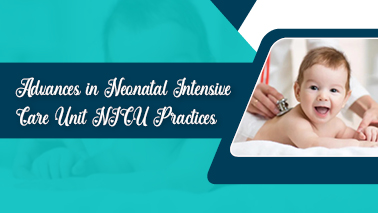
The Neonatal Intensive Care Unit (NICU) is a specialized area within a hospital designed to provide comprehensive care for critically ill or premature newborns. Advances in NICU practices have significantly improved survival rates and long-term outcomes for these vulnerable infants. These advancements encompass various aspects, including medical technology, treatment protocols, nursing care, and family support.
New Research Perspectives in NICU Practices
Precision Medicine and Genomics:
Genetic Screening and Diagnosis: Developing more sophisticated genetic screening tools to identify congenital conditions and genetic disorders early, enabling personalized treatment plans.
Pharmacogenomics: Researching how genetic variations affect individual responses to medications, aiming to optimize drug therapy for neonates.
Non-Invasive Monitoring and Imaging:
Advanced Monitoring Technologies: Implementing non-invasive monitoring devices that provide continuous data on vital signs, blood gases, and other critical parameters with minimal discomfort to the infant.
Neonatal Imaging Techniques: Enhancing imaging technologies like MRI and ultrasound to improve the diagnosis of brain injuries, congenital anomalies, and other conditions without the need for sedation.
Respiratory Support Innovations:
Gentle Ventilation Strategies: Developing and refining less invasive ventilation techniques, such as nasal continuous positive airway pressure (nCPAP) and high-flow nasal cannula (HFNC) therapy, to reduce lung injury.
Artificial Intelligence (AI) in Ventilation: Using AI algorithms to optimize ventilator settings and predict respiratory complications in real-time.
Neuroprotection and Brain Development:
Hypothermia Therapy: Investigating the optimal use of therapeutic hypothermia for infants with hypoxic-ischemic encephalopathy to minimize brain damage.
Neuroprotective Agents: Exploring new drugs and therapies that can protect the developing brain from injury and support neurodevelopment.
Nutritional Support and Gut Health:
Human Milk Fortification: Researching the best ways to fortify human milk with additional nutrients to meet the specific needs of preterm infants.
Probiotics and Prebiotics: Studying the role of probiotics and prebiotics in promoting gut health, preventing necrotizing enterocolitis (NEC), and supporting the overall health of neonates.
Infection Control and Immunology:
Antimicrobial Stewardship: Developing protocols for the judicious use of antibiotics to prevent antibiotic resistance and protect the developing microbiome of neonates.
Immunotherapy: Investigating the use of immunotherapy to boost the immune responses of preterm and critically ill infants.
Family-Centered Care:
Parental Involvement: Researching the benefits of increased parental involvement in the care of their infants, including skin-to-skin contact (kangaroo care) and participation in daily care routines.
Psychosocial Support: Developing comprehensive support programs for families, including mental health services, to help them cope with the stress of having a critically ill newborn.
Developmental Care Practices:
Sensory Environment: Studying the impact of the NICU sensory environment (light, noise, and touch) on infant development and implementing changes to promote a more supportive setting.
Individualized Developmental Care: Creating personalized developmental care plans that address the unique needs of each infant, including positioning, handling, and stimulation strategies.
Cardiovascular Support and Monitoring:
Hemodynamic Monitoring: Advancing techniques for continuous, non-invasive monitoring of cardiac function and blood flow in neonates to promptly detect and manage cardiovascular issues.
Innovative Therapies: Researching new treatments for common cardiovascular problems in neonates, such as patent ductus arteriosus (PDA) and persistent pulmonary hypertension of the newborn (PPHN).
Long-Term Outcomes and Follow-Up:
Outcomes Research: Conducting long-term studies to track the developmental, cognitive, and health outcomes of NICU graduates to better understand the impact of early interventions.
Transition to Home Care: Developing programs to support the smooth transition of infants from the NICU to home care, including education for parents and coordination with primary care providers.
These research perspectives underscore the dynamic and multidisciplinary nature of neonatal intensive care. Continued advancements in these areas hold the promise of improving survival rates, reducing complications, and enhancing the quality of life for neonates and their families.
Tags
Pediatric Obesity Meetings America
Pediatric Nutrition Conferences
Pediatric Surgery Conferences 2025
Pediatric Dentistry Conferences Canada
Pediatric Infectious Diseases Conferences
Pediatrics Conferences Japan
Clinical Pediatrics Congress 2025
Child Abuse Conferences 2025
Pediatric Nursing Conferences Europe
Pediatric Conferences 2024 USA
Clinical Pediatrics Conferences 2024
Pediatric Oncology Conferences 2025
Adolescent Medicine Conferences USA
Child Psychiatry Conferences
Pediatrics Conferences
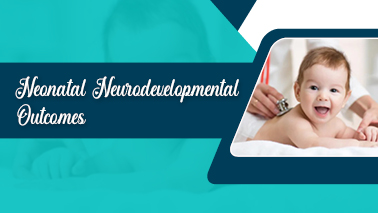
Neonatal neurodevelopmental outcomes refer to the long-term neurological and developmental outcomes of infants who experienced perinatal events, prematurity, or conditions affecting the central nervous system during the neonatal period. Here are some new research perspectives in neonatal neurodevelopmental outcomes:
Early Biomarkers of Neurodevelopment: Investigate early biomarkers, such as neuroimaging findings, genetic markers, and biochemical indicators, that predict neurodevelopmental outcomes in neonates. Research can focus on identifying biomarkers associated with conditions like cerebral palsy, cognitive impairments, and neurobehavioral disorders.
Neuroprotective Strategies: Study neuroprotective strategies and interventions to improve neurodevelopmental outcomes in high-risk neonates. Research can explore the use of therapeutic hypothermia, neurotrophic factors, stem cell therapies, and pharmacological agents to prevent or minimize brain injury and promote neuroplasticity.
Neurodevelopmental Follow-up Programs: Evaluate the effectiveness of neurodevelopmental follow-up programs for at-risk neonates, including preterm infants, infants with congenital anomalies, and infants with perinatal complications. Research can focus on assessing developmental trajectories, early intervention services, and long-term outcomes.
Impact of Environmental Factors: Investigate the impact of environmental factors, such as socioeconomic status, maternal education, family support, and early childhood experiences, on neonatal neurodevelopmental outcomes. Research can explore social determinants of health and interventions to mitigate adverse environmental influences on neurodevelopment.
Neurodevelopmental Assessment Tools: Study the validity, reliability, and utility of neurodevelopmental assessment tools for neonates, including standardized tests, developmental screening tools, and neurobehavioral assessments. Research can focus on cultural adaptations, age-appropriate measures, and predictive value of assessment tools.
Neuroimaging and Brain Connectivity: Explore advanced neuroimaging techniques, such as diffusion tensor imaging (DTI), functional magnetic resonance imaging (fMRI), and connectivity analysis, to assess brain structure, function, and connectivity in neonates. Research can focus on neurodevelopmental correlates and clinical implications of brain connectivity patterns.
Genetics and Epigenetics of Neurodevelopment: Investigate genetic and epigenetic factors influencing neonatal neurodevelopmental outcomes. Research can explore gene-environment interactions, epigenetic modifications, and genetic polymorphisms associated with neurodevelopmental disorders and cognitive outcomes.
Neonatal Brain Injury and Neuroprognostication: Evaluate mechanisms of neonatal brain injury, such as hypoxic-ischemic encephalopathy (HIE), intraventricular hemorrhage (IVH), and periventricular leukomalacia (PVL), and develop neuroprognostication models to predict long-term outcomes. Research can focus on biomarkers, neuroimaging predictors, and clinical risk factors.
Neonatal Neurorehabilitation: Study neurorehabilitation interventions for neonates with neurological impairments, such as early intervention programs, developmental therapies, sensory stimulation, and family-centered care approaches. Research can explore functional outcomes, caregiver involvement, and intervention efficacy.
Neurodevelopmental Outcomes in Specific Populations: Investigate neurodevelopmental outcomes in specific populations of neonates, such as extremely preterm infants, infants with congenital heart disease, infants with genetic syndromes, and infants exposed to prenatal substances. Research can focus on tailored interventions and support services for these populations.
Neurocognitive Functioning and School Readiness: Examine neurocognitive functioning and school readiness outcomes in children who were born premature or experienced neonatal brain injury. Research can explore executive functioning, language development, social-emotional skills, and academic achievement in relation to neonatal neurodevelopment.
Longitudinal Studies and Lifespan Outcomes: Conduct longitudinal studies to assess neonatal neurodevelopmental outcomes across childhood, adolescence, and adulthood. Research can investigate trajectories of cognitive, motor, and behavioral development, transition to adulthood outcomes, and quality of life measures in individuals with neonatal neurological histories.
These research perspectives aim to advance our understanding of neonatal neurodevelopmental outcomes, improve early identification of at-risk neonates, develop targeted interventions, and promote optimal neurodevelopmental trajectories for infants with neurological vulnerabilities.
Tags
Clinical Pediatrics Conferences 2024
Neonatal Healthcare Events
Perinatal Medicine Conferences
Childcare Conferences USA 2025
Pediatrics Conferences 2025
Pediatric Neurology Conferences
Pediatrics Conferences 2024 Europe
Pediatric Infectious Diseases Conferences
Neonatal Nursing Conferences
Pediatrics Conferences Japan
Adolescent Medicine Conferences USA
Pediatrics Conferences 2024 Asia
Pediatric Nutrition Conferences
Pediatric Conferences 2024 USA
Clinical Pediatrics Congress 2025

Neonatal nutrition refers to the specialized nutritional requirements of newborn infants, particularly preterm and low birth weight infants, to support growth, development, and overall health. Here are some new research perspectives in neonatal nutrition:
Human Milk Composition and Fortification: Investigate the composition of human milk and its variations in macronutrients, micronutrients, bioactive components, and immune factors. Research can focus on optimizing human milk fortification strategies, donor milk processing, and individualized fortification based on neonatal nutritional needs.
Nutritional Requirements for Preterm Infants: Study the nutritional requirements of preterm infants, including protein, energy, carbohydrates, fats, vitamins, minerals, and essential nutrients for growth and development. Research can explore evidence-based feeding guidelines, enteral nutrition protocols, and parenteral nutrition strategies for preterm neonates.
Breastfeeding and Lactation Support: Evaluate interventions to promote breastfeeding initiation, duration, and exclusivity in neonatal care settings. Research can focus on lactation support programs, kangaroo mother care, skin-to-skin contact, breast milk expression techniques, and barriers to breastfeeding in neonatal intensive care units (NICUs).
Nutritional Management of Neonatal Diseases: Investigate nutritional considerations for neonatal diseases and conditions, such as necrotizing enterocolitis (NEC), bronchopulmonary dysplasia (BPD), hyperbilirubinemia, congenital heart defects, and gastrointestinal disorders. Research can explore nutrition therapy protocols, feeding tolerance assessments, and outcomes of nutritional interventions in neonatal diseases.
Micronutrient Supplementation: Study the role of micronutrient supplementation in neonatal nutrition, including iron, vitamin D, calcium, zinc, selenium, and omega-3 fatty acids. Research can explore micronutrient deficiencies, supplementation regimens, bioavailability of nutrients, and long-term effects on neurodevelopment and growth in preterm infants.
Gut Microbiota and Nutritional Health: Investigate the impact of early nutrition on gut microbiota development, colonization patterns, microbial diversity, and immune function in neonates. Research can explore probiotics, prebiotics, synbiotics, and gut-brain axis interactions in neonatal nutrition and health outcomes.
Enteral Feeding Advancements: Evaluate advancements in enteral feeding techniques, such as nasogastric feeding, orogastric feeding, gastrostomy tubes, and transpyloric feeding, for neonates with feeding difficulties or gastrointestinal disorders. Research can focus on feeding tolerance, gastric residuals, feeding tube placement, and enteral nutrition safety.
Parenteral Nutrition Optimization: Study strategies to optimize parenteral nutrition delivery and formulations for neonates requiring intravenous nutrition support. Research can explore lipid emulsions, amino acid solutions, glucose infusion rates, micronutrient supplementation, and parenteral nutrition-associated complications in neonatal care.
Nutritional Assessment and Monitoring: Develop standardized protocols for nutritional assessment, growth monitoring, and nutritional status monitoring in neonatal populations. Research can focus on anthropometric measurements, biochemical markers, metabolic assessments, and nutritional risk assessment tools for neonates.
Neonatal Nutritional Pharmacology: Investigate the pharmacokinetics and pharmacodynamics of nutritional supplements, medications, and nutritional adjuncts used in neonatal care, such as growth factors, amino acid solutions, lipid formulations, and vitamin supplements. Research can explore dosing regimens, drug-nutrient interactions, and safety profiles in neonatal nutrition pharmacology.
Nutrition and Neurodevelopmental Outcomes: Evaluate the impact of early nutrition on neurodevelopmental outcomes, cognitive function, and neurobehavioral development in preterm infants and high-risk neonates. Research can explore the role of nutrients, bioactive compounds, and nutritional interventions in brain growth, myelination, and neurocognitive outcomes.
Long-term Follow-up and Nutritional Programming: Conduct longitudinal studies to assess long-term nutritional outcomes, metabolic health, growth trajectories, and nutritional programming effects in neonates receiving specialized nutritional interventions. Research can investigate neurodevelopmental outcomes, metabolic syndrome risks, and quality of life measures in children born preterm or with neonatal nutritional challenges.
These research perspectives aim to advance neonatal nutrition science, optimize nutritional care for newborn infants, improve outcomes in preterm and high-risk neonates, and promote evidence-based practices in neonatal nutrition and feeding management.
Tags
Childhood Cancer Conferences
Pediatric Nutrition Conferences
Clinical Pediatrics Conferences 2024
Child Abuse Conferences 2025
Adolescent Medicine Conferences USA
Child Psychiatry Conferences
Pediatrics Conferences
Childcare Conferences USA 2025
Pediatric Cardiology Conferences
Pediatrics Conferences 2025
Pediatric Conferences 2024 USA
Pediatric Oncology Conferences 2025
Pediatric Ophthalmology Conferences
Neonatal Nursing Conferences
Neonatology Meetings 2025
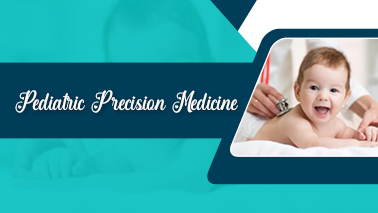
Pediatric precision medicine involves tailoring medical treatment and interventions to individual characteristics of pediatric patients, including genetic, molecular, environmental, and lifestyle factors. Here are some new research perspectives in pediatric precision medicine:
Genomic Medicine: Investigate the role of genomics in pediatric precision medicine, including whole-genome sequencing, exome sequencing, and genetic variant analysis. Research can focus on identifying disease-causing mutations, genetic risk factors, and pharmacogenomic markers for personalized treatment strategies in children.
Precision Oncology: Study precision oncology approaches for pediatric cancers, including molecular profiling, targeted therapies, immunotherapy, and precision radiation techniques. Research can explore biomarker-driven clinical trials, tumor heterogeneity, resistance mechanisms, and long-term outcomes in pediatric cancer patients.
Rare and Genetic Disorders: Evaluate precision medicine strategies for rare and genetic disorders in children, such as metabolic disorders, neurodevelopmental disorders, and rare genetic syndromes. Research can focus on gene therapies, enzyme replacement therapies, small molecule inhibitors, and precision diagnostics for rare pediatric conditions.
Pharmacogenomics and Drug Response: Investigate pharmacogenomic markers influencing drug response and adverse drug reactions in pediatric patients. Research can explore genetic variants affecting drug metabolism, drug efficacy, and drug toxicity profiles in children, leading to personalized medication regimens.
Precision Immunology: Study precision immunology approaches for pediatric immune disorders, autoimmune diseases, and immunodeficiencies. Research can explore immune profiling, cytokine biomarkers, targeted immunotherapies, and immune modulation strategies in pediatric immunology practice.
Neurogenomics and Neurodevelopment: Evaluate neurogenomic approaches for neurodevelopmental disorders, epilepsy, autism spectrum disorders, and pediatric neurologic conditions. Research can focus on genetic modifiers, neural circuits, neuroimaging-genomic correlations, and precision therapies for pediatric neurodevelopmental disorders.
Precision Cardiology: Investigate precision medicine in pediatric cardiology, including genetic cardiomyopathies, congenital heart defects, arrhythmias, and vascular disorders. Research can explore genetic testing, risk prediction models, tailored interventions, and outcomes of precision cardiology approaches in children.
Digital Health and Wearable Technologies: Study the integration of digital health tools, wearable sensors, mobile apps, and telemedicine platforms in pediatric precision medicine. Research can focus on remote monitoring, real-time data collection, patient engagement, and digital therapeutics for pediatric health management.
Environmental Exposures and Health Outcomes: Investigate the impact of environmental exposures, such as pollutants, toxins, allergens, and dietary factors, on pediatric health outcomes. Research can explore gene-environment interactions, biomarkers of exposure, personalized environmental interventions, and prevention strategies for environmental-related diseases in children.
Ethical and Legal Considerations: Examine ethical and legal implications of pediatric precision medicine, including consent issues, data privacy, genetic counseling, equity in access to precision therapies, and regulatory frameworks for genomic testing in children.
Implementation Science and Health Equity: Conduct implementation science research to assess the adoption, effectiveness, and sustainability of pediatric precision medicine initiatives in clinical practice. Research can focus on healthcare provider training, patient education, health system integration, and disparities in access to precision medicine services among pediatric populations.
Longitudinal Outcomes and Health Economics: Evaluate long-term outcomes, health-related quality of life, cost-effectiveness, and healthcare utilization patterns associated with pediatric precision medicine interventions. Research can investigate economic models, health outcomes research, payer perspectives, and value-based healthcare delivery in pediatric precision medicine.
These research perspectives aim to advance pediatric precision medicine, improve diagnostic accuracy, treatment efficacy, and patient outcomes in children, and promote evidence-based practice and innovation in pediatric healthcare.
Tags
Childcare Conferences USA 2025
Clinical Pediatrics Conferences 2024
Pediatrics Conferences 2025
Neonatology Meetings 2025
Pediatric Obesity Meetings America
Pediatric Dentistry Conferences Canada
Pediatric Nursing Conferences Europe
Pediatric Ophthalmology Conferences
Pediatrics Conference 2024
Pediatric Infectious Diseases Conferences
Pediatric Conferences 2024 USA
Neonatal Nursing Conferences
Pediatric Oncology Conferences 2025
Adolescent Medicine Conferences USA
Perinatal Medicine Conferences

Neonatal cardiology focuses on the diagnosis, management, and treatment of congenital heart defects (CHDs) and cardiovascular conditions in newborn infants. Here are some new research perspectives in neonatal cardiology:
Genetic and Molecular Insights: Investigate the genetic and molecular basis of congenital heart defects (CHDs) in neonates, including gene mutations, epigenetic factors, and developmental pathways contributing to cardiac malformations. Research can explore gene-editing techniques, personalized medicine approaches, and genetic counseling for families with CHD.
Fetal Echocardiography and Prenatal Diagnosis: Study advancements in fetal echocardiography techniques for early detection and prenatal diagnosis of congenital heart defects (CHDs). Research can focus on 3D/4D imaging, Doppler techniques, fetal cardiac function assessment, and accuracy of prenatal screening protocols.
Neonatal Echocardiography and Imaging: Evaluate neonatal echocardiography modalities and imaging techniques for diagnosing and monitoring cardiac abnormalities in newborns. Research can explore point-of-care ultrasound, strain imaging, cardiac MRI, and CT angiography in neonatal cardiology practice.
Hemodynamic Assessment and Monitoring: Investigate hemodynamic assessment tools and monitoring strategies for neonates with complex cardiac conditions, including hemodynamic parameters, cardiac output measurement, tissue perfusion monitoring, and response to therapeutic interventions.
Neonatal Cardiac Intensive Care: Study optimal management strategies for neonatal cardiac intensive care, including hemodynamic support, mechanical ventilation, inotropic agents, fluid management, and sedation protocols. Research can focus on outcomes of cardiac surgery, extracorporeal life support (ECLS), and cardiopulmonary bypass in neonates.
Neonatal Arrhythmias and Electrophysiology: Evaluate diagnosis and management of neonatal arrhythmias, including supraventricular tachycardia (SVT), ventricular tachycardia (VT), atrial flutter, and bradycardia. Research can explore electrophysiological studies, antiarrhythmic therapies, and long-term outcomes of neonatal arrhythmias.
Neonatal Heart Failure and Cardiomyopathies: Investigate causes, mechanisms, and management of neonatal heart failure, cardiomyopathies, and myocarditis. Research can focus on pharmacological therapies, mechanical circulatory support, heart transplant outcomes, and long-term cardiac function in neonates.
Neonatal Structural Heart Interventions: Study interventional cardiology procedures for neonatal structural heart defects, such as balloon atrial septostomy, patent ductus arteriosus (PDA) closure, atrial septal defect (ASD) closure, and ventricular septal defect (VSD) closure. Research can explore outcomes of transcatheter interventions, device closure techniques, and complications in neonatal cardiac interventions.
Neonatal Cardiac Rehabilitation and Neurodevelopmental Outcomes: Evaluate cardiac rehabilitation programs for neonates with congenital heart defects (CHDs), including developmental support, feeding strategies, growth monitoring, and neurodevelopmental assessments. Research can explore cognitive outcomes, neurobehavioral outcomes, and quality of life measures in neonatal cardiac patients.
Cardiovascular Genetics and Inherited Heart Diseases: Investigate cardiovascular genetics and inherited heart diseases in neonates, such as cardiomyopathies, arrhythmogenic disorders, and channelopathies. Research can explore genetic testing, familial screening, genotype-phenotype correlations, and family counseling for inherited heart conditions.
Neonatal Cardiac Biomarkers and Risk Stratification: Study cardiac biomarkers for risk stratification, prognosis prediction, and early detection of cardiac complications in neonates, including brain natriuretic peptide (BNP), troponins, and inflammatory markers. Research can explore biomarker trends, cutoff values, and clinical utility in neonatal cardiology practice.
Long-term Follow-up and Transition to Adult Care: Conduct longitudinal studies to assess long-term outcomes, cardiac function, and quality of life in neonates with congenital heart defects (CHDs) as they transition to adulthood. Research can investigate cardiovascular health outcomes, exercise tolerance, cardiac imaging changes, and healthcare transition challenges in neonatal cardiac patients.
These research perspectives aim to advance the field of neonatal cardiology, improve diagnosis and management of congenital heart defects (CHDs) in newborns, optimize outcomes in neonatal cardiac care, and promote evidence-based practices in neonatal cardiology settings.
Tags
Child Abuse Conferences 2025
Pediatric Oncology Conferences 2025
Pediatrics Conferences 2024 Europe
Clinical Pediatrics Conferences 2024
Pediatric Ophthalmology Conferences
Childcare Conferences USA 2025
Neonatal Nursing Conferences
Pediatric Infectious Diseases Conferences
Pediatric Dentistry Conferences Canada
Pediatric Neurology Conferences
Perinatal Medicine Conferences
Pediatrics Conference 2024
Pediatric Nutrition Conferences
Child Psychiatry Conferences
Pediatric Cardiology Conferences

Neonatal surgery refers to surgical procedures performed on newborn infants, typically within the first 28 days of life, to address congenital anomalies, birth defects, or life-threatening conditions requiring immediate surgical intervention. Here are some new research perspectives in neonatal surgery:
Minimally Invasive Surgical Techniques: Investigate advancements in minimally invasive surgical techniques for neonates, such as laparoscopy, thoracoscopy, and endoscopic procedures. Research can focus on instrument miniaturization, surgical robotics, and outcomes of minimally invasive neonatal surgeries.
Fetal Surgery and Intervention: Study fetal surgical interventions for select congenital anomalies diagnosed in utero, such as spina bifida, congenital diaphragmatic hernia (CDH), and twin-twin transfusion syndrome (TTTS). Research can explore fetal imaging modalities, maternal-fetal monitoring, and long-term outcomes of fetal surgeries.
Neonatal Congenital Heart Surgery: Evaluate surgical techniques and outcomes in neonates with congenital heart defects requiring cardiac surgery, such as atrial septal defect (ASD) repair, ventricular septal defect (VSD) repair, tetralogy of Fallot (TOF) repair, and complex cardiac reconstructions. Research can focus on perioperative management, outcomes predictors, and quality improvement initiatives in neonatal cardiac surgery.
Neonatal Abdominal Surgery: Investigate surgical management of abdominal conditions in neonates, including gastroschisis repair, omphalocele closure, intestinal atresia repair, necrotizing enterocolitis (NEC) surgery, and congenital diaphragmatic hernia (CDH) repair. Research can explore surgical techniques, outcomes predictors, and long-term gastrointestinal function in neonatal abdominal surgeries.
Neonatal Neurosurgery: Study surgical interventions for neonatal neurosurgical conditions, such as congenital hydrocephalus, myelomeningocele repair, craniosynostosis correction, and brain tumor resections. Research can focus on neuroimaging-guided surgeries, neuroprotective strategies, and neurological outcomes in neonatal neurosurgery.
Airway and Respiratory Surgery: Evaluate surgical interventions for neonatal airway and respiratory conditions, including tracheoesophageal fistula (TEF) repair, congenital laryngeal anomalies, tracheostomy placement, and airway reconstruction. Research can explore outcomes of airway surgeries, perioperative complications, and long-term respiratory function.
Neonatal Urological Surgery: Investigate surgical management of urological conditions in neonates, such as hypospadias repair, vesicoureteral reflux (VUR) surgery, posterior urethral valves (PUV) ablation, and bladder exstrophy repair. Research can focus on urinary continence outcomes, renal function preservation, and long-term urological outcomes in neonatal urological surgeries.
Surgical Infection Control: Study strategies for infection control and prevention in neonatal surgical settings, including perioperative antimicrobial prophylaxis, aseptic techniques, wound care protocols, and surveillance for surgical site infections (SSIs). Research can explore antimicrobial stewardship, multidrug-resistant pathogens, and outcomes of surgical infection prevention measures.
Neonatal Anesthesia and Perioperative Care: Evaluate anesthesia techniques and perioperative care protocols for neonatal surgeries, including anesthesia safety, pain management strategies, intraoperative monitoring, and postoperative recovery. Research can focus on neurodevelopmental outcomes, respiratory complications, and long-term effects of neonatal anesthesia.
Ethical and Legal Issues: Examine ethical and legal considerations in neonatal surgery, including informed consent, decision-making capacity, parental rights, end-of-life care, and resource allocation in neonatal surgical settings. Research can explore ethical dilemmas, cultural perspectives, and policies related to neonatal surgical care.
Long-term Functional Outcomes: Conduct longitudinal studies to assess long-term functional outcomes and quality of life in neonates undergoing surgical interventions. Research can investigate neurodevelopmental outcomes, growth and development, motor function, cognitive abilities, and psychosocial well-being of neonatal surgical patients into childhood and adolescence.
Global Health and Access to Neonatal Surgery: Address disparities in access to neonatal surgical care, healthcare infrastructure, and surgical training in low-resource settings. Research can focus on global health initiatives, capacity building, telemedicine solutions, and collaborative partnerships to improve neonatal surgical outcomes worldwide.
These research perspectives aim to advance the field of neonatal surgery, improve surgical outcomes, optimize perioperative care, and promote evidence-based practices in neonatal surgical settings, ultimately enhancing the health and well-being of neonatal surgical patients.
Tags
Pediatric Obesity Meetings America
Pediatric Oncology Conferences 2025
Pediatric Ophthalmology Conferences
Child Psychiatry Conferences
Pediatric Infectious Diseases Conferences
Pediatrics Conference 2024
Neonatal Nursing Conferences
Pediatric Neurology Conferences
Pediatric Conferences 2024 USA
Pediatric Cardiology Conferences
Pediatric Dentistry Conferences Canada
Childcare Conferences USA 2025
Pediatric Surgery Conferences 2025
Clinical Pediatrics Congress 2025
Pediatrics Conferences Japan
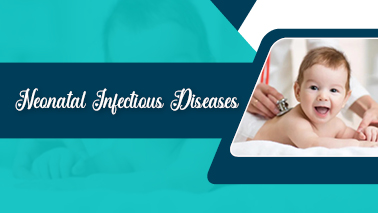
Neonatal infectious diseases refer to infections that occur in newborn infants, often acquired during the perinatal period or shortly after birth. These infections can be bacterial, viral, fungal, or parasitic in nature and may present with a range of clinical manifestations. Here are some new research perspectives in neonatal infectious diseases:
Preventive Strategies: Investigate novel preventive strategies to reduce the incidence of neonatal infections, including maternal vaccination, antenatal screening, intrapartum antibiotic prophylaxis, and infection control practices in neonatal intensive care units (NICUs).
Early Diagnosis and Screening: Study advanced diagnostic methods for early detection of neonatal infections, such as molecular diagnostic techniques (e.g., polymerase chain reaction), rapid antigen testing, and point-of-care assays. Research can focus on improving sensitivity, specificity, and turnaround time of diagnostic tests.
Antimicrobial Stewardship: Evaluate antimicrobial stewardship programs in neonatal care settings to optimize antibiotic use, prevent antibiotic resistance, and reduce adverse effects of antimicrobial therapy in newborns. Research can explore guidelines, protocols, and interventions to promote judicious antibiotic prescribing.
Neonatal Sepsis and Septic Shock: Investigate the pathophysiology, risk factors, and management strategies for neonatal sepsis and septic shock. Research can focus on early recognition, blood culture techniques, biomarkers, antimicrobial therapy, and hemodynamic support in septic neonates.
Neonatal Herpes Simplex Virus (HSV) Infections: Study HSV infections in neonates, including risk factors, clinical manifestations, diagnostic challenges, and antiviral treatment options. Research can explore strategies for prevention of vertical transmission, neonatal screening, and long-term outcomes of HSV-infected infants.
Neonatal Respiratory Infections: Evaluate respiratory infections in neonates, such as respiratory syncytial virus (RSV), influenza, and other viral pathogens. Research can focus on transmission dynamics, respiratory support strategies, antiviral therapies, and vaccination approaches for neonatal respiratory infections.
Neonatal Meningitis and Central Nervous System Infections: Investigate bacterial and viral meningitis in neonates, including causative agents, diagnostic modalities (e.g., cerebrospinal fluid analysis, neuroimaging), antimicrobial treatment regimens, and neurological outcomes.
Neonatal Gastrointestinal Infections: Study gastrointestinal infections in neonates, such as necrotizing enterocolitis (NEC), viral gastroenteritis, and bacterial enteric infections. Research can explore risk factors, diagnostic challenges, nutritional support, and surgical interventions for neonatal gastrointestinal conditions.
Neonatal Fungal Infections: Evaluate fungal infections in neonates, including Candida species, Aspergillus, and other opportunistic fungal pathogens. Research can focus on antifungal therapies, diagnostic methods (e.g., fungal biomarkers), and prevention strategies for neonatal fungal infections.
Neonatal Tuberculosis (TB): Investigate neonatal TB epidemiology, diagnosis, and management, including screening protocols, tuberculin skin testing, interferon-gamma release assays, anti-TB medications, and infection control measures in neonatal care settings.
Neonatal Parasitic Infections: Study parasitic infections in neonates, such as congenital toxoplasmosis, congenital syphilis, malaria, and other parasitic diseases. Research can explore vertical transmission mechanisms, diagnostic challenges, treatment options, and long-term outcomes of neonatal parasitic infections.
Neonatal Immunization and Vaccine Development: Investigate neonatal immunization strategies and vaccine development for preventing infectious diseases in newborns. Research can focus on safety, efficacy, and immunogenicity of neonatal vaccines targeting common pathogens encountered in early infancy.
These research perspectives aim to improve understanding, diagnosis, treatment, and prevention of neonatal infectious diseases, ultimately enhancing neonatal care and reducing morbidity and mortality associated with neonatal infections.
Tags
Pediatrics Conferences 2024 Europe
Pediatrics Conferences 2024 Asia
Pediatric Cardiology Conferences
Perinatal Medicine Conferences
Pediatrics Conferences
Pediatrics Conferences 2025
Pediatric Dentistry Conferences Canada
Neonatal Healthcare Events
Childcare Conferences USA 2025
Pediatrics Conference 2024
Clinical Pediatrics Congress 2025
Pediatric Nutrition Conferences
Pediatric Ophthalmology Conferences
Pediatric Oncology Conferences 2025
Pediatric Conferences 2024 USA

Pediatric obesity refers to the condition of excessive body fat accumulation in children and adolescents, often leading to negative health outcomes such as metabolic syndrome, cardiovascular diseases, and psychological issues. Here are some new research perspectives in pediatric obesity:
Early Intervention Strategies: Investigate effective early intervention strategies for preventing and managing pediatric obesity. Research can focus on prenatal interventions, early childhood nutrition programs, breastfeeding promotion, and parental education on healthy lifestyles.
Nutritional Interventions: Study the impact of different dietary interventions on pediatric obesity, including low-calorie diets, balanced macronutrient diets, Mediterranean diet patterns, and personalized nutrition approaches. Research can explore long-term adherence, metabolic effects, and sustainability of dietary changes.
Physical Activity Promotion: Evaluate strategies to promote physical activity and reduce sedentary behaviors in children and adolescents. Research can focus on school-based physical education programs, community initiatives, active transportation, and screen time reduction strategies.
Behavioral Interventions: Investigate behavioral interventions for pediatric obesity, including cognitive-behavioral therapy, motivational interviewing, family-based interventions, and self-regulation strategies. Research can explore behavior change techniques, adherence to interventions, and long-term behavior maintenance.
Obesogenic Environment: Examine environmental factors contributing to pediatric obesity, such as food marketing, neighborhood built environment, access to healthy foods, and socioeconomic influences. Research can focus on policy interventions, community-level changes, and advocacy efforts to create healthier environments for children.
Metabolic Health and Comorbidities: Study metabolic health parameters in obese children, including insulin resistance, lipid profiles, liver function, and inflammatory markers. Research can explore the impact of obesity on metabolic syndrome, non-alcoholic fatty liver disease (NAFLD), and cardiovascular risk factors.
Gut Microbiota and Obesity: Investigate the role of gut microbiota in pediatric obesity and metabolic health. Research can explore microbiome composition, microbial metabolites, gut-brain axis interactions, and potential interventions targeting gut microbiota for obesity management.
Psychosocial Aspects: Examine psychosocial factors associated with pediatric obesity, including body image concerns, self-esteem, emotional eating, and weight-related stigma. Research can focus on psychological interventions, peer support programs, and mental health outcomes in obese children.
Genetic and Epigenetic Factors: Study genetic and epigenetic influences on pediatric obesity risk and response to interventions. Research can explore genetic variants, epigenetic modifications, gene-environment interactions, and personalized medicine approaches in obesity management.
Technology-Based Interventions: Evaluate the efficacy of technology-based interventions for pediatric obesity, such as mobile health apps, wearable devices, gamification, and virtual reality platforms. Research can focus on engagement, effectiveness, and scalability of digital health solutions.
Health Disparities and Equity: Examine health disparities in pediatric obesity prevalence, access to care, and outcomes among diverse populations. Research can explore cultural factors, socioeconomic determinants, and interventions to address health equity in obesity prevention and treatment.
Long-Term Outcomes and Follow-Up: Conduct long-term follow-up studies to assess outcomes of pediatric obesity interventions into adolescence and adulthood. Research can investigate weight trajectories, obesity-related comorbidities, quality of life, and healthcare utilization patterns over time.
These research perspectives aim to address the complex and multifaceted nature of pediatric obesity, improve prevention and treatment strategies, and promote healthier lifestyles and environments for children and adolescents.
Tags
Pediatrics Conferences 2024 Europe
Pediatric Nursing Conferences Europe
Pediatric Oncology Conferences 2025
Pediatric Infectious Diseases Conferences
Pediatrics Conferences Japan
Pediatrics Conferences 2025
Clinical Pediatrics Conferences 2024
Pediatrics Conferences 2024 Asia
Adolescent Medicine Conferences USA
Pediatric Ophthalmology Conferences
Neonatology Meetings 2025
Pediatric Obesity Meetings America
Perinatal Medicine Conferences
Childhood Cancer Conferences
Child Abuse Conferences 2025
Scope & Importance:
In recent times, Pediatrics healthcare and diagnosis are dealing with the treatment of child-related diseases, their development, and care. The global market for pediatric healthcare is accounted for by means of newborn, mortality rate every year. In 2013 it is approximately 82.5 billion dollars and expected to increase at 8% CAGR in the coming future. An increase in the demand for chronic disease and diagnosis, Diarrhoea and injury-related other diseases are more common in children. Some of the global organizations playing a vital role in the Healthcare market are Abbott Laboratories, Gilead Sciences, GlaxoSmithKline plc, Johnson & Johnson, Eli Lilly, AxcanPharma USA, Pfizer, Sanofi, and Wyeth.
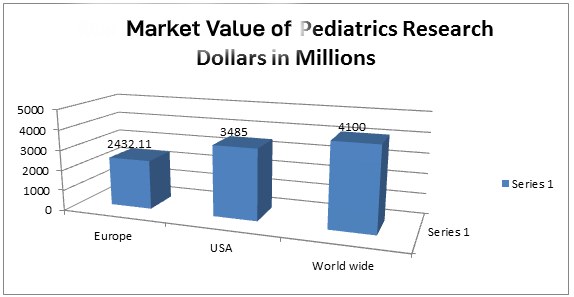
Revenue Market of World Wide Pediatrics Research
The child mortality rate showing day by day decreased graph, thankful to the modern technologies development in child healthcare. But, there were records showing that more than 50 million people died in 2017. How old were they when they died? What stands out is the death toll for the very youngest age-group, nearly 5.4 million children died before crossing their fifth year. On average, it is 15,000 young children per day. The suffering and child deaths remain immense, even though these daily tragedies continue without receiving any attention and this injustice deserves. In comparison to the tragedy of children deaths with those tragedies which receive public attention puts it in perspective. There is also evidence to consider suggesting that the mortality of children was nearly very high in much of history, where the birth rates were high, but the population growth was close to zero.
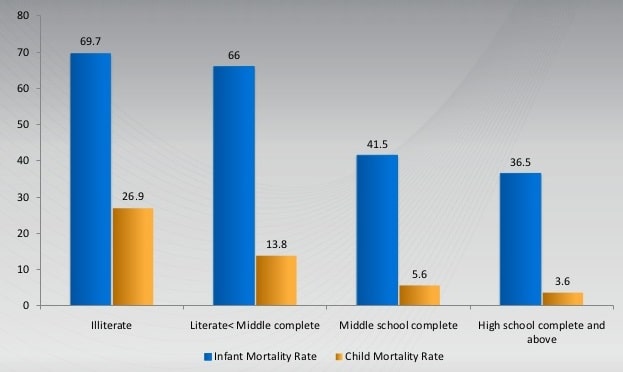
Infant Mortality Vs Child Mortality Rate
Usually, the fertility rate was higher than 6 children per woman on average. Here the fertility rate of 4 children per woman will imply a doubling of the population size per each generation, and then the rate of 6 children per woman will imply a tripling from one generation to the next. But the population barely increased from 10,000 BC to 1700 the world population grew by only 0.04% every year. The high number of births without a rapid increase in the population can only be explained by one sad reality: a high share of children died before they could have had children themselves. 50 years ago, among every 1,000 infants born 113 died before their first birthday. Today, only 32 dies. That's a reduction of 72%. In the Paediatric healthcare market, the 2017 CAGR will be 7.29 %. The global pediatric drugs market will be in the antibodies showcase is relied upon to reach $48.03 billion by 2021 from USD 32.24 billion in 2016 at a CAGR of 8.3% driven by expanding center around vaccination projects and rising government and non-government subsidizing for immunization improvement. In the clinical trials of 2016 Western Europe, Paris takes 8% out of 20. It assesses the market in terms of the challenges faced by market participants and the drivers and restraints impacting the industry.
Followed by this infant from 2-3 months has been died because of vaccination, so to reduce that we have to spread awareness among the people. In the market growth of the neonatal stage, Europe is in a developing stage. The research on pediatrics has got critical importance to stop the future deaths of new-born, infant and adolescents
Clinical Pediatrics 2020 targets:
Pediatricians
Neonatologists
Child Physicians
Pediatric Surgeons
Pediatric Oncologists
Gastroenterologists
Child Cardiologists
Neurologists
Child Orthopedician
Pediatric Ophthalmologists
Pediatric Dermatologists
Pediatric and Neonatal Nurses
Clinical Research Associates
Pediatric Academics, Professors
Chemists and Drug Specialists in Pediatric Medicine
Pediatric Researchers and Medical Fellows
Members from Pharma Companies
Entrepreneurs and Pharmaceutical Firms
Members from Pediatric Associations and Societies
Business Delegates from Medical Device Companies
List of Pediatric Societies:
USA:
Federation of Pediatric Organizations (FOPO); American Academy of Pediatrics (AAP); Academic Pediatric Association (APA); American Pediatric Society (APS); Society for Pediatric Research (SPR); Council of Pediatric Subspecialties (CoPS); Association of Medical School Pediatric Department Chairs (AMSPDC); Accreditation Council for Graduate Medical Education (ACGME); AAP Committee on Pediatric Education (COPE); Association of American Medical Colleges (AAMC); Association of Pediatric Program Directors (APPD); Council on Medical Student Education in Pediatrics (COMSEP); Global Pediatric Education Consortium (GPEC); National Initiative for Children's Healthcare Quality (NICHQ); National Center for Immunization and Respiratory Diseases (NCIRD); American Society for Pediatric Oncology and Hematology; American Society of Pediatric Otolaryngology; American Pediatric Surgical Associations; Society for Pediatric Dermatology; Child Neurology Society; American Child Health Association; Canadian Society for the Study of Diseases of Children; American Academy of Pediatric Dentistry; American Board of Pediatrics; American Juvenile Arthritis Organization; Children's Cardiomyopathy Foundation; North American Society for Pediatric Gastroenterology, Hepatology and Nutrition; Society for Pediatric Research; Society for Pediatric Anesthesia; Pediatric Trauma Society; Pediatric Oncology Group of Ontario; Prevent Cancer Foundation
Europe:
European Pediatric Association (EPA/UNESPA); European Academy of Pediatrics; European Society of Pediatrics; European Academy of Pediatrics Societies; Associations for European Pediatrics and Congenital Cardiology; European Society for Pediatric Infectious Diseases; European Society of Pediatric Neonatal Intensive Care; European Pediatric surgeon’s Associations; European Society for Pediatric Neurosurgery; European Pediatric Neurology Society; British Associations of Pediatric Surgeons; International Society of Pediatric Surgical Oncology; Jordan Pediatric Infectious Diseases Society; Society for Pediatric Radiology; Society for Pediatric Anesthesia
Asia & Middle-East:
Asia Pacific Pediatric Association; Singapore Pediatrics Society (SPS); Indian Academy of Pediatrics; Indian Association of Paediatric Anaesthesiologists; Indian Society for pediatric and adolescent Endocrinology; Pediatric Cardiac Society of India; Nepal Paediatric Society; The Hong Kong Paediatric Society; Paediatric Neurology Association of Hong Kong; Hong Kong Society of Paediatric Dentistry; Indonesian Pediatric Association; Gedung IDAI (Ikatan Dokter Anak Indonesia); Japanese Society of Pediatric Oncology; Egyptian Pediatric Association; Lebanese Pediatric Society; Lebanese Society for Children Capacity Building; Israel Ambulatory Pediatric Association; The Israeli Society for Child development and Rehabilitation; Iranian Society Of Pediatrics; Pediatric Rheumatology Society of Iran; The Korean Pediatric Society; The Korean Society of Pediatric Infectious Diseases; Korean Society of Pediatric Endocrinology; Korea - The Korean Paediatric Orthopaedic Society; Japan Pediatric Society; Japanese Society of Pediatric Cardiology and Cardiac Surgery; Philippine Pediatric Society; Pediatric Infectious Disease Society of the Philippines (PIDSP); Philippine Ambulatory Pediatric Association (PAPA); Saudi Pediatric Society; The Saudi Society of Pediatric Gastroenterology, Hepatology, and Nutrition; Saudi Pediatric Pulmonology Association (SPPA); Saudi Society of Pediatric Dentistry; South African Paediatric Association; The Southern African Society for Paediatric Infectious Diseases; The Paediatric Cardiac Society of South Africa (PCSSA)
List of Pediatrics Conferences World Wide:
SEHA International Pediatric Conference 2020 | Jan 16-18, 2020 | Abu Dhabi, UAE
British Paediatric Neurology Association Conference 2020 | Jan 29-31, 2020 | Belfast, UK
Annual Pediatric Urgent Care Conference 2020 | Feb 05-07, 2020 | Los Angeles, USA
LUNCh- Lung Ultrasound in Neonates and Children 2020 | Feb 13-14, 2020 | Paris, France
NEO- The Conference for Neonatology 2020 | Feb 19-21, 2020 | San Diego, USA
Egyptian Pediatric Hematology Summit | Feb 20-21, 2020 | Cairo, Egypt
Pediatric Infectious Diseases Conferences: A Primary Care and Hospitalist Approach 2020 | Feb 24-28, 2020 | Sarasota, Florida, USA
New Zealand General Pediatrics Conference 2020 | Mar 04-06, 2020 | Auckland, North Island, New Zealand
St. Jude-Viva Pediatrics Oncology Meetings 2020 | Mar 07-08, 2020 | Singapore, Singapore
Society for Adolescent Health and Medicine Annual Meeting 2020 | Mar 11-14, 2020 | San Diego, USA
The Neonatal Society Meetings Spring 2020 | 20 Mar 2020 | London, UK
National Perinatal Association Annual Perinatology Conferences 2020 | Mar 25-27, 2020 | Aurora, Co, United States
Paediatrics-2020 — Annual Paediatrics and Neonatology Summit | Apr 08-10, 2020 | Boston, United States
Japan Pediatric Society 123rd Annual Meeting 2020 | Apr 10-12, 2020 | Kobe, Japan
Mayo Clinic Summer Pediatric Research Conferences 2020 | May 11-12, 2020 | Bloomington, United States
Pediatrics 2020 Meetings | May 28-30, 2020 | Orlando, United States
Annual Aspen Conference on Pediatrics Gastrointestinal Disease 2020 | Jul 13-17, 2020 | Snowmass Village, USA
The International Association of Paediatric Dentistry Conferences | Jun 09-12, 2021 | Maastricht, Netherlands
List of Pediatric Hospitals:
USA:
Advocate Hope Children's Hospital, Oak Lawn; Advocate Lutheran Children's Hospital, Park Ridge; Akron Children's Hospital, Akron; American Family Children's Hospital, Madison; AnMed Health Women's and Children's Hospital, Anderson; Arkansas Children's Hospital, Little Rock; Arnold Palmer Hospital for Children, Orlando; Barbara Bush Children's Hospital, Maine Medical Center, Portland; Bayamon Children's Hospital, Bayamón; Baystate Children's Hospital, Springfield; Bristol Myers Squibb Children's Hospital at Robert Wood Johnson University Hospital, New Brunswick; Bronson Methodist Children's Health, Kalamazoo; C.S. Mott Children's Hospital, Ann Arbor; California Children's Hospital Association; CAMC Women and Children's Hospital, Charleston; Cardinal Glennon Children's Hospital, St. Louis; Floating Hospital for Children, Boston; Greenville South Carolina Children's Hospital, Greenville; Hasbro Children's Hospital, Providence; Hassenfeld Children's Hospital of New York at NYU, Manhattan; Hemby Children's Hospital at Novant Health Presbyterian Medical Center, Charlotte; Huntsville Hospital for Women and Children, Huntsville; Hurley Children's Hospital, Flint; Niswonger Children's Hospital, Johnson City; Norton Children's Hospital, Louisville; Our Lady of the Lake Children's Hospital, Baton Rouge; Palmetto Health Children's Hospital, Columbia (Palmetto Health Richland Campus); Peyton Manning Children's Hospital at St. Vincent's, Indianapolis; Phoebe Putney Memorial Hospital, Albany; Phoenix Children's Hospital, Phoenix; Primary Children's Hospital, Salt Lake City; Providence Memorial Children's Hospital, El Paso; Rady Children's Hospital, San Diego; Randall Children's Hospital at Legacy Emanuel, Portland; Renown Children's Hospital, Reno; Riley Hospital for Children at Indiana University Health, Indianapolis; Rocky Mountain Hospital for Children, Denver; Sacred Heart Children's Hospital, Spokane; Saint Joseph's Children's Hospital, Marshfield; Saint Mary's Children's Hospital, Richmond; San Jorge Children's Hospital, San Juan; Sanford Health Children's Hospital, Sioux Falls; Sanzari Children's Hospital at Hackensack University Medical Center; Scott & White Memorial Hospital Children's Hospital, Temple; Seattle Children's Hospital, Seattle; Stony Brook Children's at Stony Brook University Hospital, Stony Brook; T.C. Thompson Children's Hospital, Chattanooga; Texas Scottish Rite Hospital for Children, Dallas; The Herman & Walter Samuelson Children's Hospital at Sinai, Baltimore; Yale-New Haven Children's Hospital, New Haven
Europe:
Addenbrooke's Hospital, Cambridge; Alder Hey Children's Hospital, Liverpool; Astrid Lindgren Children's Hospital; Birmingham Children's Hospital, Birmingham; Chang Gung Children's Hospital, Taipei; Derbyshire Children's Hospital, Derby; Foundling Hospital, London; Great Ormond Street Hospital, London; Kinderspital Wildermeth, Biel/Bienne; King's College Hospital, London; National Taiwan University Children's Hospital, Taipei; Noah's Ark Children's Hospital for Wales, Cardiff; Portland Hospital for Women and Children, London; Royal Aberdeen Children's Hospital, Aberdeen; Royal Alexandra Children's Hospital (Princess Alexandra Hospital for Sick Children), Brighton; Royal Belfast Hospital for Sick Children, Belfast; Royal Waterloo Hospital for Children and Women, London; Sheffield Children's Hospital, Sheffield; University Hospital Lewisham, London; Uppsala University Children's Hospital, Uppsala; Emma Kinderziekenhuis, Amsterdam; Kinderziekenhuis Sint Radboud, Nijmegen; Wilhelmina Kinderziekenhuis, Utrecht; Our Lady's Children's Hospital, Crumlin; Tallaght Children's Hospital, Tallaght; Temple Street Children's University Hospital, Dublin; Childrens Castle, Helsinki; Children's hospital Srebrnjak, Zagreb; Clinic for child diseases Zagreb, Zagreb;
Asia:
Beijing New Century International Hospital for Children; Children's Hospital of Capital Institute of Pediatrics; Shanghai Children's Hospital; Children's Hospital of Fudan University; International Peace Maternity and Child Health Hospital, China Welfare Institute; Shanghai Children's Hospital; The Duchess of Kent Children's Hospital at Sandy Bay, Sandy Bay; Hong Kong Children's Hospital; Kanagawa Children's Medical Center, Yokohama; National Center for Child Health and Development, Tokyo; Shizuoka Children' Hospital, Shizuoka; Aichi Children's Health and Medical Center, Oobu, Aichi; Osaka Medical Center and Research Institute for Maternal and Child Health, Izumi, Osaka; Hyogo Children's Hospital, Kobe; Fukuoka Children' Hospital, Fukuoka; The Children's Hospital, Lahore; Lady Ridgeway Hospital for Children, Colombo
Middle-East:
Al Zahra Hospital; Gulf International Pediatric Center; Tawam Hospital; Zulekha Hospital; Al Amal Hospital; King Hamad University Hospital; Bahrain Specialist Hospital; Kuwait Center for Child Healthcare; Farwaniya Hospital; Burjeel Hospital; University Hospital Sharjah; Mediclinic City Hospital.
Contact us now and we will make your event unique & unforgettable
All numbers indicates percentage %
Europe
North America
Middle East
Asia Pacific
Africa
All numbers indicates percentage %
Pediatric Scientists, Academicians
Pediatricians Neonatologists
Healthcare Professionals
Pediatric Physicians Nurse Practitioners
Scholars
Medical Students
Business Industry
Pharma Manufacturing Companies


